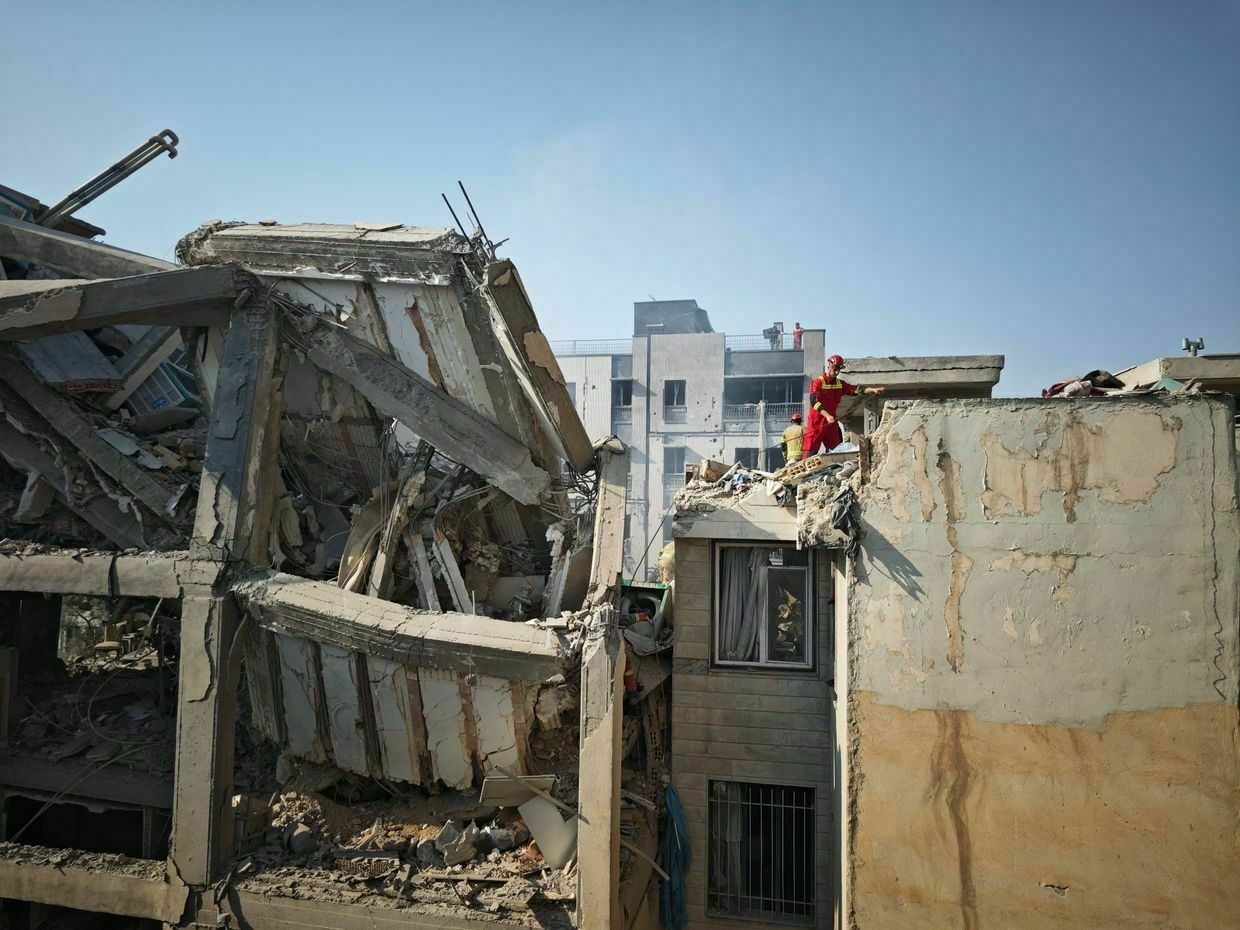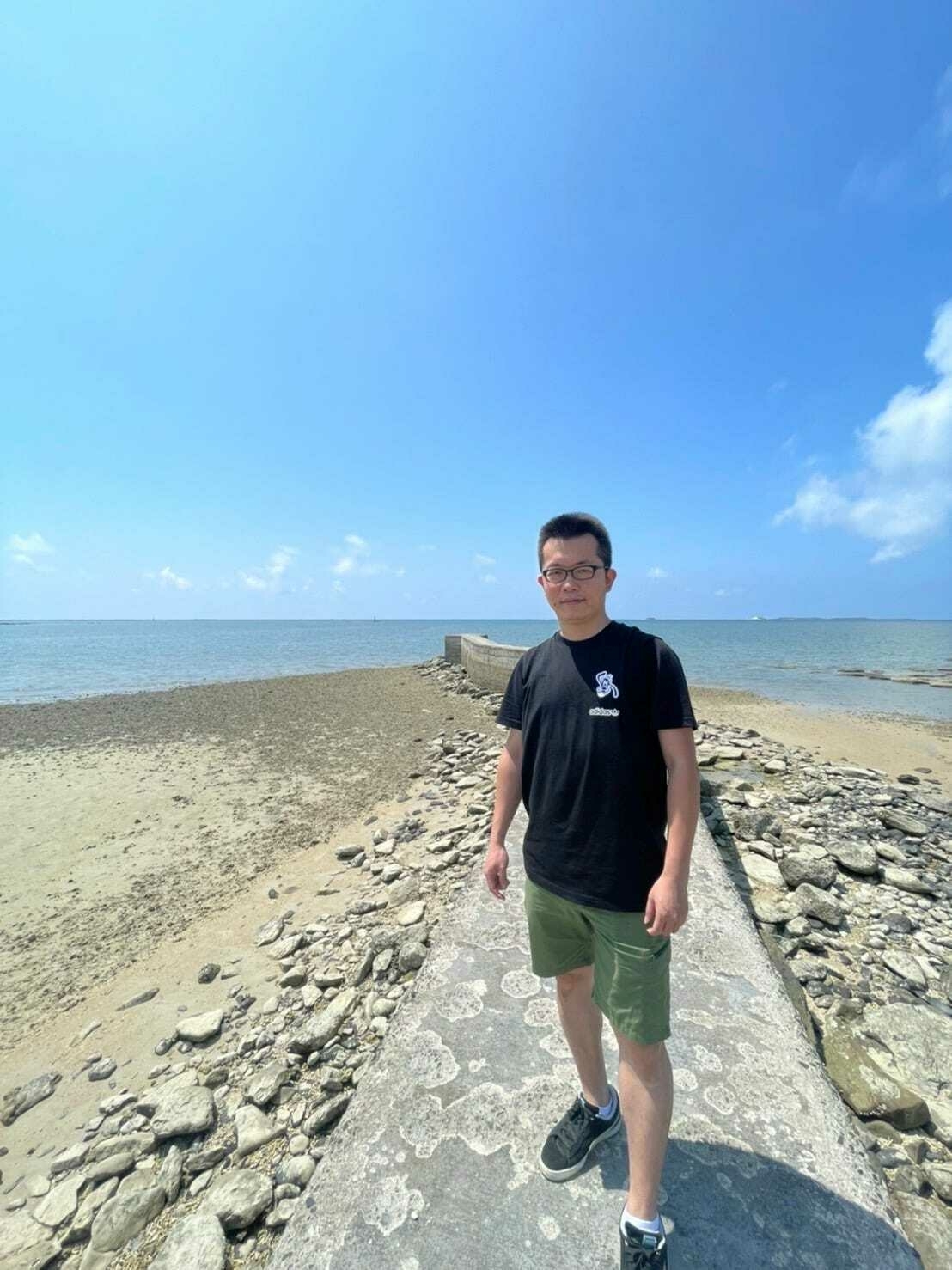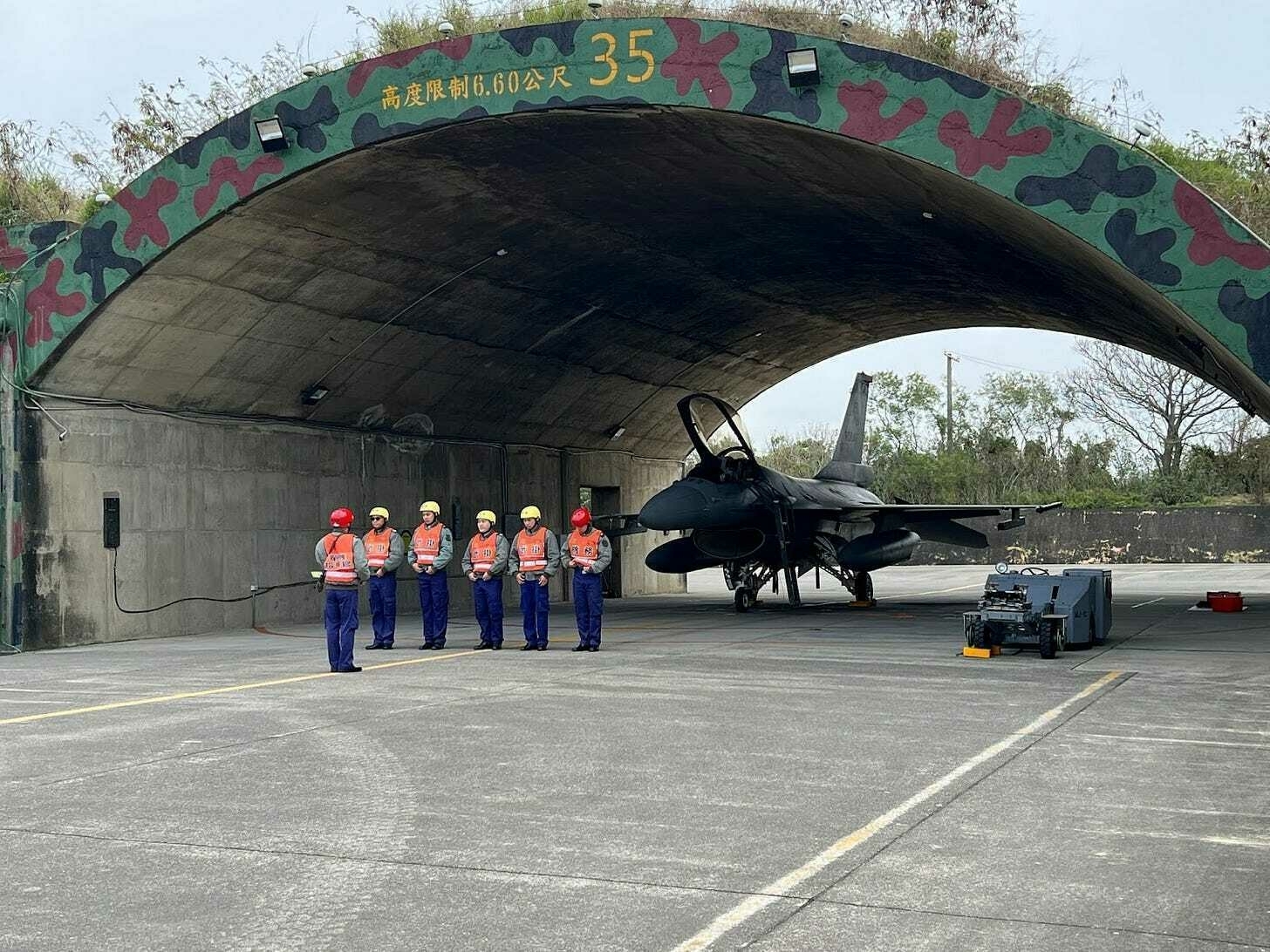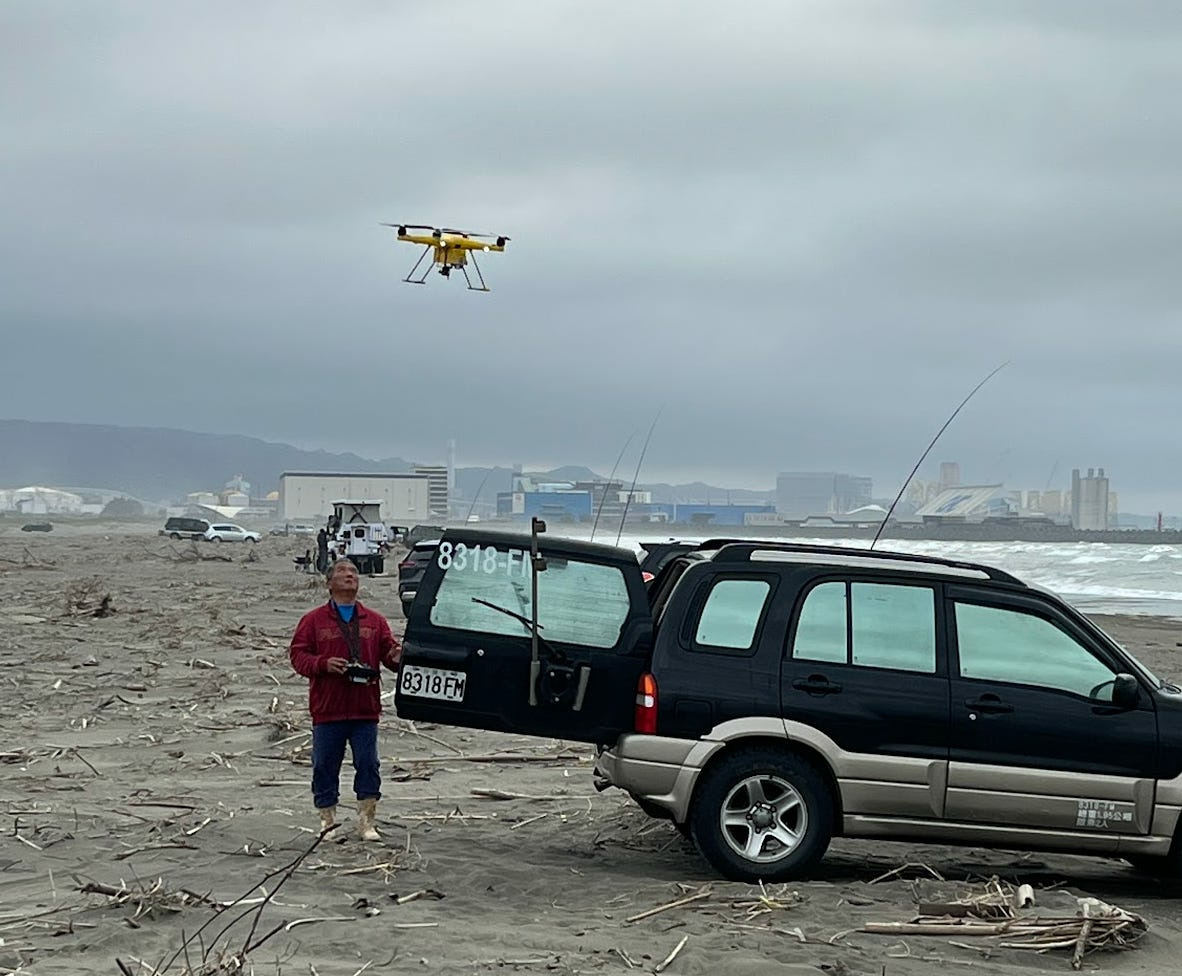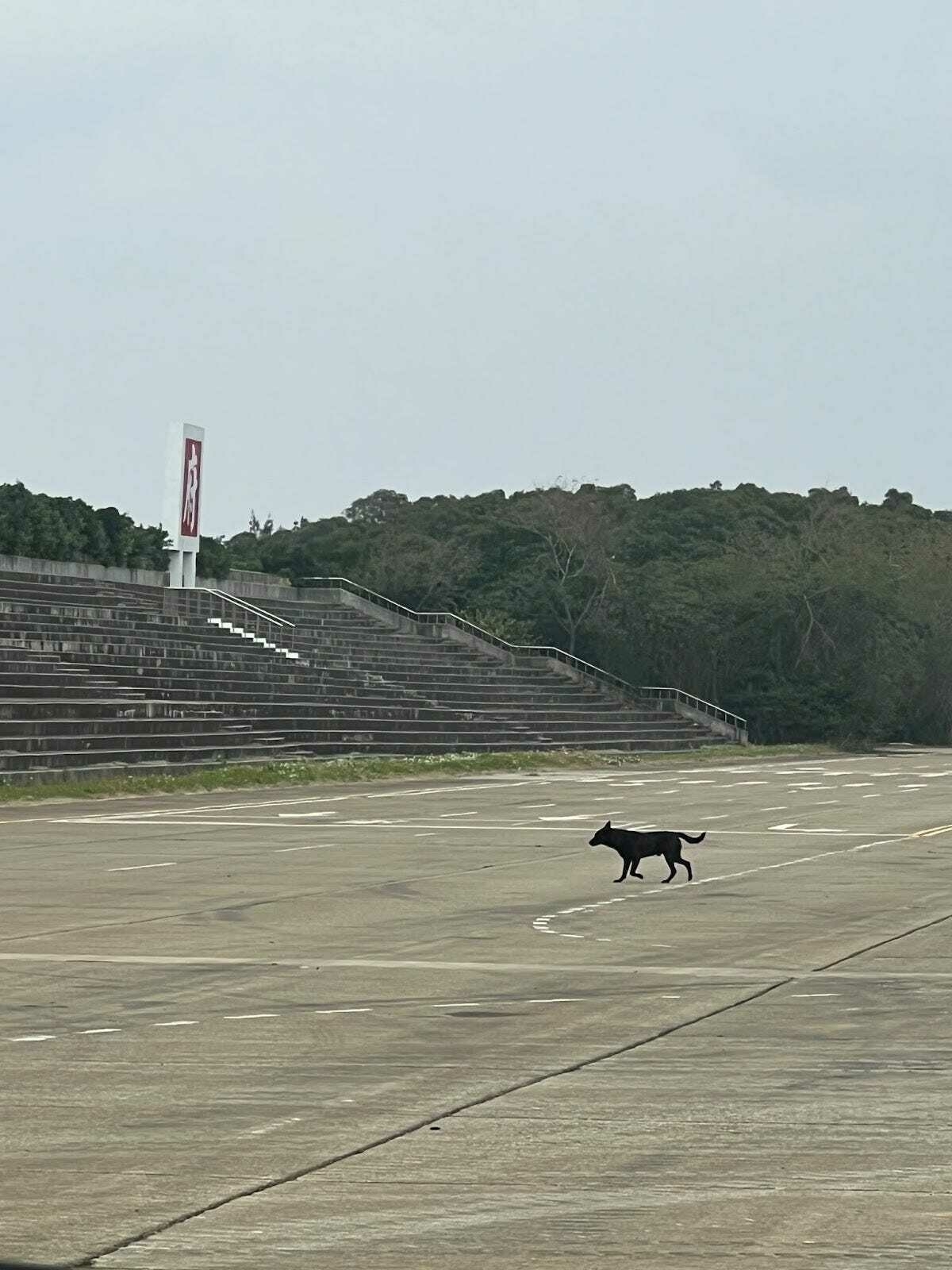-
Trump says he's 'open to' Putin mediating between Israel, Iran
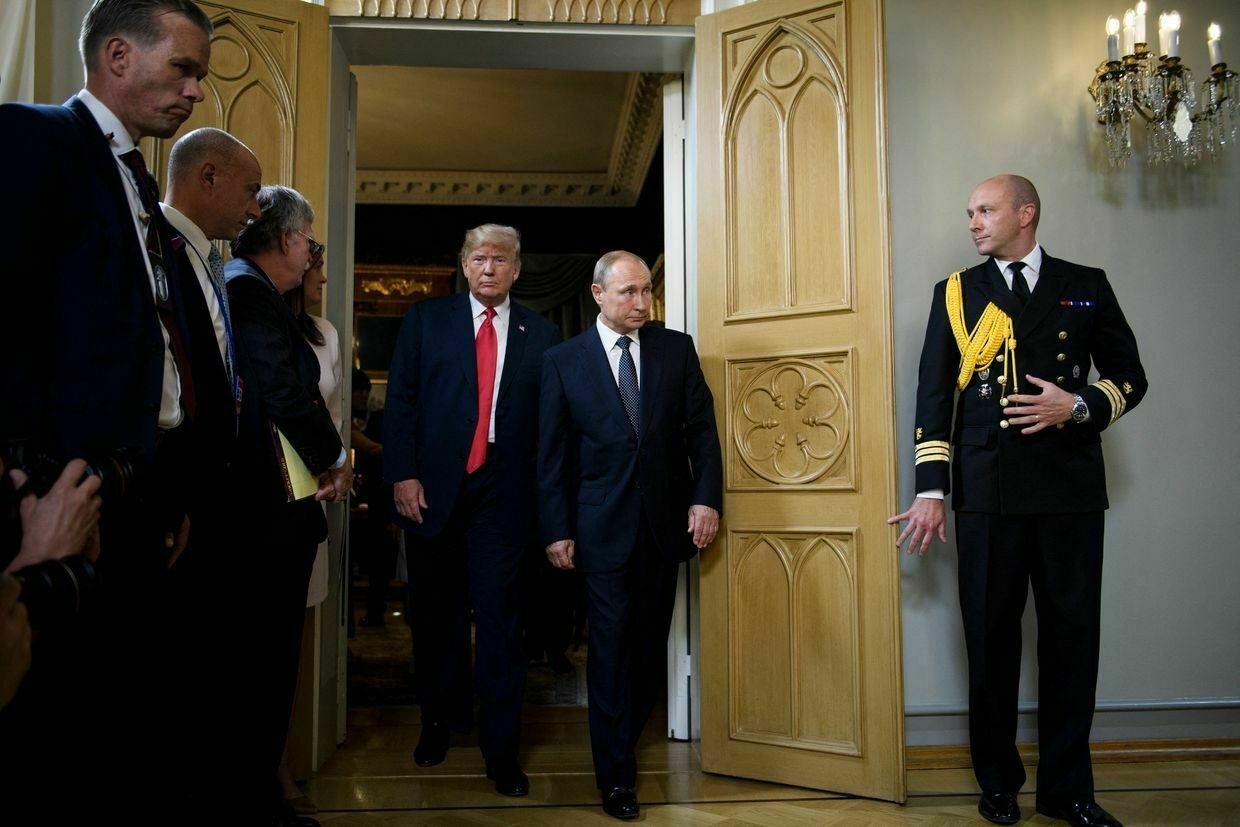
U.S. President Donald Trump said on June 15 that he is considering his Russian counterpart Vladimir Putin as a potential mediator between Israel and Iran.
“Yeah, I would be open to it,” Trump said, as cited by ABC reporter Rachel Scott on X. “He is ready. He called me about it. We had a long talk about it. We talked about this more than his situation. This is something I believe is going to get resolved.”
Since June 13, Israel has carried out several massive air strikes against Iran, particularly the country’s nuclear facilities and scientists. The Israeli government justified the attack by saying that Tehran was on the verge of creating a nuclear bomb.
The situation has escalated, with Iran retaliating by striking Tel Aviv and other targets in Israel.
Reports have indicated that Israel approached the Trump administration to take a more active role in the strikes.
Scott said that Trump denied the U.S. was actively participating in the Israeli-Iranian conflict.
“We’re not involved in it,” he said, as cited by Scott. “It’s possible we could get involved. But we are not at this moment."
Trump is seemingly eager to see a deal between Israel and Iran sooner rather than later.
“Iran and Israel should make a deal, and will make a deal, just like I got India and Pakistan to make,” Trump wrote on Truth Social on June 15. “We will have PEACE, soon, between Israel and Iran!"
The Ukrainian government has condemned Iran as a major supplier of weapons to Russia — most notably the Shahed deep-strike drones.
“We would like to remind you that the Iranian regime supports Russia in its illegal war of aggression against Ukraine and provides Moscow with weapons to kill Ukrainians,” the Ukrainian Foreign Ministry said on June 13.
How Russia’s Shahed drones are getting more deadly — and what Ukraine is doing about itEditor’s note: Due to the security protocols of the unit featured in this story, the Ukrainian soldiers are identified by first name only. Russia’s air strikes on Ukraine have become far more deadly in recent months. Part of the uptick is due to limited air defense to bringThe Kyiv IndependentKollen Post
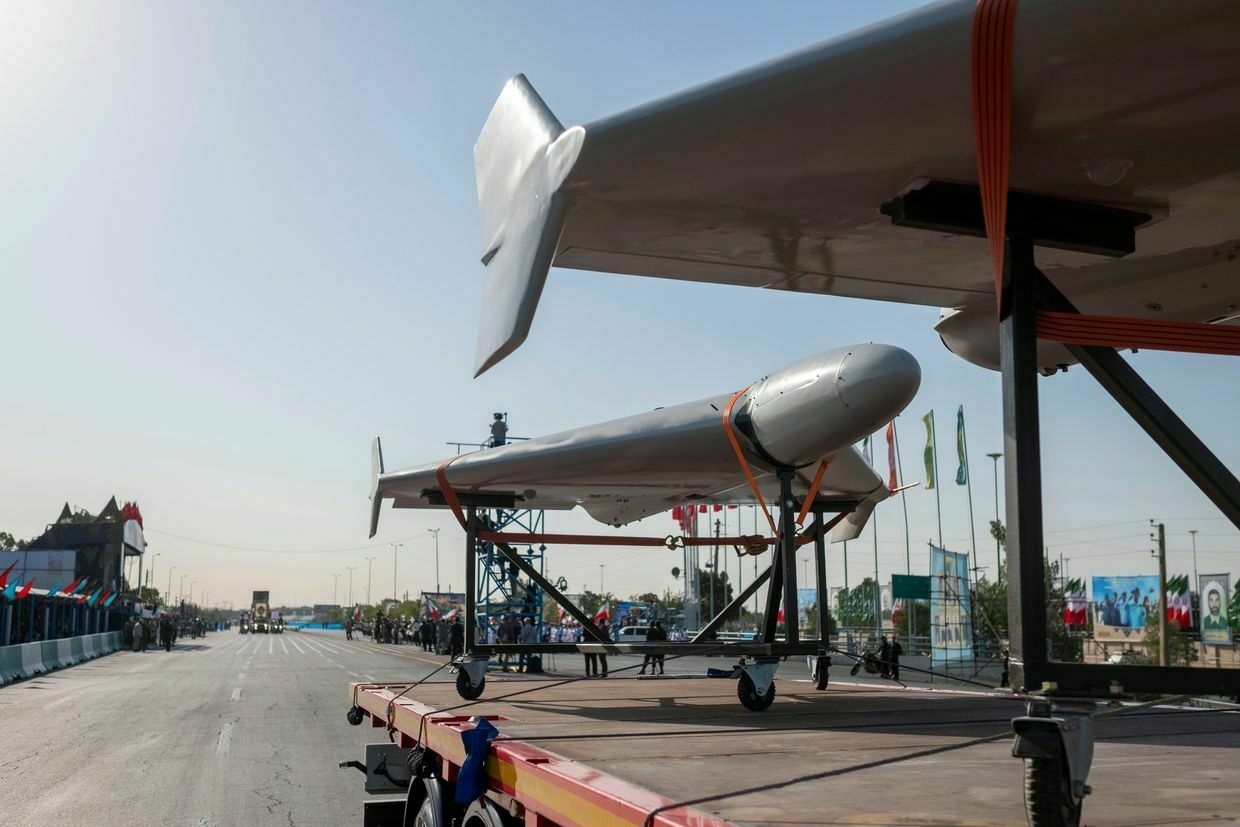
-
With no new US aid packages on the horizon, can Ukraine continue to fight Russia?

The U.S. has not announced any military aid packages for Ukraine in almost five months, pushing Kyiv to seek new alternatives. But time is running out quickly as Russian troops slowly advance on the eastern front line and gear up for a new summer offensive.
“While Ukraine’s dependence on the U.S. has lessened, U.S. aid remains pivotal for maintaining battlefield effectiveness,” Emil Kastehelmi, a Finnish military analyst and member of the Black Bird Group open-source intelligence collective, told the Kyiv Independent.
Since returning to the White House, Donald Trump has chosen an uncanny strategy to end Russia’s war against Ukraine, mostly expecting that Moscow would just stop.
In the meantime, stockpiles of American weapons, which cover nearly 30% of all Western supplies, are dwindling in Ukrainian warehouses, and the recent statement by Defense Secretary Pete Hegseth, who announced that military aid to Ukraine would be cut in 2026, brought Ukraine into even greater turmoil.
“The president and the administration are interested in ‘peace,’ which doesn’t necessarily mean justice, however,” Federico Borsari, a fellow at the Center for European Policy Analysis (CEPA), told the Kyiv Independent.
“This position obviously undermines Ukraine’s negotiating capital while emboldening the Kremlin to continue with its military aggression without real consequences, for now,” Borsari added.
How crucial is US assistance for Ukraine?Throughout the all-out war, the U.S. has provided Ukraine with pivotal weapons and equipment, which account for 30% of all weapons used by Ukrainian forces at the front, according to President Volodymyr Zelensky.
These weapons included multiple launch rocket systems, such as HIMARS and GMLRS guided missiles, which gave Ukraine an advantage on the front line in the summer of 2022. Washington also gave Kyiv the most advanced air defense system available, the Patriot, as well as long-range ATACMS missiles, which Ukrainian forces have used to strike deep into Russia.
“Ukraine’s Armed Forces can withstand the absence of American weapons. But Ukrainian cities can’t.”
Over more than three years of the full-scale war, Washington has provided Ukraine with nearly $74 billion in military aid, according to the Ukraine Support Tracker project conducted by the Kiel Institute for the World Economy (IfW Kiel).
There is also $3.8 billion left over from the Presidential Drawdown Authority (PDA) program that remains unused.
However, considering Trump's previous moves, it is questionable whether Ukraine will receive the remaining assistance promised under the Joe Biden administration in full and on time.
In early June, Washington redirected 20,000 anti-drone missiles intended for Ukraine to the Middle East, and in March, it temporarily suspended all military shipments to Ukraine and the sharing of its intelligence after a heated argument in the Oval Office between Trump, Zelensky, and U.S. Vice President JD Vance.
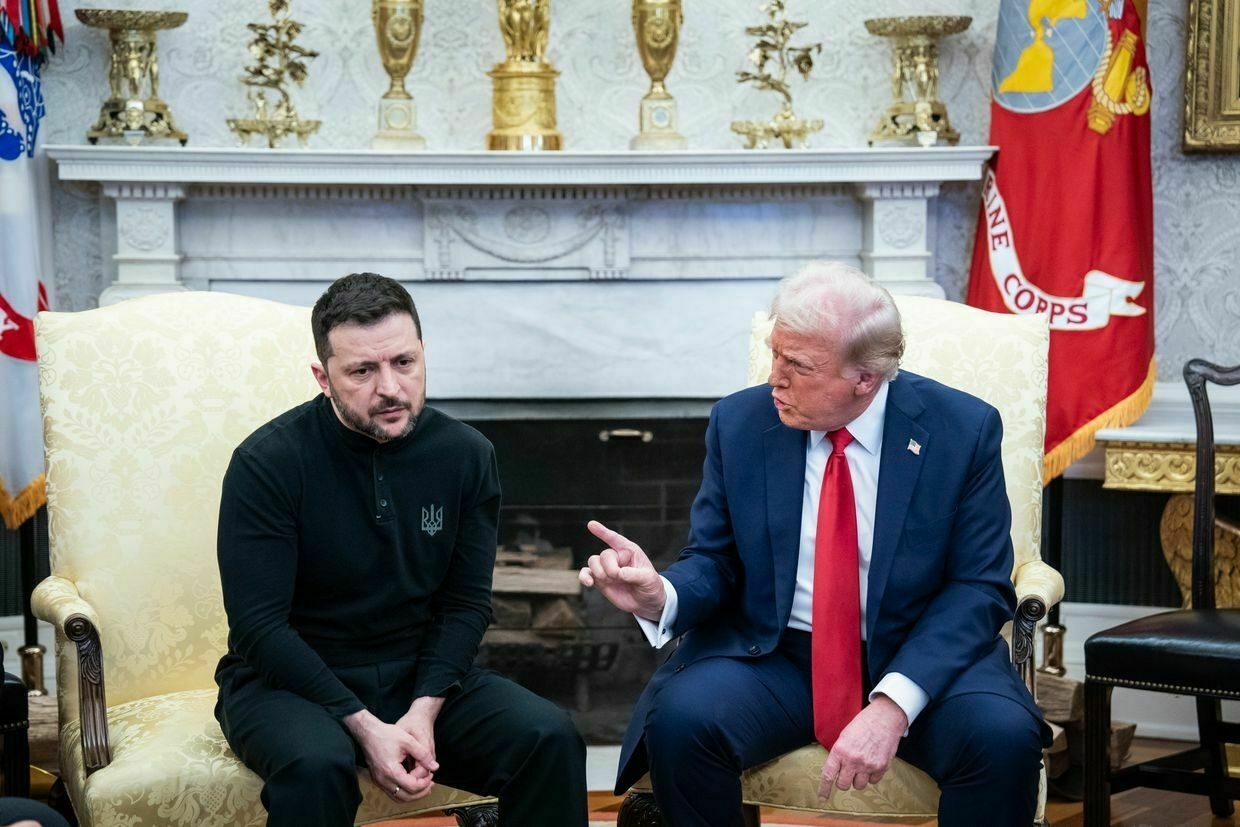
President Donald Trump and President Volodymyr Zelensky in the Oval Office at the White House on Feb. 28, 2025. (Jabin Botsford/The Washington Post via Getty Images) Ukraine has no option but to prepare for the worst if the U.S. refuses to provide further assistance.
"If U.S. military aid stops, it would affect the Ukrainian capabilities significantly, but the impact would be gradual, not instant, as there are stockpiles and there would be attempts to solve issues by alternative ways," military analyst Kastehelmi said.
"The effect would be a constantly degrading set of capabilities, but the outcome would depend on European reaction and efforts to fix the most critical issues," he added.
From buffer zone to new front: Russia pushes deeper into Sumy OblastIn March 2025, as Ukrainian forces made their final retreat from Sudzha in Russia’s Kursk Oblast, new grey spots began to appear on open-source maps on the other side of the state border, in Ukraine’s Sumy Oblast. For the first time since 2022, when Moscow’s forces retreatedThe Kyiv IndependentFrancis Farrell
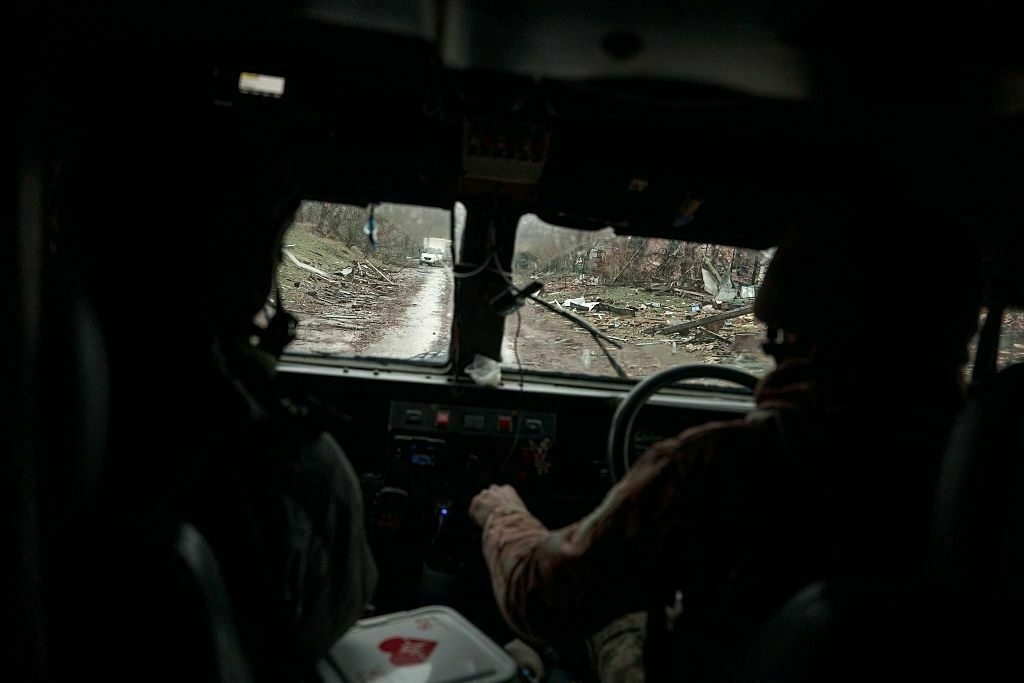
Searching for alternativesFollowing the temporary suspension of U.S. military aid and intelligence sharing with Ukraine, Kyiv's European partners said they were ready to do more to meet its war needs.
Amid the looming Russian threat, the European Commission also presented on March 4 the ReArm Europe plan, which aims to strengthen the continent's defense capabilities. The plan is designed for 10 years and is worth 800 billion euros ($842 billion) in defense expenditures, including 150 billion euros ($158 billion) in loans to EU member states to invest in their defense sectors.
"We may soon see contracts being signed for the direct purchase of weapons, likely using the funds from frozen Russian assets or even funds from European partners."
According to European Commission President Ursula von der Leyen, the initiative will also allow EU countries to increase their support for Ukraine "significantly."
Yet, this spring, Europe was far from ready to fully replace U.S. aid, according to a study by the Kiel Institute.
The Kiel Institute estimated that to reach the target level of support for Ukraine, Germany needed to increase its annual spending from $ 6.7 billion to $ 10.2 billion, France from $ 1.7 billion to $ 6.7 billion, Italy from $ 905 million to $ 5.1 billion, Spain from $565 million to $ 3.4 billion per year, and the U.K. from $ 5.6 billion to $ 7.3 billion.
"Our data show that Europe would be able to compensate for much of the U.S. aid — but only if policymakers act decisively. So far, Europe has been moving too slowly in this area," said Christoph Trebesch, research director at the Kiel Institute for the World Economy.
Ukraine is also trying to organize direct purchases of U.S. weapons. In April, Zelensky said that Kyiv was ready to spend $50 billion on the arms purchase, but as of early June, no contract had been publicly announced.
"We may soon see contracts being signed for the direct purchase of weapons, likely using the funds from frozen Russian assets or even funds from European partners. This more transactional and business-oriented approach is very aligned with Trump's vision, so it could emerge soon," military expert Borsari said
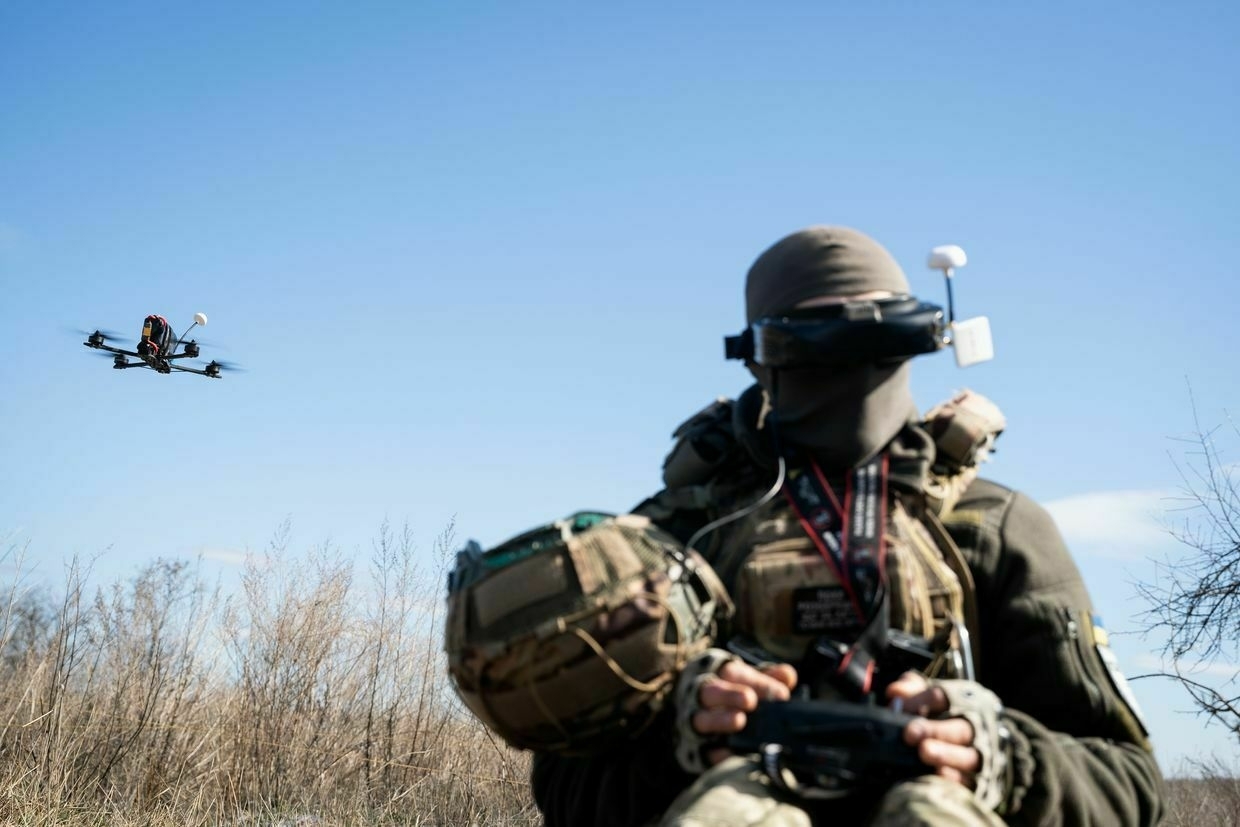
A Ukrainian soldier flies an FPV drone in Kharkiv Oblast, Ukraine, on March 19, 2025. (Alfons Cabrera/NurPhoto via Getty Images) "But this aspect ultimately depends on a political decision from the new administration, which has been notoriously slow in unlocking new support for Ukraine," he added.
Dependence on American and European partners is also gradually being overcome by increasing domestic military production and foreign partners' investments in the Ukrainian defense industry.
In February, Zelensky said that in 2025, Ukraine plans to increase the amount of its own weapons supplied to the army from 40% to 50%. In March, Prime Minister Denys Shmyhal also announced that Ukraine would be able to provide itself with 100% of its own artillery this year.
Ukraine has also significantly improved its drone production, as demonstrated by Operation Spiderweb, which used FPV (first-person-view) drones hidden in trucks in Russia to destroy 41 Russian military aircraft.
Mykhailo Samus, military expert and director of the New Geopolitics Research Network, told the Kyiv Independent that Ukrainian specialists have also learned how to repair American weapons without involving foreign specialists, which allows them to return to service faster without involving third parties' assistance.
According to the expert, the termination of U.S. military aid will not significantly affect the events at the front line. Yet, there is still one type of weapon that Ukraine cannot replace either on its own or with the help of its European allies.
"The only thing that makes us critically dependent on the U.S. is the Patriot air defense system," Samus said.
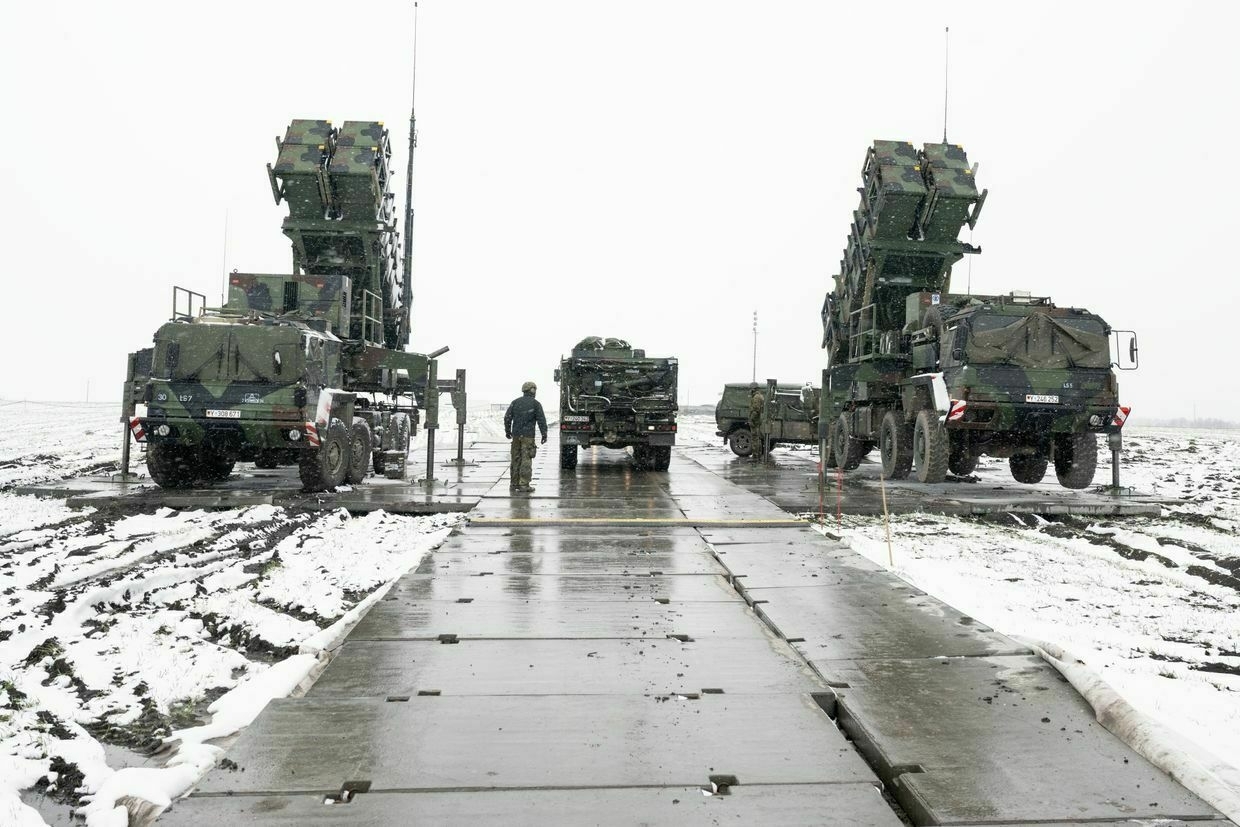
Trailers with launchers for guided missiles of the Bundeswehr’s Patriot air defense system stand in a field in southeastern Poland on April 3, 2023. (Sebastian Kahnert / dpa / picture alliance via Getty Images) "Ukraine's Armed Forces can withstand the absence of American weapons. But Ukrainian cities can't, as Europe is just launching a mass production of SAMP/T systems similar in characteristics to the Patriot."
The parliament's Defense Committee Secretary Roman Kostenko added that the U.S. has been deeply involved in cooperation with Ukraine's special agencies and the Armed Forces over the years, and "a lot depends on them."
Kostenko said that without the help from allies, Ukrainian troops would not be able to monitor the deployment and launch of ballistic missiles, which would significantly reduce the amount of time Kyiv would have to respond to potential attacks.
The termination of U.S. intelligence could also affect long-range strikes deep into Russia, as Ukrainian forces use U.S. satellite data to identify the location of Russian military equipment and troops. However, European partners can still provide help.
"American intelligence can be replaced," Samus said. "But it will require money, time, and political will."
Trump gave Putin a ‘two-week’ deadline to consider peace in Ukraine. Instead, Russia just launched more drones.A “two week” deadline imposed by U.S. President Donald Trump to see if Russia is serious about peace in Ukraine has come and gone, with Moscow’s escalation of attacks on civilians during this period failing to draw the slightest condemnation from the White House. “We’re going to find outThe Kyiv IndependentYuliia Taradiuk
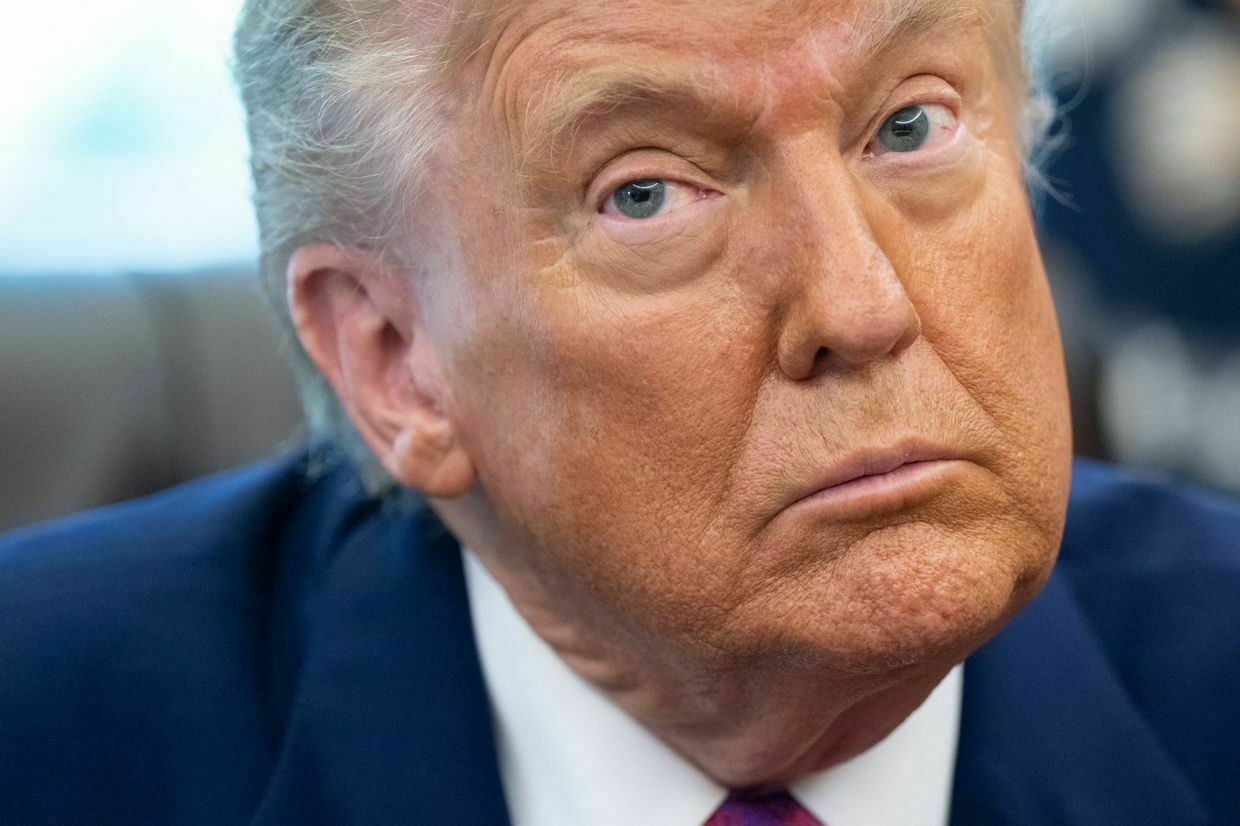
-
Russian shelling kills one in Kherson, mass attack hits infrastructure in Poltava Oblast
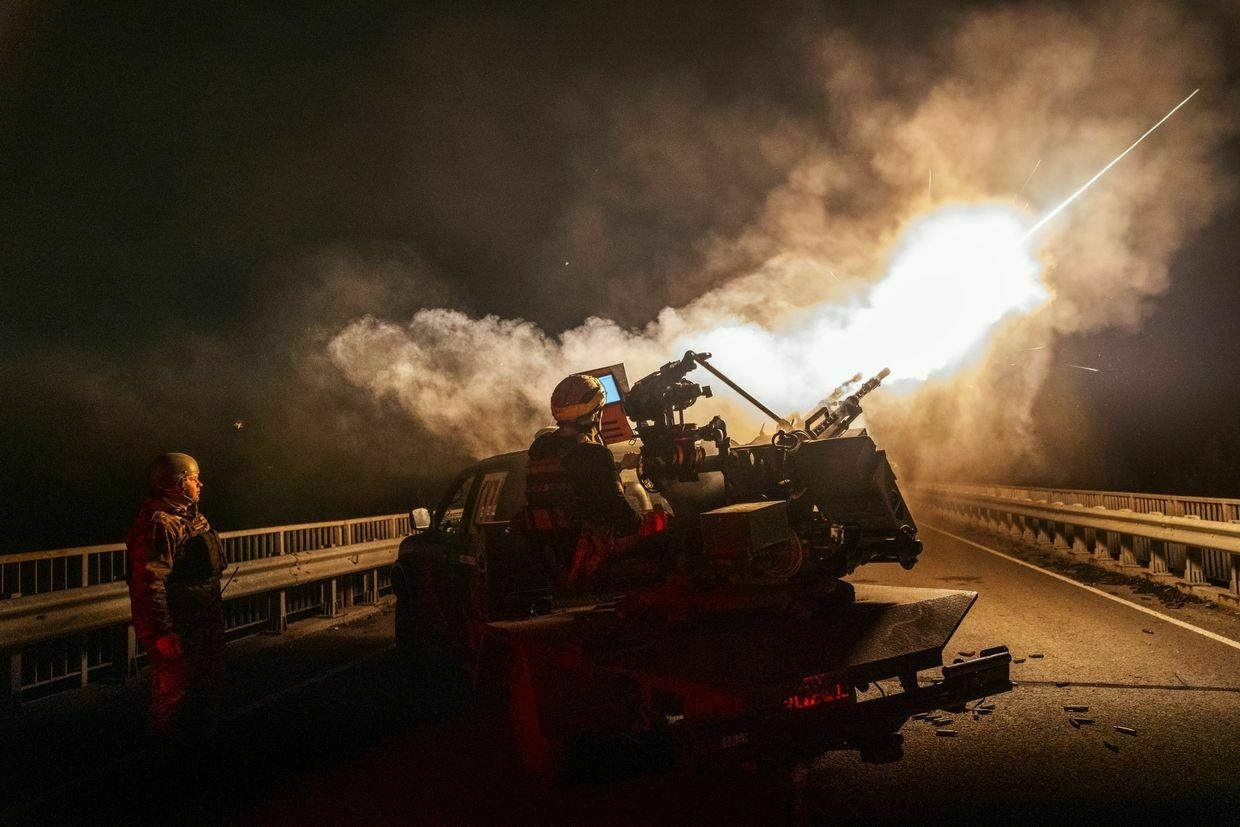
Russia attacked Ukraine with nearly 200 missiles and drones and shelled residents in Kherson and Donetsk oblasts, killing one and injuring three, Ukrainian authorities reported on June 15.
Russian forces unleashed drones, artillery, and airstrikes on Kherson Oblast and the city over the last day, killing one person and injuring another, the oblast administration reported. Russian attacks damaged apartments, homes, and gas pipelines, as well as other infrastructure.
In Donetsk Oblast, Russian attacks injured two people in Pokrovsk and Myrnohrad, regional governor Vadym Filashkin reported.
Russia’s combined mass missile and drone strikes largely targeted Kremenchuk in Poltava Oblast. No one was injured or killed, but the attacks hit energy and agricultural facilities, said Poltava governor Volodymyr Kohut.
Of 183 drones Russia launched, Ukrainian air defense neutralized 159, the Air Force said in their. Ukraine also shot down 2 Kinzhal air-launched ballistic missiles and six out of eight cruise missiles.
Drones were also spotted flying through Kyiv and Kyiv Oblast, Chernihiv, Sumy, Dnipropetrovsk, Kirovohrad, Mykolaiv, Zaporizhzhia, and Donetsk oblasts.
Despite talks of peace negotiations, Russia has amped up its drone attacks on Ukraine over the last month. On May 26, Russia launched 355 drones at Ukraine, a record that was broken on June 1 with 472 drones, and on June 9, when Russia fired 479 drones and 20 missiles against Ukrainian cities.Trump gave Putin a ‘two-week’ deadline to consider peace in Ukraine. Instead, Russia just launched more drones.A “two week” deadline imposed by U.S. President Donald Trump to see if Russia is serious about peace in Ukraine has come and gone, with Moscow’s escalation of attacks on civilians during this period failing to draw the slightest condemnation from the White House. “We’re going to find outThe Kyiv IndependentYuliia Taradiuk
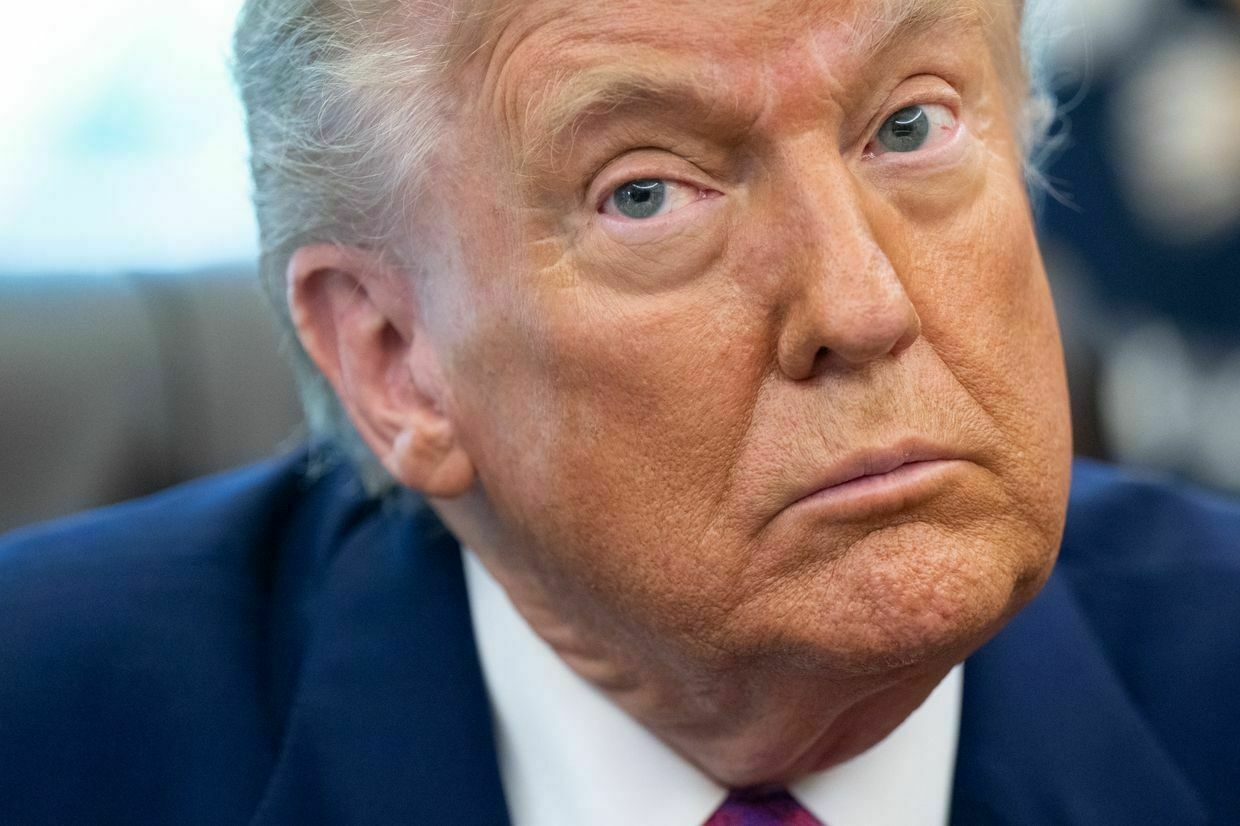
-
Berlin wants more defense, no budget hike in EU plan, FT reports

Germany aims to prioritize defense spending in the next EU budget while firmly opposing any increase in national contributions, according to a position paper obtained by the Financial Times (FT).
As the bloc’s largest economy and top net contributor, Berlin wants EU funds to support joint arms procurement and help expand production capacity among European weapons manufacturers.
The paper reportedly reflects Germany’s broader shift toward higher domestic military spending in response to Russia’s ongoing threat and amid calls by U.S. President Donald Trump for Europe to shoulder more of its own defense.
Berlin argues the EU budget should also fund dual-use technologies, military transport corridors, and other security-related initiatives despite current treaty restrictions on defence spending from the common budget, according to FT.
To free up funds for these priorities, Germany proposes cutting administrative costs and simplifying the EU budget structure. The government supports reducing the number of programes, granting the European Commission more flexibility to shift funds, and focusing spending on strategic areas such as cross-border infrastructure, energy security, digitalisation, and innovation.
Germany also opposes any extension of the EU’s post-Covid joint borrowing programme, stressing that repayments for the 800 billion euro fund must begin in 2028 as scheduled. While Berlin is open to discussing new EU-level revenue sources such as a carbon border levy or minimum corporate tax, it continues to reject an increase in direct national contributions to the budget, which currently total about 1% of EU GDP.
High stakes, low resolve: What Ukraine can expect from the upcoming G7 Leaders’ SummitAs world leaders prepare to gather in the remote community of Kananaskis in Alberta, Canada for the Group of Seven (G7) Leaders’ Summit on June 15-17, Russia’s war in Ukraine once again holds center stage — but views on how to address the three-year conflict diverge sharply. In the five monthsThe Kyiv IndependentDmytro Basmat
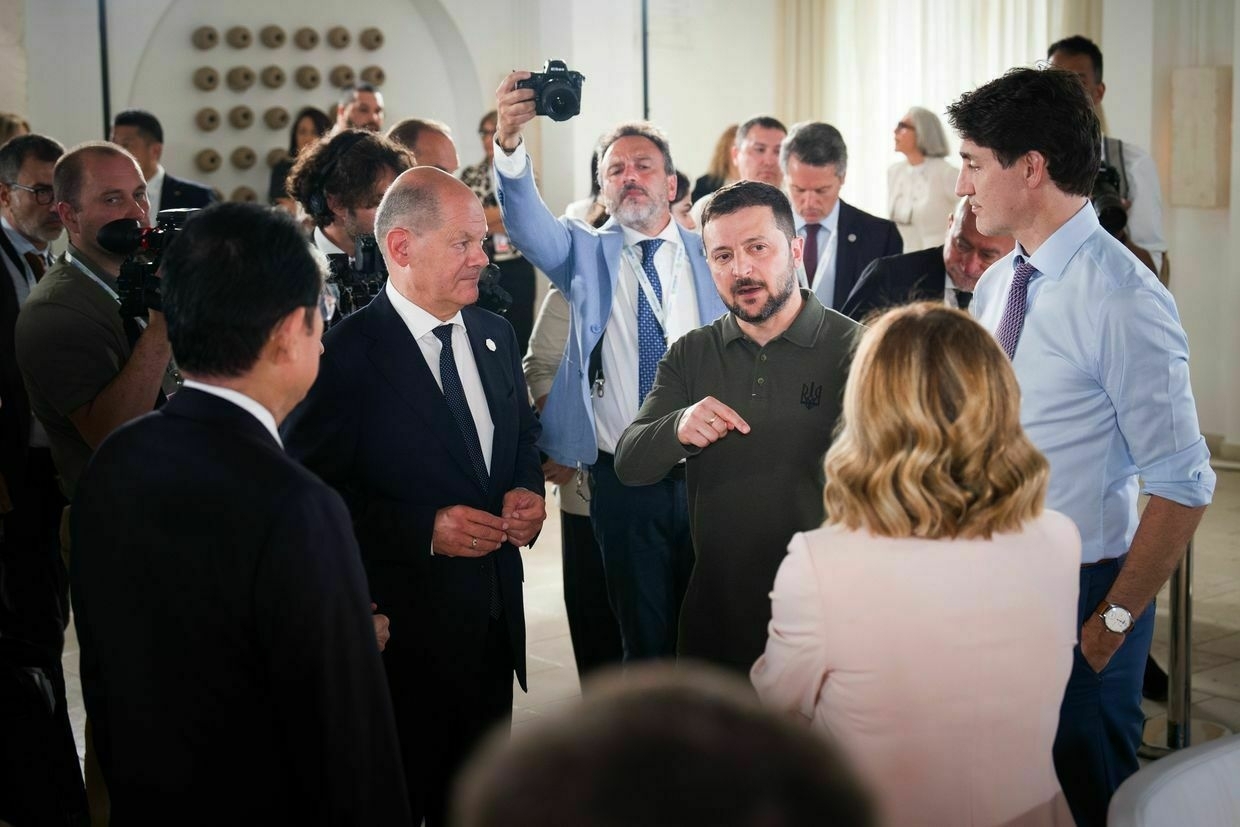
-
High stakes, low resolve: What Ukraine can expect from the upcoming G7 Leaders' Summit
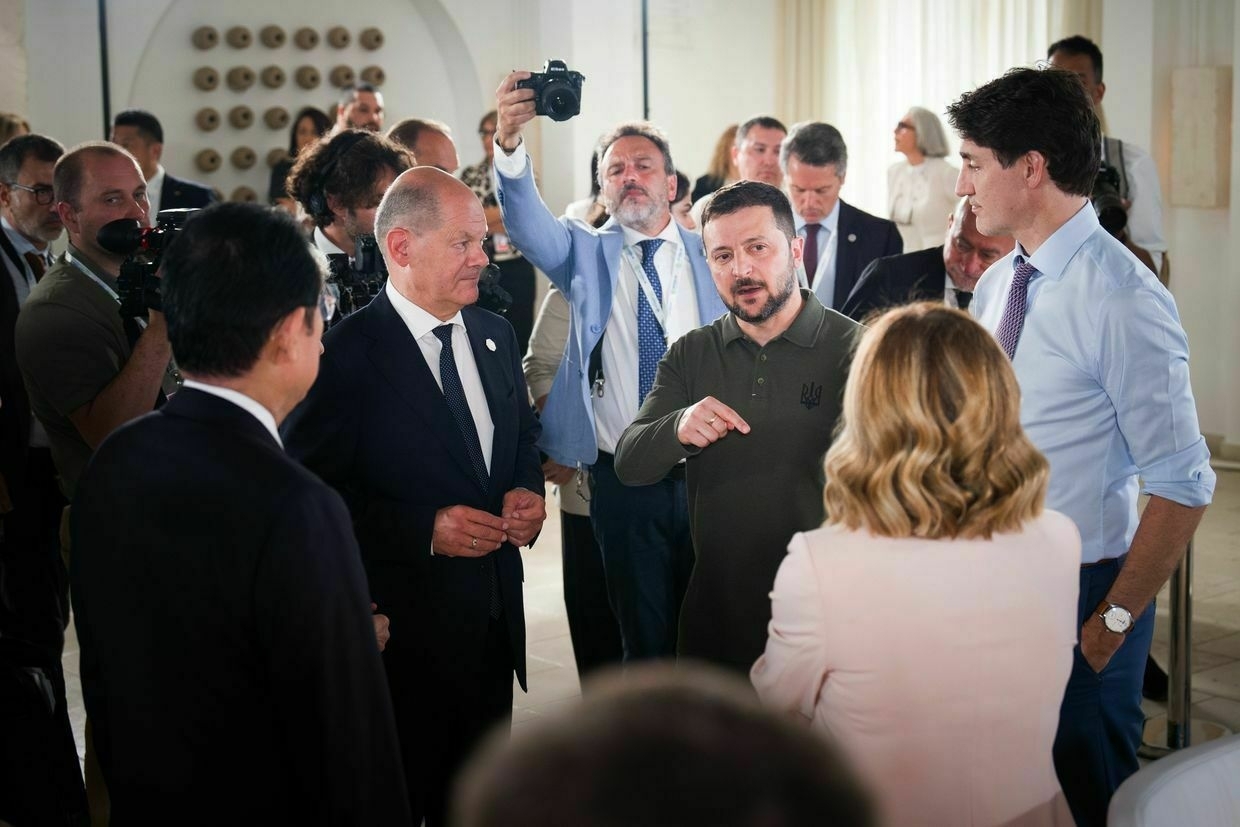
As world leaders prepare to gather in the remote community of Kananaskis in Alberta, Canada for the Group of Seven (G7) Leaders' Summit on June 15-17, Russia’s war in Ukraine once again holds center stage — but views on how to address the three-year conflict diverge sharply.
In the five months since U.S. President Donald Trump’s second term began, the G7’s core principle of unity and collective action has continued to break down amid Washington’s muted response to Russian aggression.
Canada, which holds the G7 presidency in 2025, invited President Volodymyr Zelensky to participate in what will be his fourth — and arguably most fragile — G7 Leaders' Summit since the outbreak of the full-scale invasion in 2022.
As deadly attacks on Ukrainian cities intensify night after night, Zelensky will be tasked with attempting to hold together international support for Kyiv while advocating for more punitive measures against Moscow.
For Zelensky, the summit marks an opportunity to revitalize Western support for sanctions against Russia, impose punitive economic pressures on Russia’s war machine, and potentially rekindle relations with Trump in a pivotal face-to-face meeting.
A high-stakes Zelensky-Trump meetingZelensky is expected to meet with Trump on the sidelines of the G7 summit on June 17, marking their third in-person meeting since the American president took office in January. The proposed meeting may serve as an inflection point for Zelensky as pressure mounts on Trump from Western allies.
“Both teams are working to ensure we meet,” Zelensky said on June 14 during a closed-door briefing attended by the Kyiv Independent.
After a disastrous first in-person meeting between the two leaders in the Oval Office in February — during which Trump and Vice President JD Vance lambasted Zelensky over what they described as “a lack of gratitude for U.S. support” — a second meeting in a neutral setting helped smooth over tensions.
After speaking with Trump at the Vatican following the funeral of Pope Francis in early May, Zelensky praised their short, yet "most substantive" conversation.
"With all due respect to our teams, the one-on-one format, in my opinion, worked. We had the right atmosphere for the conversation," Zelensky said after the talk.
Following the Vatican talks, Trump reiterated calls for a Russian ceasefire, even threatening to impose sanctions on Russia — a strikingly different tone than after his initial Oval Office meeting with the Ukrainian president.
In the month since their last in-person meeting, tensions between Trump and Zelensky have risen again. Despite his threats, Trump has not followed through on implementing additional economic pressure on Moscow.
On June 12, Zelensky decried Washington's lack of urgency around sanctions, suggesting that Russia is "lying to Trump." He said that Russian President Vladimir Putin's strategy is to maintain the illusion of dialogue without ever committing to a ceasefire.
Trump gave Putin a ‘two-week’ deadline to consider peace in Ukraine. Instead, Russia just launched more drones.A “two week” deadline imposed by U.S. President Donald Trump to see if Russia is serious about peace in Ukraine has come and gone, with Moscow’s escalation of attacks on civilians during this period failing to draw the slightest condemnation from the White House. “We’re going to find outThe Kyiv IndependentYuliia Taradiuk
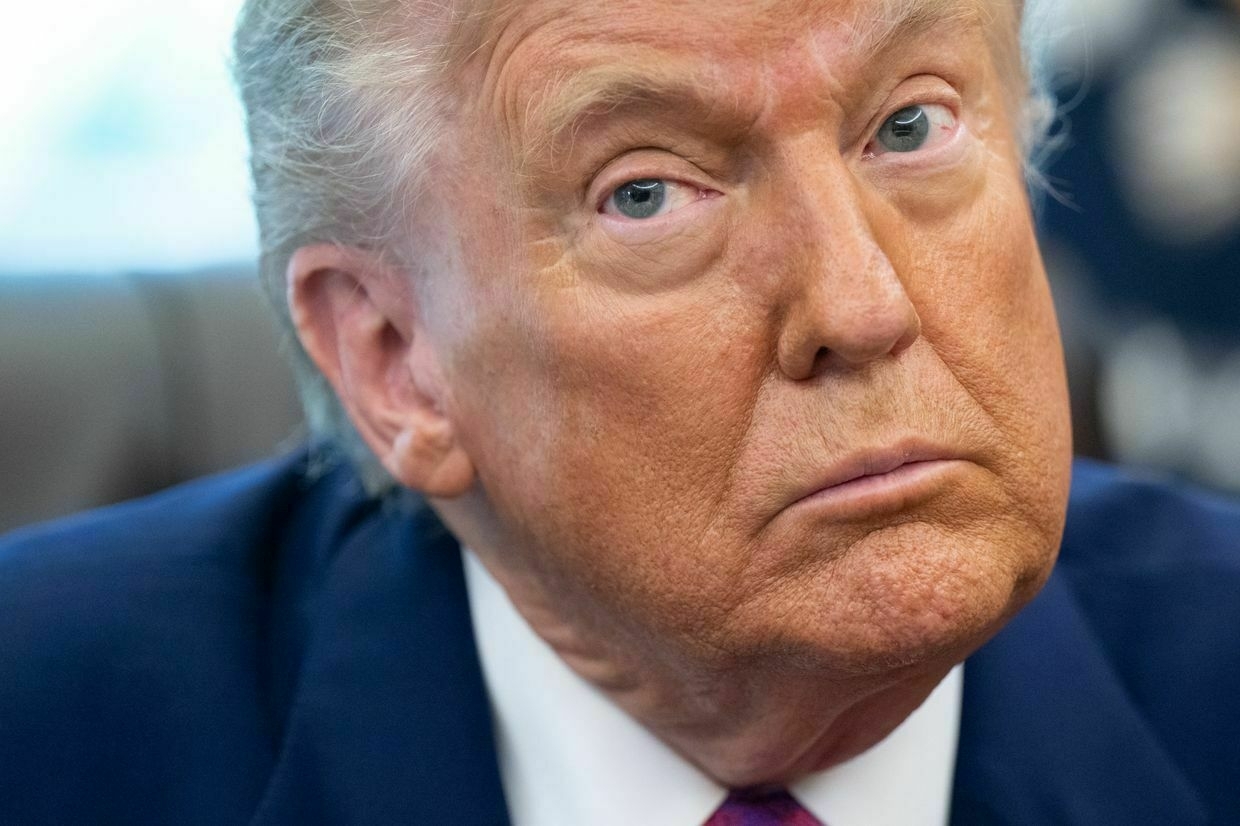
Adding to the anxiety is the Trump administration's lukewarm commitment to military support for Ukraine.
U.S. Defense Secretary Pete Hegseth recently announced that the Pentagon will reduce funding allocated for military assistance to Ukraine in its 2026 defense budget — a decision that Ukrainian lawmakers have warned could have "dire consequences" on the battlefield.
With Trump openly questioning continued U.S. support for Ukraine as well as NATO commitments, his policies have already begun to reshape G7 leaders' strategic calculations — especially when it comes to long-term security guarantees for Kyiv.
"The approach to implementing President Trump's policies is characterized by chaos and uncertainty," political analyst and associate professor at Taras Shevchenko National University Yaroslav Teleshun said.
"But chaos, under certain circumstances, is also a tool that can either accelerate or slow down various processes, or even radically change them. The key question is to what extent Ukraine and members of the club of great powers are ready to work with this and use it to their advantage," Teleshun told the Kyiv Independent.
In the meantime, Trump admitted on social media that he has been sheltering Russian from facing serious consequences as a result of his lack of action — even encouraging Senators to postpone and soften Congress' sanctions bill against Russia.
"What Vladimir Putin doesn't realize is that if it weren't for me, lots of really bad things would have already happened to Russia, and I mean really bad. He's playing with fire," Trump wrote on May 27.
Zelensky's third opportunity at talks comes at a critical crossroads in U.S. support for Ukraine. Another high-stakes meeting with Trump could once again change the tenor of relations between the two leaders — for better or worse.
From buffer zone to new front: Russia pushes deeper into Sumy OblastIn March 2025, as Ukrainian forces made their final retreat from Sudzha in Russia’s Kursk Oblast, new grey spots began to appear on open-source maps on the other side of the state border, in Ukraine’s Sumy Oblast. For the first time since 2022, when Moscow’s forces retreatedThe Kyiv IndependentFrancis Farrell
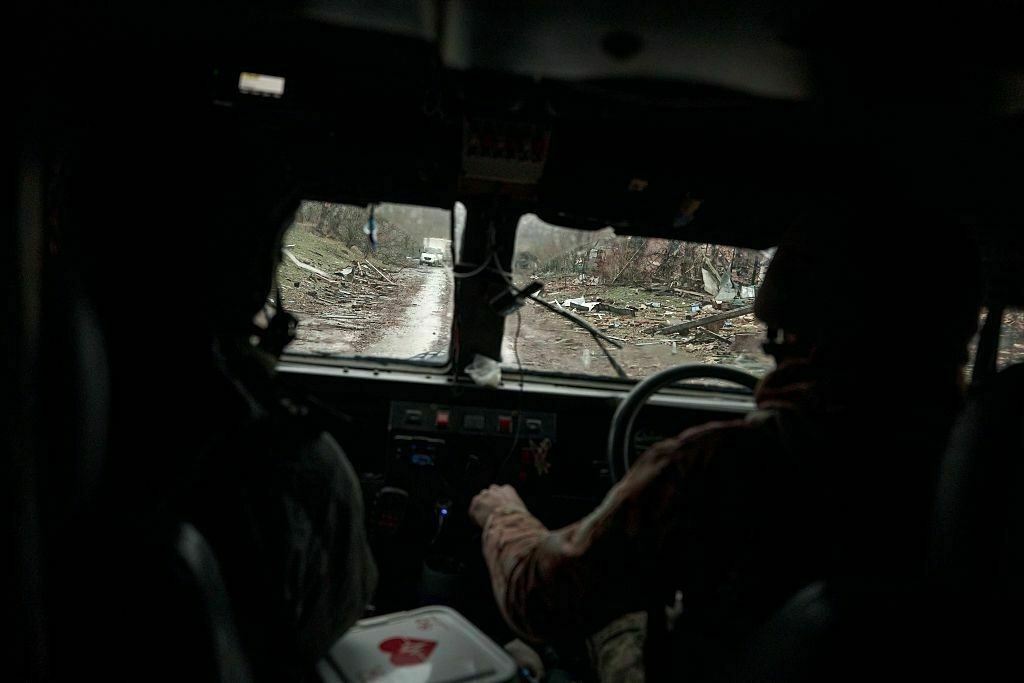
Putting pressure on Russia's war machineWith Trump in power, G7 consensus on the war in Ukraine is collapsing — and with it, the hope of unified economic action against Russia. Zelensky will likely find himself advocating for the type of coordinated response that hasn't been seen since the Biden administration.
While the European Union plans for the implementation of an 18th sanctions package against Russia on energy, banking, and oil, Trump refuses to set a deadline as to when the U.S. can be expected to impose additional sanctions.
Trump has repeatedly threatened to impose sanctions on Russia if he does not see progress in peace talks between Kyiv and Moscow — and repeatedly failed to follow through on these threats.
Despite Russia's rejection of a ceasefire, Trump has said he hasn't imposed new sanctions because he believes a peace deal might be within reach.
"If I think I'm close to getting a deal, I don't want to screw it up by doing that," he said on May 28, adding that he is prepared to act if Moscow stalls further.
While Trump has admitted that Russia may be "tapping me along," he refuses to impose sanctions as it may hinder future business and trade opportunities with Moscow, according to the New York Times.
Trump's comments heavily differ from those of his European allies, who, for the most part, support additional economic pressure on Moscow.
"Russia's goal is not peace," European Commission President Ursula von der Leyen said in pushing for consensus on additional sanction on Russia at the upcoming G7 meeting. "Strength is the only language that Russia will understand."
In addition to sanctions, proposed changes to the oil price cap will also be discussed.
Russia's Finance Ministry has leaned on oil and gas taxes to finance growing military expenditures. The current G7 price cap bans Western companies from shipping, insuring, or otherwise servicing Russian oil sold above $60 per barrel, limiting the country's revenue from oil exports.
The EU has called for the G7 to agree to the reduction of the oil price cap from $60 to $45 per barrel.
For his part, Zelensky called on June 10 for the price cap to be "stronger," proposing to lower it from $60 to $30 per barrel in order to pressure Moscow to declare a ceasefire.
"A ceiling of $45 per barrel of oil is better than $60, that's clear, that's true. But real peace will come with a ceiling of $30," Zelensky said. "That's the level that will really change the mindset in Moscow."
Key to Russia’s defeat lies in its economyAs the war in Ukraine grinds on, attention remains fixed on the battlefield. But Russia’s most vulnerable flank is not in the trenches — it’s in the treasury. The West, and especially the United States, holds economic levers that could push Vladimir Putin toward serious negotiations or even collapseThe Kyiv IndependentWojciech Jakóbik
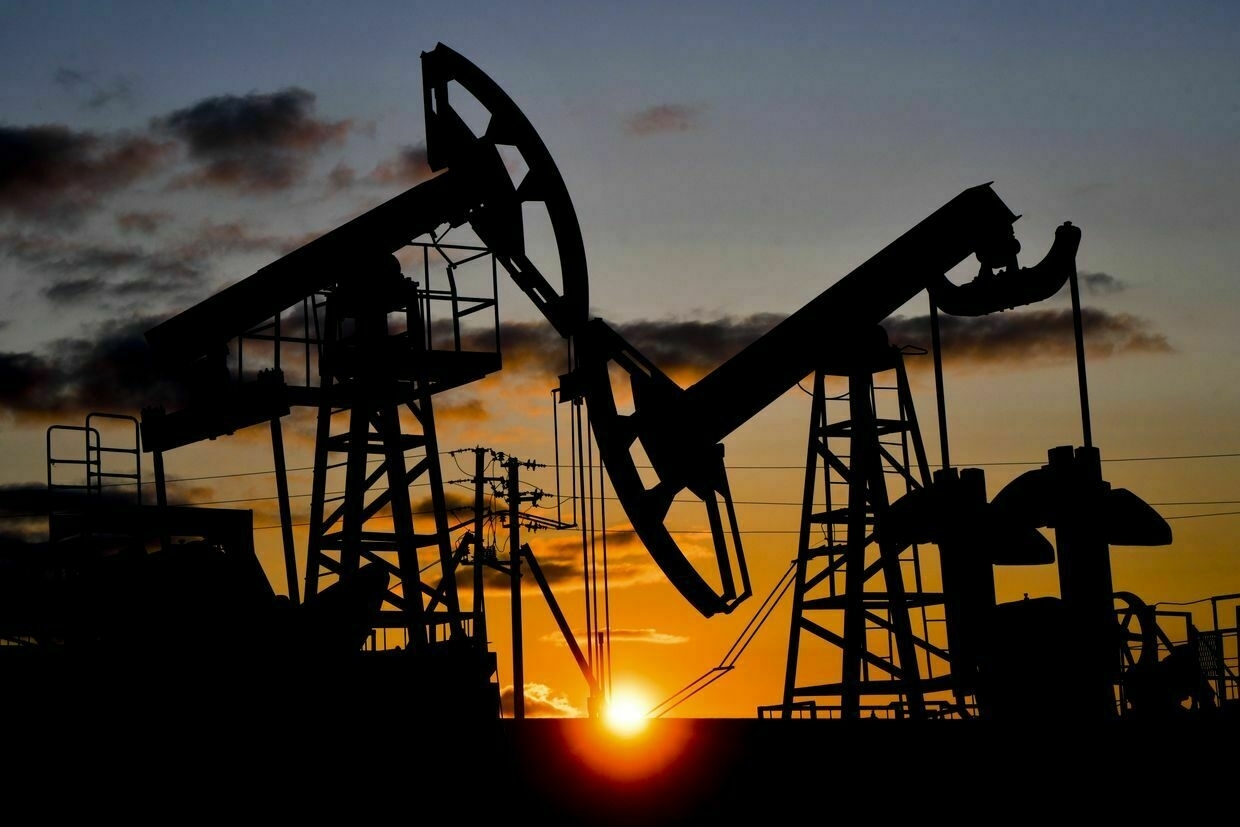
While U.S. officials have not publicly commented on renewed efforts to reduce the price cap, the U.S. opposed a joint G7 effort at the finance ministers meeting in May to lower the cap after U.S. Treasury Secretary Scott Bessent reportedly declined to support it.
In a preview of the potential battle to come over the price cap, Reuters reported on June 12 that G7 nations are prepared to lower the Russian oil price cap from $60 to $45 a barrel even without support from the United States.
The upcoming summit will mark a rare opportunity for Zelensky to advocate for punitive economic measures on Russia in face-to-face meetings with world leaders, encouraging any holdouts to take additional measures.
G7 of disunity?Unlike the European Union — which legally requires unanimous consent to enact certain measures, such as sanctions — the G7 relies on informal consensus to make an impact on the global economy.
At past G7 summits, joint communiques at the conclusion of meetings have made significant impacts on Russia and Ukraine.
The $60 price cap on Russian oil was jointly introduced by the G7 and EU in December 2022. Similarly, G7 nations finalized a framework agreement for a $50 billion loan for Ukraine backed by frozen Russian assets during the 2024 G7 Leaders' Summit in Italy.
While the G7 has a strong record of progress in supporting Ukraine through economic policy, next week's summit will serve as a major test of resolve for the bloc's collective unity.
Political analyst Teleshun says the G7 Summit is unlikely to be defined by joint declarations, but rather by attempts to navigate a new mode of cooperation among partners. The main goal of the summit, according to him, will be not so much to agree on joint statements as to find possible effective forms of further coexistence between partners.
Ukraine, he adds, will remain a central — and paradoxical — issue: one that both unites and divides. While decisions on future military aid may ultimately be left to individual governments, Kyiv can still use this moment to its advantage. Tightening sanctions against Russia, for instance, could serve as a unifying initiative for G7 countries, but it will require sustained diplomatic effort.
The U.S. objected on May 21 to the inclusion of clauses on "further support" for Ukraine in a joint statement during the precursor meeting of G7 finance ministers. Washington also refused to label Russia's full-scale invasion of Ukraine as "illegal" in the text, according to sources who spoke to Politico.
As Ukraine continues to hold the line against Russia's grinding advances, signs of disunity among Western allies will likely affect Kyiv's ability to fight back against Moscow's forces — and likely embolden Moscow's territorial ambitions.
The G7 summit will once again serve as an indicator for Putin as to what kind of collective response may be expected if he is to pursue additional territorial gains. For Ukraine, the summit will be indicative of the level of unified support it can expect from the U.S. and allies as the war rages into its fourth year.
Olena Goncharova contributed reporting.
NATO summit statement omits Ukraine’s entry bid, $40 billion pledge, Bloomberg reportsThe unusually brief document recognizes Russia as a threat to NATO but not as an aggressor in Ukraine.The Kyiv IndependentMartin Fornusek
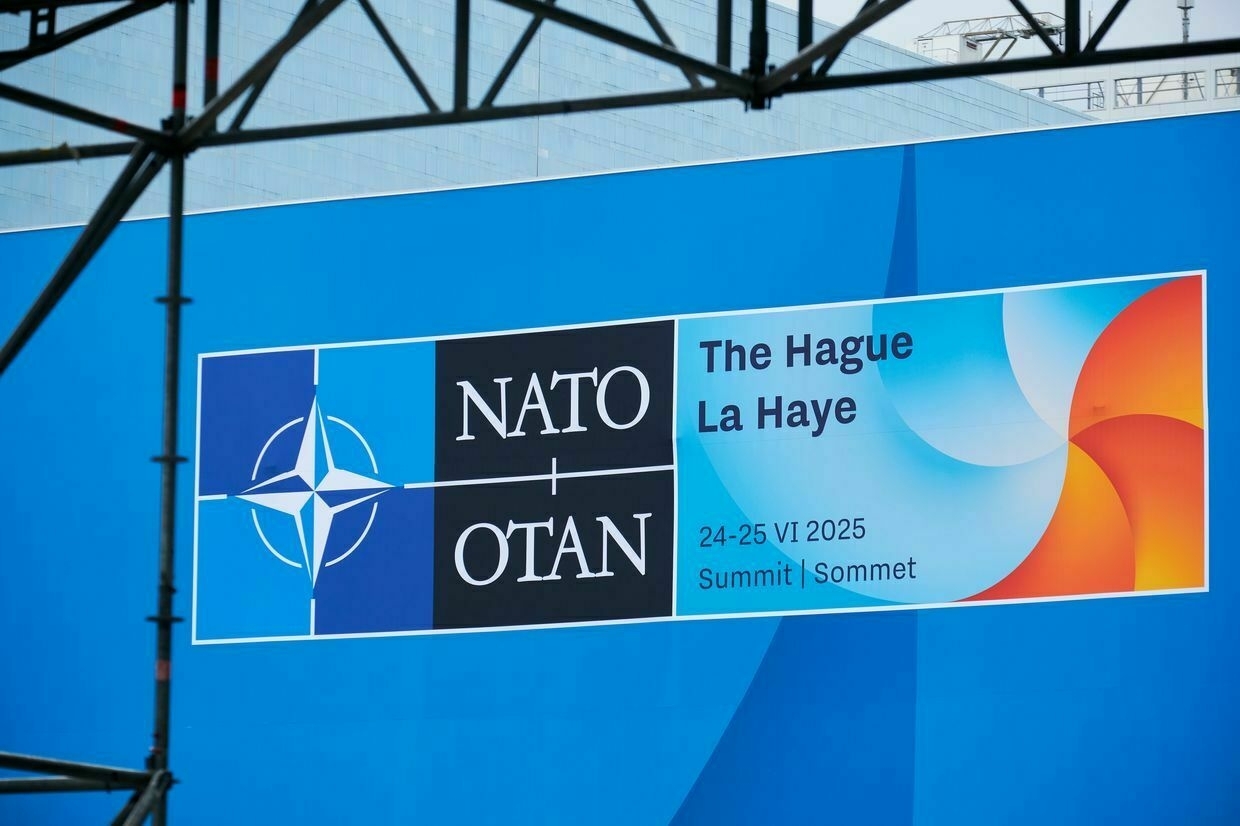
Note from the author:
Hey there, it's Dmytro Basmat, the author of this piece. I'm looking forward to bring you live breaking news coverage from the G7 Leaders' Summit in Canada. My colleagues and I are working around the clock on the ground in Kyiv and overnights in North America to bring you the latest updates on the war in Ukraine. I hope you'll consider supporting us by becoming a paid member of the Kyiv Independent today to help deliver the facts about the war in Ukraine to readers around the world.
-
Israel asks US to join strikes on Iran’s nuclear sites, officials told Axios
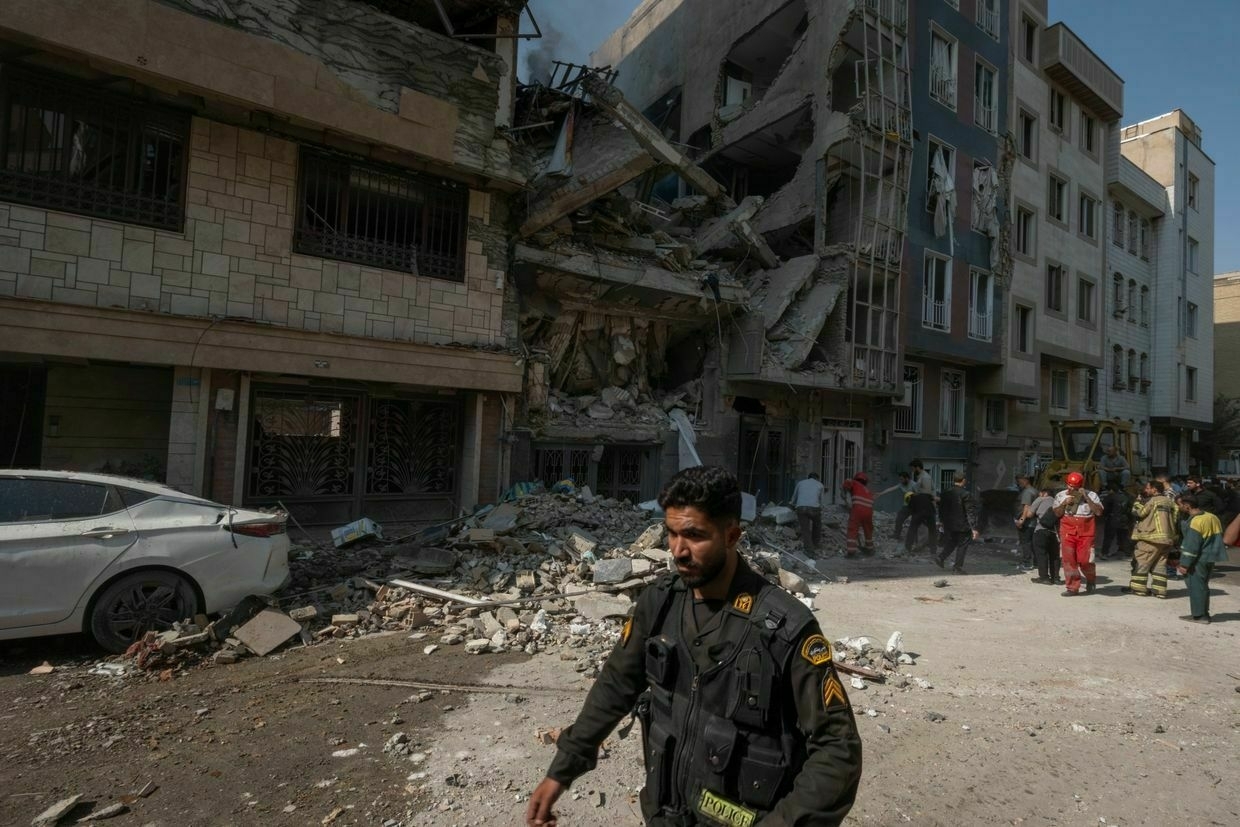
Israeli officials have asked the Trump administration to join military operations targeting Iran’s nuclear program, including a strike on the fortified Fordow uranium enrichment site, Axios reported on June 14, citing two Israeli officials.
The request comes as Israel continues its assault on Iranian targets and warns that it lacks the capability to destroy Fordow alone. The underground facility, located deep within a mountain, is beyond the reach of Israel’s conventional weapons. U.S. forces in the region, however, have the necessary bunker-busting bombs and bomber aircraft to hit the site.
According to an Israeli official who spoke to Axios, Trump suggested in a recent conversation with Israeli Prime Minister Benjamin Netanyahu that he would consider joining the operation if needed. But a White House official denied that claim on June 13.
A second U.S. official confirmed that Israel had urged the U.S. to take part, but said the administration is not currently considering involvement. Israeli Ambassador to the U.S. Yechiel Leiter told Fox News on June 13 that “the entire operation… really has to be completed with the elimination of Fordow."
An Israeli source told Axios that the U.S. is considering the request, and that Israel hopes Trump will agree to it.
A senior White House official told Axios on June 14 that “whatever happens today cannot be prevented,” referring to the Israeli attacks. “But we have the ability to negotiate a successful peaceful resolution to this conflict if Iran is willing. The fastest way for Iran to accomplish peace is to give up its nuclear weapons program,” the official added.
U.S. officials have so far maintained that Iranian retaliation must not target American forces, arguing that the current Israeli operation does not justify attacks on U.S. interests.
Israel-Iran war could provide economic boost Russia needs to continue fight against UkraineIsrael’s “preemptive” strikes against Iran targeting the country’s nuclear program and killing top military officials could have far-reaching implications for Ukraine and could boost Russia’s ability to continue its full-scale invasion, experts have told the Kyiv Independent. Iran has been one of Russia’s staunchest allies throughout the war, providing thousandsThe Kyiv IndependentChris York
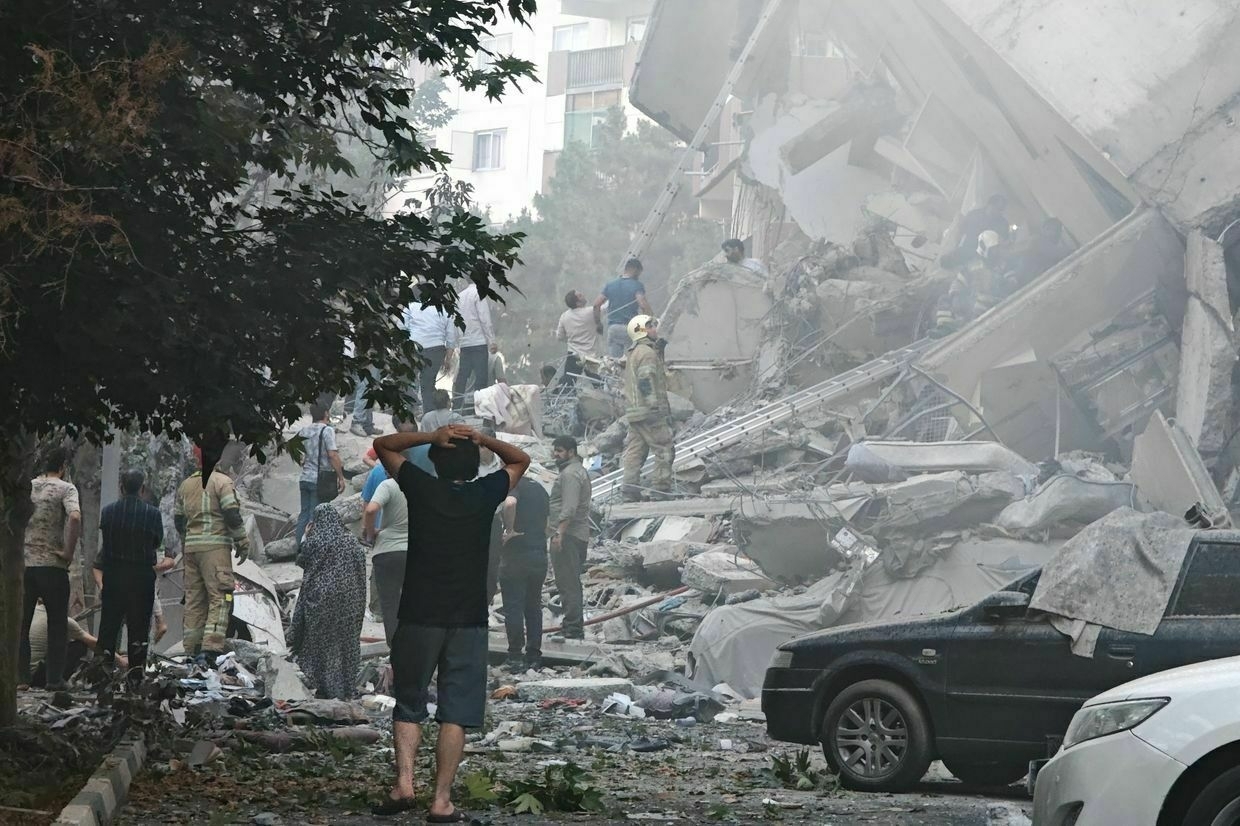
-
I want to talk to Trump: Zelenskyy on possible U.S. aid reduction #shorts
-
Putin, Trump hold phone call, Russia's Ushakov claims
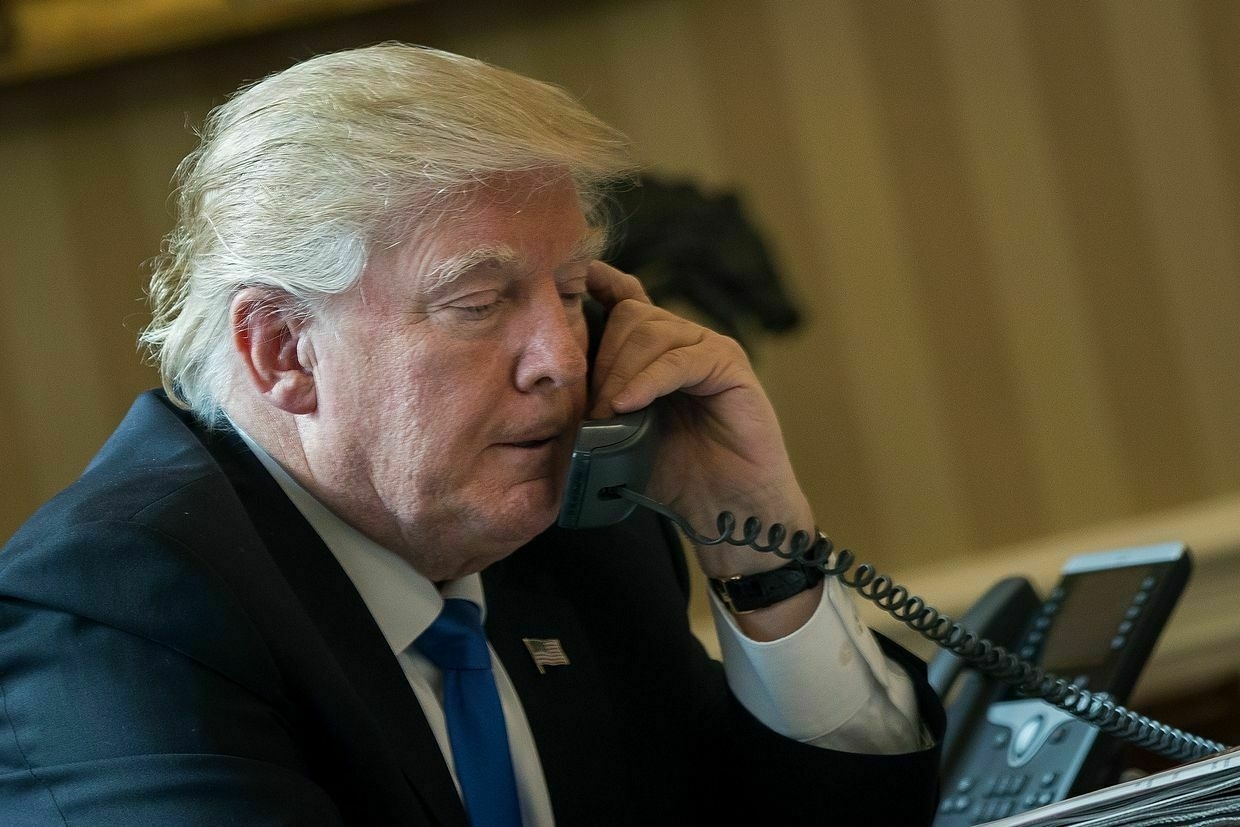
Editor’s note: This is a developing story and is being updated.
U.S. President Donald Trump and Russian President Vladimir Putin held a phone call, Putin’s foreign policy aide, Yuri Ushakov said on June 14.
“Another telephone conversation between Russian President Vladimir… Putin and U.S. President Donald Trump,” Russian state media reported, citing Ushakov.
The phone call took place on Trump’s birthday, as the U.S. president marks the occasion with a military parade in Washington.
Russia has intensified drone and missile attacks on Ukraine following two rounds of largely inconclusive peace talks between Moscow and Kyiv in Turkey.
Israel and Iran continued to exchange attacks on June 14, more than 24 hours after Israel launched its first strikes on Iran’s nuclear sites and military leadership.
Trump has said that the U.S. military is on high alert and watching for any kind of retaliation, adding that the U.S. will respond to defend itself or Israel if Iran strikes back.
Trump gave Putin a ‘two-week’ deadline to consider peace in Ukraine. Instead, Russia just launched more drones.A “two week” deadline imposed by U.S. President Donald Trump to see if Russia is serious about peace in Ukraine has come and gone, with Moscow’s escalation of attacks on civilians during this period failing to draw the slightest condemnation from the White House. “We’re going to find outThe Kyiv IndependentYuliia Taradiuk
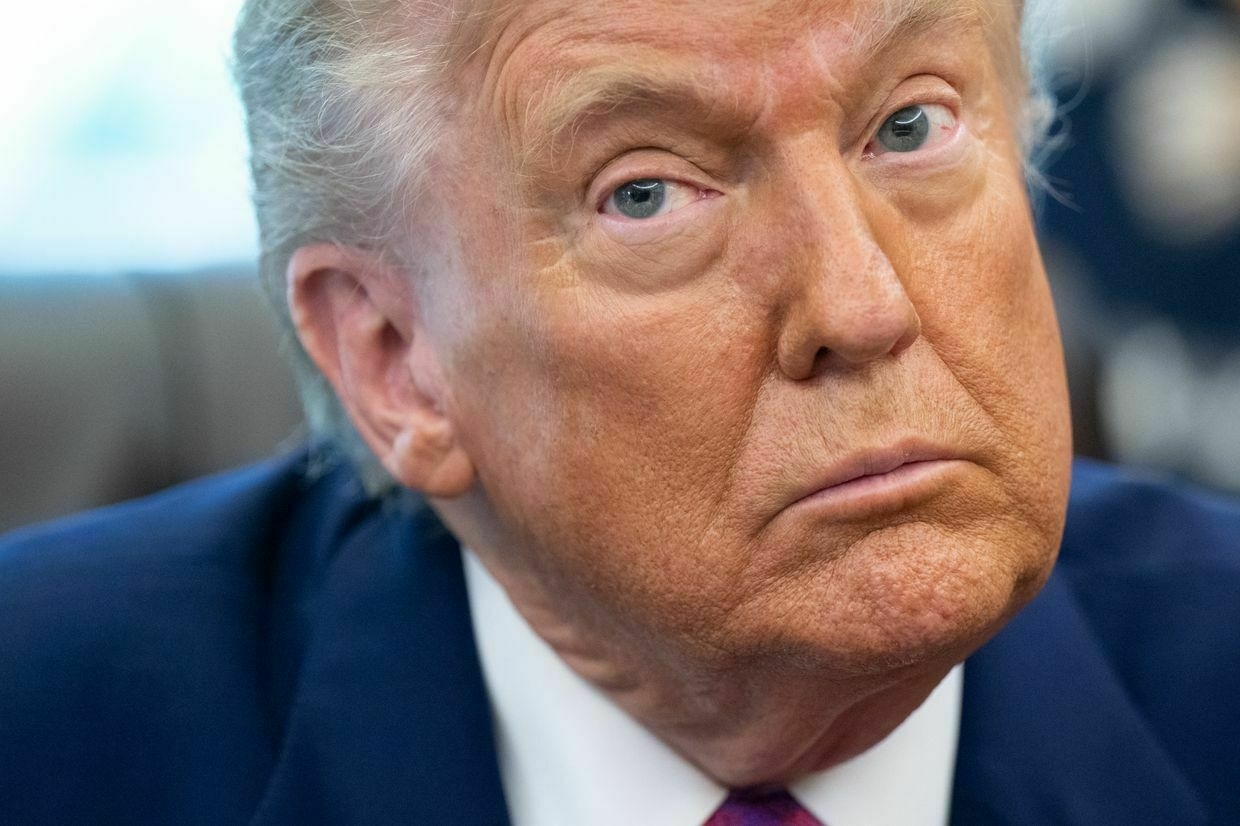
-
Only Trump can stop Putin! Zelenskyy on pressure against Russia #shorts
-
The ‘Red Beaches’ of a Taiwan invasion
Editor’s Note:
Editor’s note: June has historically been our toughest month, where we see a lot of unsubscribes.
Amid the constant attacks in Ukraine, we need your help: will you upgrade to a paid subscription to support our original work now?
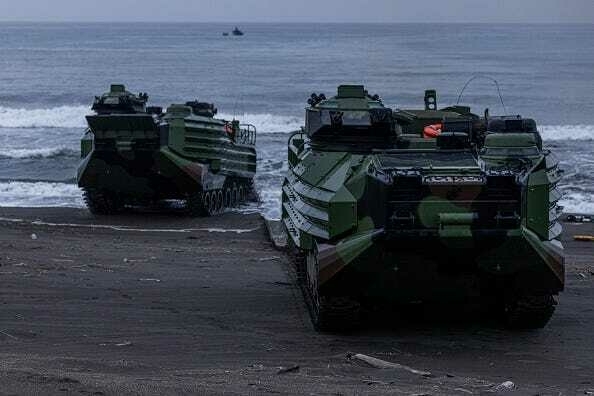
The Taiwanese military conducts amphibious landings to simulate People's Liberation Army (PLA) forces landing on three beaches in Yilan County. These beaches are identified by experts as "red beaches" which are vulnerable to a potential invasion by China. (Photo by Annabelle Chih/Getty Images). Li Ming Zhong has been interested in Taiwanese nature since he was a little boy, when he ran next to the Tamsui River in Taipei and into a nearby forest, where he would sit for hours to observe the natural world.
His passion for nature inspired him to take several solo trips to remote landscapes, eventually leading him to become a high school geography teacher in Taipei.
Ming Zhong, 43, who goes by Willie in school to make it easier for his students to remember his name, has been a teacher for 21 years.
Yet, never did he think he would one day be analyzing Taiwan’s landscape for potential military landing sites as a Chinese invasion over the island looms.
“A ‘red beach’ is a place that is easy for [military landing craft] to land, and harder for [Taiwan] to defend,” Ming Zhong told The Counteroffensive.
Taiwan’s rugged terrain limits the number of viable locations for a Chinese military landing in the event of an invasion. However, there are between a dozen and 20 designated ‘red beaches’ across the island that are considered suitable for such operations.
Over the past decade, Taiwan’s defense ministry has been actively preparing its forces, conducting regular military drills to ensure they can respond swiftly and defend against potential simultaneous attacks by the Chinese military.
We were allowed to tag along for some of these drills.
Military personnel participate an amphibious landing drill on May 24, 2023 in Yilan, Taiwan. (Photo by Annabelle Chih/Getty Images). Red beaches are characterized by being sandy beaches as opposed to ones with many rocks, Ming Zhong said, which makes it easier for the Chinese army to land on.
Most of these can be found on the West Coast, which is closer to mainland China, thereby reducing the time during which Chinese troops would be vulnerable during the passage across the Taiwan Strait.
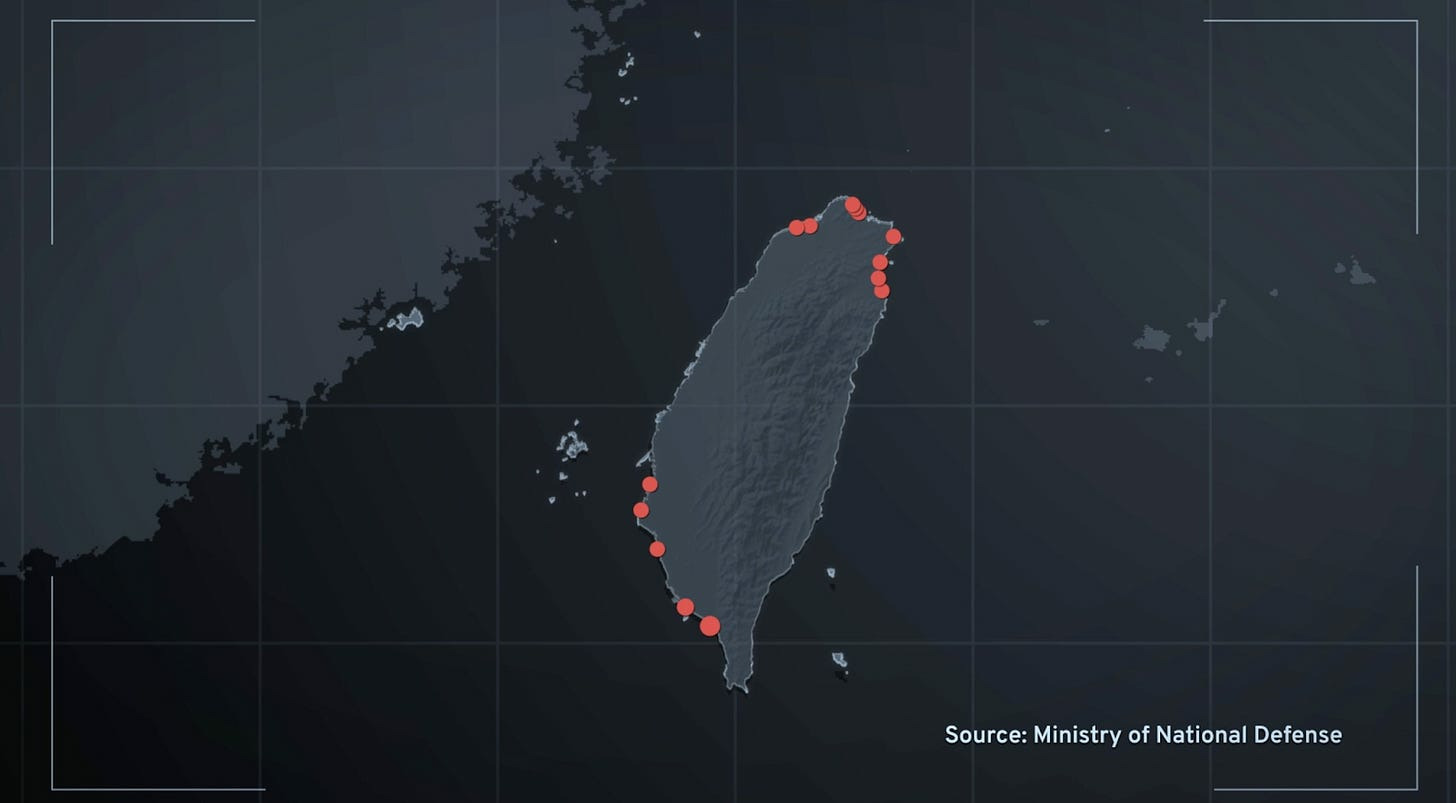
Some of Taiwan’s ‘Red Beaches,’ as identified by its government. Source: Ministry of National Defense via Taiwan Plus News. What many are not aware of, Ming Zhong said, is that Taiwan has natural defenses that will help the island in the wake of an invasion.
The fact that the Taiwan Strait divides the island from the People’s Republic of China (PRC) is an advantage because it gives Taipei time to respond, according to Ming Zhong. The Taiwan Strait is approximately 160 km wide at its narrowest point, and each crossing by a Chinese landing craft would take several hours.
The tide is also a natural advantage of the island, Ming Zhong said. The low tide around the West Coast city of Taichung prohibits big enemy ships from accessing the island, he added.
In addition, the capital city of Taipei is surrounded by mountains, which means that military tanks landing on the red beaches would have to cross them to reach the capital.
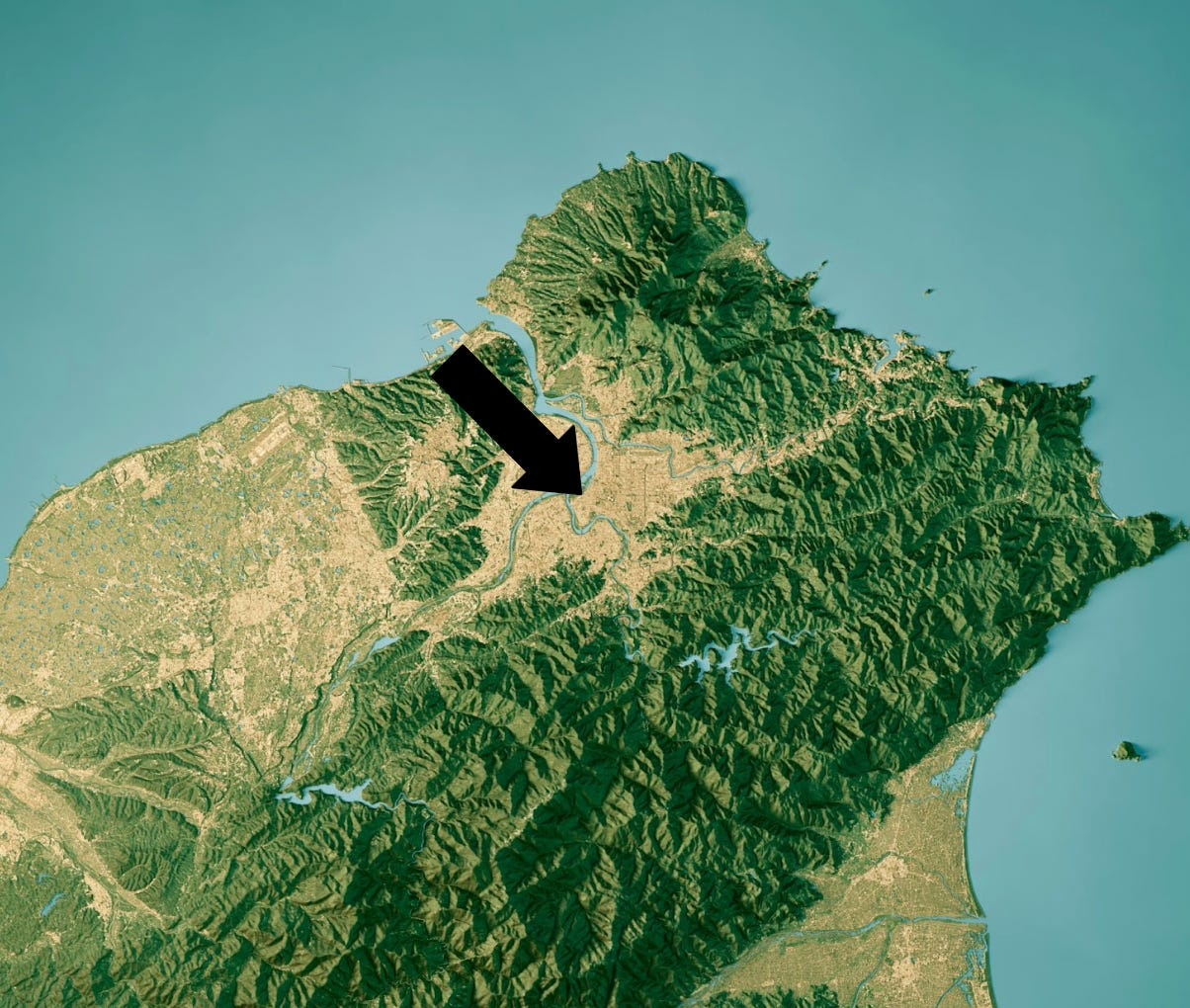
3D Render of a Topographic Map of Taipei City, Taiwan. Arrow points to Taipei. (Photo Credit: Frank Ramspott/ Getty Images). The People’s Liberation Army, the military of the Chinese Communist Party, has been ramping up military pressure over Taiwan since 2016, when the Democratic Progressive Party returned to office in Taipei and refused to endorse Beijing’s ‘One China’ framework. Despite never having governed Taiwan, the PRC views the island as a breakaway province, with China’s President Xi Jinping stating that reunification between Taipei and Beijing is inevitable.
Living in Taiwan, and facing the CCP’s constant threat, Ming Zhong was defiant:
“We should never be afraid of China. History has shown us: Taiwan has been easy to protect and hard to attack… but we need to be aware of the danger, and train ourselves to be ready when bad things happen.”
Amidst a possible Chinese invasion, Taiwan has been intensifying its defense strategy over the past years. Taiwan's President Lai Ching-te announced a civil mobilization plan last year to recruit approximately 400,000 people, including active and former military personnel, as well as volunteers from the police and fire departments.
The Counteroffensive was able to observe a number of military exercises by the Taiwanese Air Force, Navy, Army, and Marines.
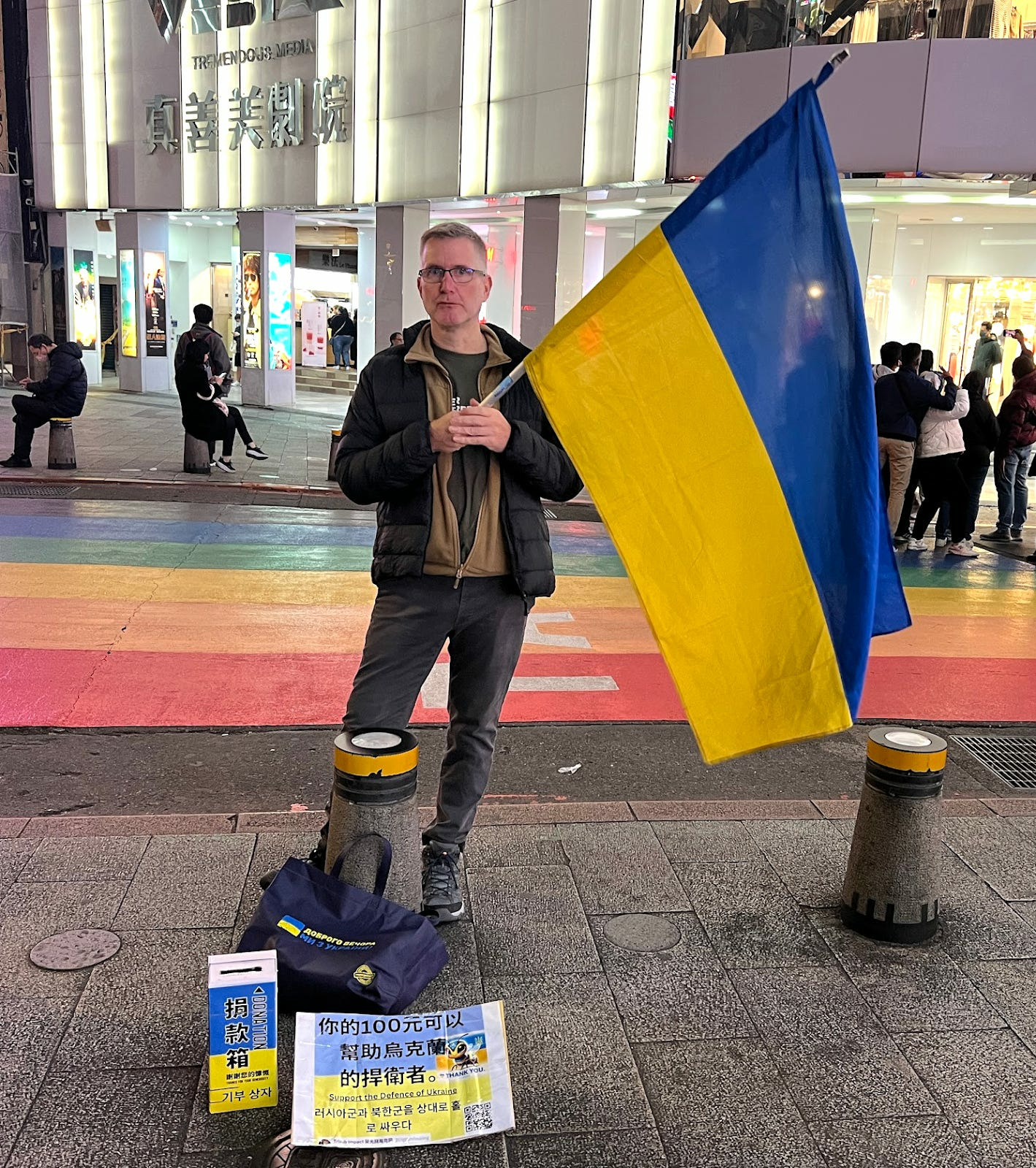
A protester in Taipei reminds the Taiwanese public of Russia’s invasion, raising money for the defense of Ukraine. The war in Ukraine has opened the eyes of people in Taiwan on the importance of asymmetric warfare, Wu Tzu-li, an associate research fellow with Taiwan's military think tank, the Institute for National Defense and Security Research, told The Counteroffensive.
Asymmetric warfare is a conflict characterized by a significant disparity in military capabilities and resources between the two sides, and where the weaker side uses unconventional methods to defeat its opponent.
The PRC’s military, which has about 2 million recruits, far surpasses Taiwan’s 215,000 force.
Ukraine has managed to stand out on the battlefield amid its use of drones, Wu said, which has inspired the Taiwanese government to assemble its local production of UAVs and to integrate them into its military strategy.
Before Russia’s invasion of Ukraine, Taiwan’s drone inventory was small, with only a few hundred units of four types of drones. Yet, in 2022, Taiwan’s government launched the ‘Drone National Team’ program to recruit the country’s commercial drone makers and aviation firms to create a self-sufficient drone industry.
Did you know we have a sister publication that covers defense technology right from the battlefield? Here’s our latest piece on Taiwanese military technology and what they’re learning from the war in Ukraine.
Shortly after Russia invaded Ukraine, Lieutenant Colonel Liu Yongcheng, of the 23rd Fighter Squadron, has been monitoring the situation in Ukraine and assessing the need for Taiwan to rapidly deploy its air assets.
At the moment, he does not think it is possible to replace manned aircraft, such as the F-16 fighter jets, with drones, he told The Counteroffensive. Yet, he sees drones playing a significant role in the future, especially when combined with large airframes.
Javelin anti-tank missiles have also helped Ukraine push Russian forces out of Kyiv in the early days of the invasion.
Sergeant Wang Zhi Han of the 9th Marine Corps in Taiwan told The Counteroffensive that they have been familiarizing themselves with Javelin missiles to target enemy vehicles in the event of an attack.
Taiwanese Marines drill on the use of Javelin anti-tank missiles.
Ukraine and Taiwan share many similarities in their fight against two superpowers that are trying to conquer them, Francois Wu, the Taiwanese Deputy Minister of Foreign Affairs, told The Counteroffensive.
But “the economic power of Taiwan is much more important than Ukraine,” he added, because Taiwan has the know-how of semiconductors, which is kind of indispensable for the modern world.”
Taiwan’s semiconductor industry has been acting as a ‘silicon shield’ for the island. The term refers to Taiwan’s ability to deter China’s threat: China might not want to invade Taiwan and disrupt the worldwide trade in semiconductors, which is critical for modern electronics.
Taiwan currently dominates the global semiconductor market, accounting for 68 percent of the world's semiconductor manufacturing, and the industry contributes nearly 15 percent of the island’s gross domestic product.
The PRC has invested billions in efforts to match Taiwan’s production and has set targets of achieving 40 percent self-sufficiency in chips by 2020 and 70 percent by 2025. Yet, it reportedly produces 16 percent of its needs and still imports over $400 billion worth of semiconductors.
While some believe this could be a motive for the PRC to invade Taiwan and maintain control of its semiconductor foundries, Beijing would be unable to achieve its goals if war left the infrastructure destroyed.
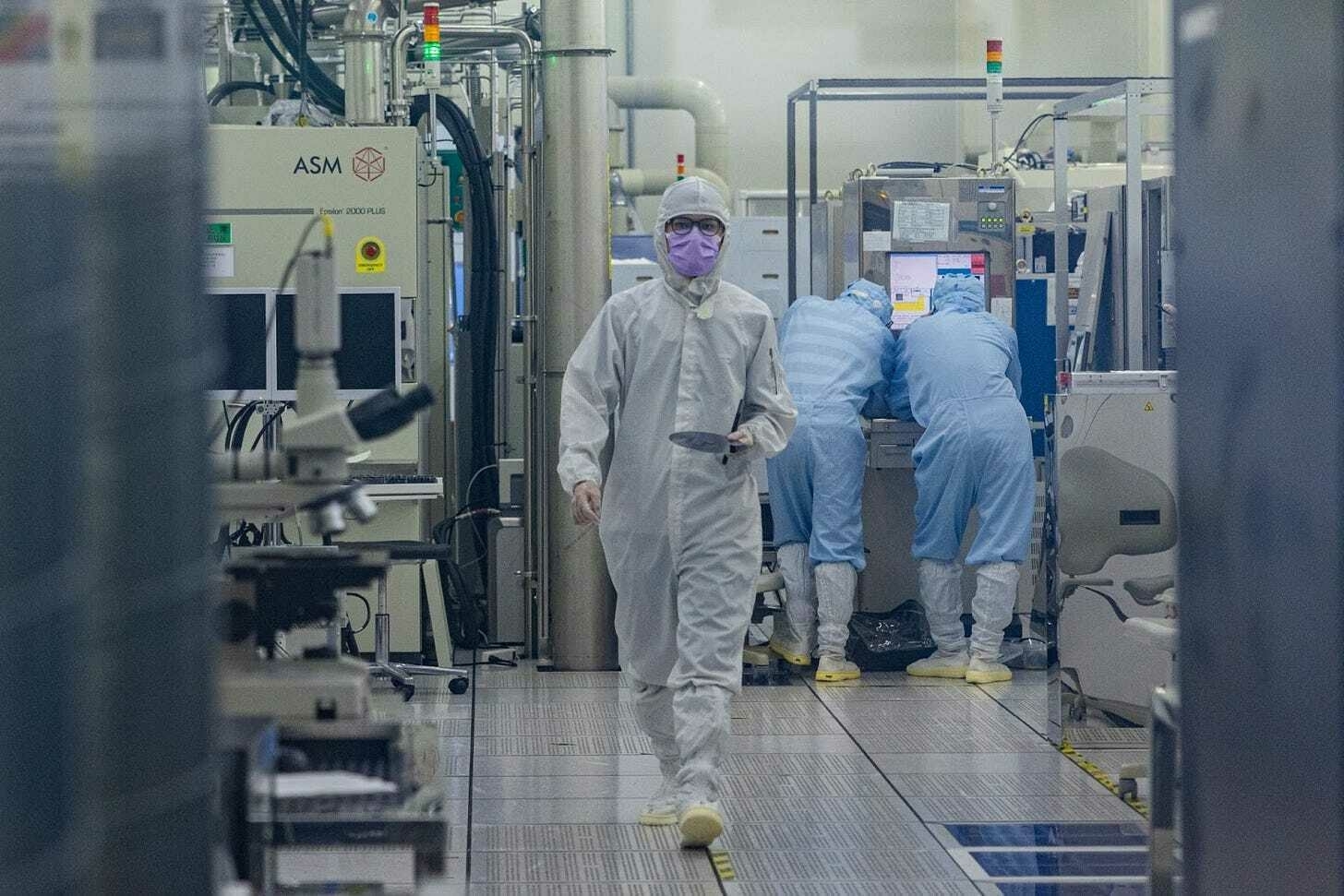
A student wears cleanroom suit conducts a research inside the clean room of Taiwan Semiconductor Research Institution during a press semiconductor tour at Hsinchu Science Park on September 16, 2022 in Hsinchu, Taiwan. (Photo Credit: Annabelle Chih/ Getty Images). “The problem is that now this know-how is not a simple factory,” Zhizhong said. “The semiconductor industry is an ecosystem,” and the result comes from a combination of “all the major democratic countries in the world,” he added.
In recent years, the PRC has intensified its military exercises in the Taiwan Strait, simulating land strikes, sea assaults, and blockades, further heightening tensions between Beijing and Taipei.
In April this year, the Chinese military launched strikes in the East China Sea and simulated blockades close to key shipping lanes near Taiwan. The PRC spent about 7 percent of its defense budget — about $15 billion — on exercises in the Western Pacific in 2023.
Some experts interpret the Chinese drills as rehearsals for a potential blockade aimed at toppling the government in Taipei.
It is easy to quarantine the island, according to Ming Zhong, the high school geography teacher. Yet, the Chinese military “is not used to fighting in the water,” so they will struggle to remain in position for long if they are unable to act fast, he added.
In addition, amid the stream in the Taiwan Strait, one of the island’s biggest natural defenses, the summer months are the hardest to cross as the boats would be going against the direction of the stream, which would require more power, Ming Zhong said.
The winter months, December until March, are easier due to the stream, he added.
The Chinese would also have to take into account Taiwan’s rainy season, which runs from May to June, and typhoon months, which span from July until October.
The easiest months for Beijing to invade would be April and November, according to Ming Zhong.
There are already drones on some of Taiwan’s red beaches. But they are for civilian purposes: fishermen use them to carry their lines deep out into the strait, for a better chance of catching their harvest.
Xing Li, a retired civil engineer who fishes in his spare time, told The Counteroffensive at Zhuwei Beach that he thinks the space was designated a red beach amid its calm and flat waters, particularly from May to August.
Other designated red beaches in Taiwan include Linkou, Jinshan, Zhuangwei, Luodong, Fulong, and Linyuan.
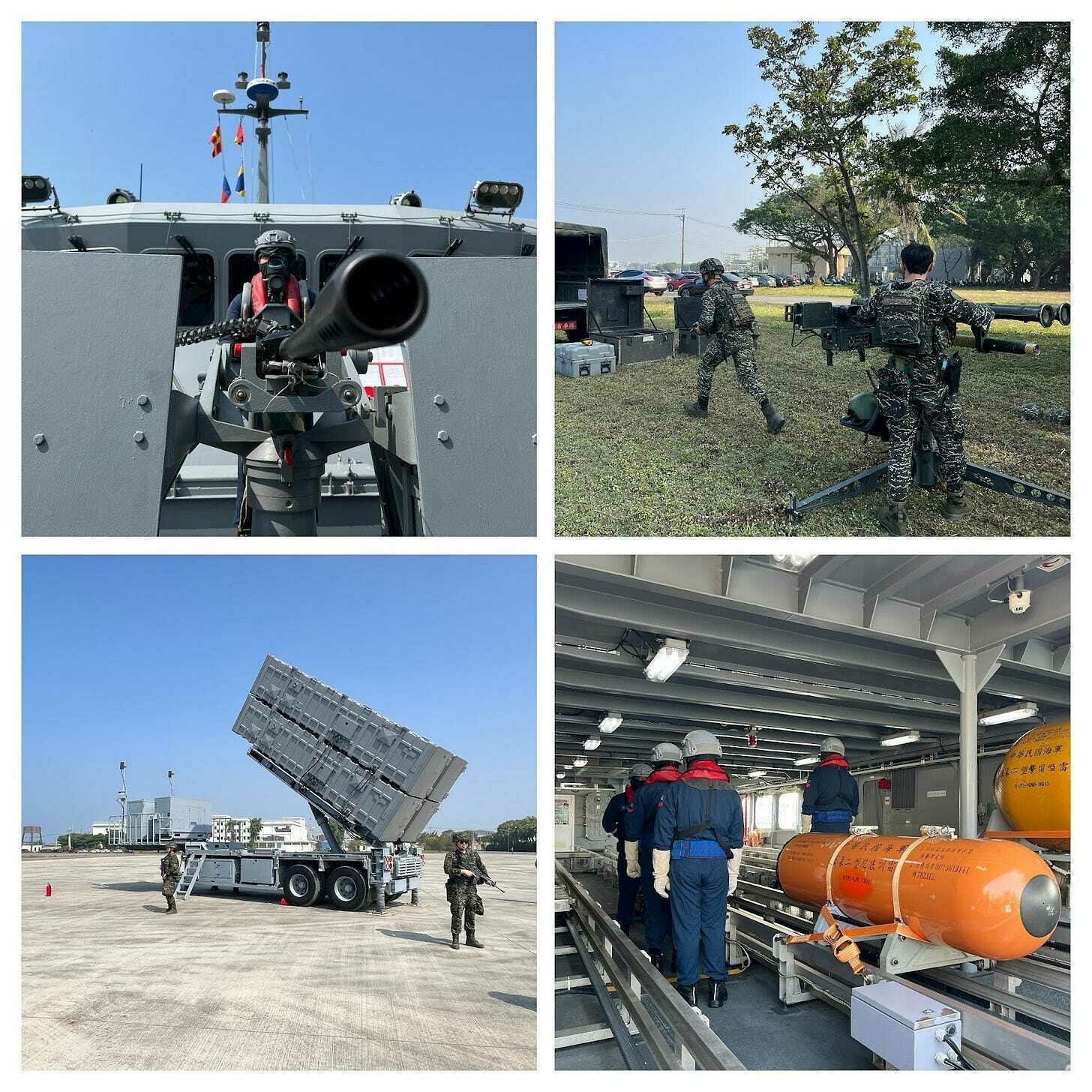
Taiwanese Navy, Army and Marine Corps engage in military exercises as The Counteroffensive looks on. Clockwise from top left: a sailor stands ready at a machine gun; marines perform exercises; troops practice an air defense drill; and sailors prepare to launch a naval mine. Lieutenant Commander Lian Shaopu, head of an eight-boat squadron, is training his people to deploy sea mines to locations that the enemy could use to reach the island.
The goal is to slow down and disrupt a hypothetical Chinese offensive. Every week, their crews get together to understand the type of mines they are working with, he told The Counteroffensive.
The Air Defense Battalion has also included twin-mounted Stinger missiles, also known as the Dual Mount Stinger, into their training.
Marine Staff Sergeant Bao Wei Zhong, who has been in the military for 10 years, told The Counteroffensive that these weapons can fire two missiles simultaneously, enhancing air defense capabilities against targets such as helicopters.
A Taiwanese fighter jet pilot prepares to board his plane.The Taiwanese public would be willing to defend the nation amid a Chinese attack, but the majority believe Beijing will not invade the island within the next five years, a poll conducted by Taipei think tank, the Institute for National Defense and Security Research, revealed.
However, Ming Zhong thinks the stakes are high. “As long as China remains undemocratic, they will always try to invade us. It’s only a matter of time.”
Approximately 68 percent would be willing to defend Taiwan. In addition, 64 percent said China’s “territorial ambition” poses a “serious threat” to the island. Yet, 61 percent said it was unlikely that the People’s Liberation Army would invade in the next five years.
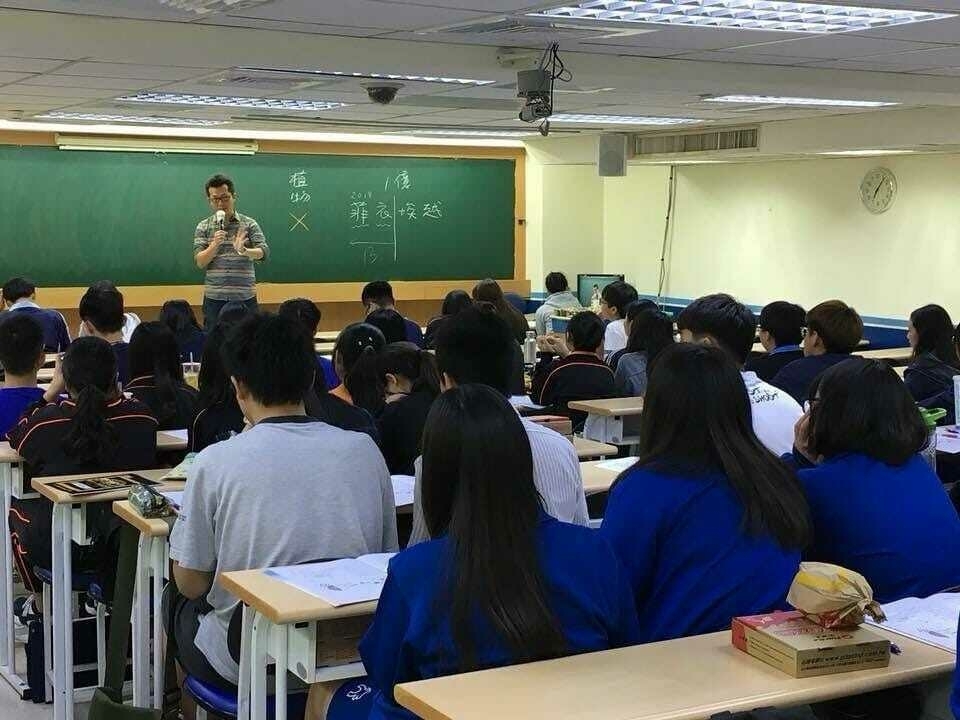
Ming Zhong, who has devoted his life to education and helped Taiwanese kids, teaches geography in his class. For Ming Zhong, a Chinese invasion feels inevitable. As a communist state that restricts individual freedoms, the Chinese Communist Party sees democratic Taiwan as a threat, as its very existence could inspire Chinese citizens to imagine life in a free society.
In the meantime, Ming Zhong continues to share his expertise with his students, teaching them about Taiwan’s natural defenses.
Ming Zhong has been devoted to helping the next generation in Taiwan. One of the things he teaches his students is that they should never run away from their problems.
If the war comes, Ming Zhong will do everything to protect his motherland.
“We need to fight a war that wins the respect from the world. We need the world to understand us and stand for our country, even if the cost is high,” said Ming Zhong.
NEWS OF THE DAY:
Good morning to readers; Kyiv remains in Ukrainian hands.
TAIWAN TESTS NEW WEAPON INSPIRED BY UKRAINE: Taiwan has begun testing a new weapon that could bolster its defenses against a potential Chinese invasion: sea drones.
Inspired by Ukraine’s successful deployment of sea drones in the Black Sea, Taiwan is exploring this low-cost, high-impact technology to strengthen its maritime security. The remotely operated drones can carry explosives and are capable of targeting both ships and aerial threats.
“Uncrewed boats or vehicles have played a very significant role in the Ukraine war,” Chen Kuan-ting, a lawmaker from Taiwan’s ruling Democratic Progressive Party, told Reuters.
CONGRESS URGED TO RESUME SEARCH FOR DEPORTED KIDS: 30 members of Congress from both parties issued a letter to Secretary of State Marco Rubio, urging him to maintain funding for the Conflict Observatory at Yale University’s Humanitarian Research Lab, which helps locate Ukrainian deported children.
Elon Musk’s Department of Government Efficiency (DOGE) shut down the program at the end of January. After being forcibly shut down, Yale researchers lost access to a database of 35,000 children they had compiled over three years. Although the database was eventually handed over to Europol, the EU’s law enforcement agency, lawmakers have warned that the data could become outdated within weeks.
Nathaniel Raymond, the head of Yale’s researchers, told The Counteroffensive earlier that without HRL's work, Ukraine will lose access to four crucial capabilities:
Whereabouts of children that have been taken for re-education, adoption, military training, or similar purposes;
Names/files of children who have been made Russian citizens;
Number of children believed to have been sent to Russia for re-education; and
Forensic analysis of documents detailing how Russia makes these children citizens.
Moreover, according to the lawmakers’ letter, few organizations possess the same level of expertise in open-source investigations, collecting photos and videos of deported children, and working with Russian websites.
RUSSIAN OIL PRICES SURGE AFTER ISRAEL-IRAN STRIKES. Russian oil prices surged after Israel’s attacks on Iran raised fears of global supply disruptions, marking the largest intraday gain since the day after Russia’s full-scale invasion of Ukraine in 2022.
Until Friday, Moscow’s oil revenues had been falling, with prices slumping below the $60-per-barrel price cap. But the renewed volatility sparked a rally on Russia’s stock exchange, with domestic oil and gold companies posting significant gains.
U.S. OPPOSES LOWERING RUSSIAN OIL PRICE CAP. The United States is resisting efforts to lower the G7 price cap on Russian oil, despite mounting pressure from European allies.
Ahead of the G7 summit, Bloomberg reports that sources familiar with the matter say the Trump administration opposes reducing the cap from $60 to $45 per barrel.
The cap, introduced in December 2022, was designed to curb Moscow’s oil revenues and weaken its ability to fund the war. It bars Western firms from purchasing Russian crude above $60 per barrel.
Despite U.S. resistance, other G7 members are reportedly prepared to move forward with the proposal without Washington’s backing.
DOG OF (PREPARING FOR) WAR:
A stray dog runs across military parade grounds before a Taiwanese Army drill. It did not stop to tell us his name!
Stay safe out there.Best,
Tim -
Trump gave Putin a ‘two-week’ deadline to consider peace in Ukraine. Instead, Russia just launched more drones.
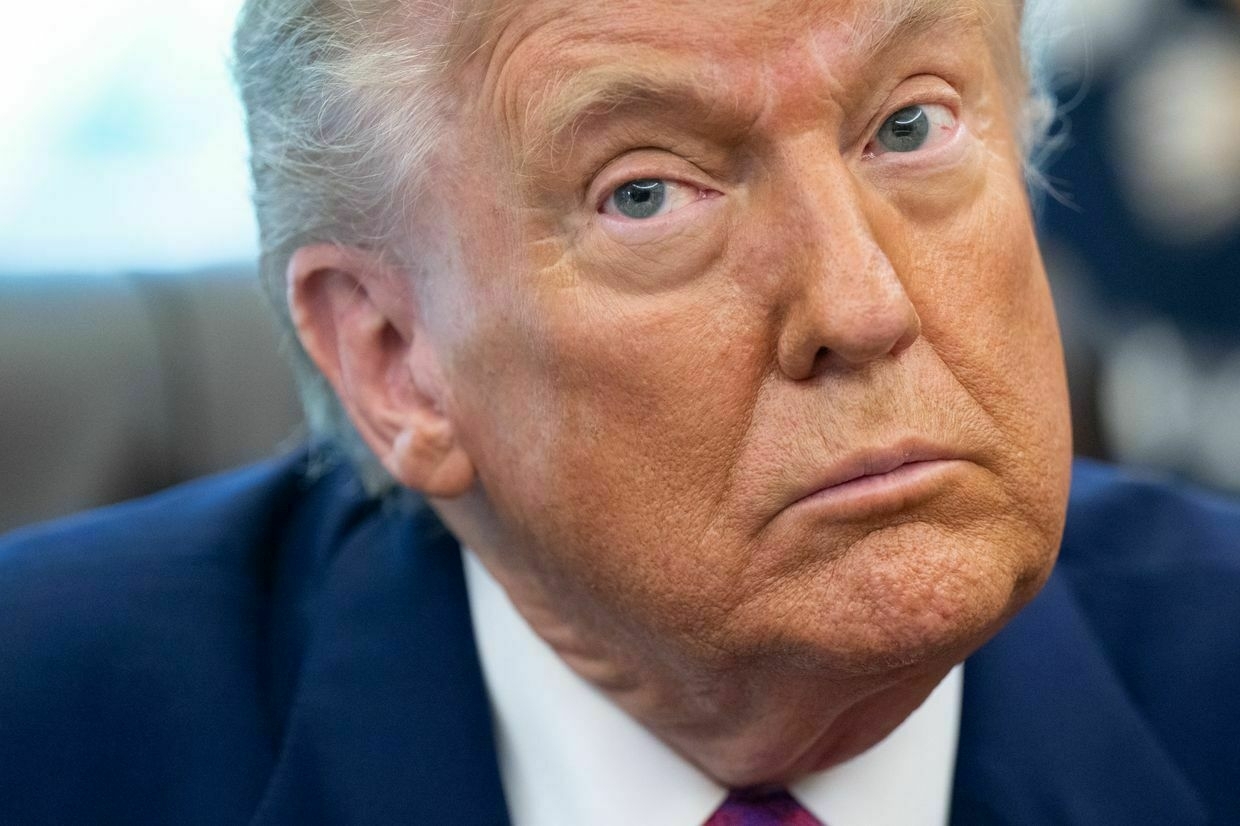
A “two week” deadline imposed by U.S. President Donald Trump to see if Russia is serious about peace in Ukraine has been and gone, with Moscow’s escalation of attacks on civilians during this period failing to draw the slightest condemnation from the White House.
“We’re going to find out very soon. It’ll take about two weeks, or a week and a half,” Trump told reporters on May 28, responding to a question on whether Russian President Vladimir Putin wants to end the war.
His comments came two days after Russia carried out the biggest drone attack of the full-scale war, which reportedly involved 355 Shahed-type attack drones and decoys.
Since the deadline was imposed, this record has been broken twice — Russia attacked Ukraine overnight on June 1 with 472 Shahed-type attack drones, and on June 9, 479 drones and 20 missiles were launched against Ukrainian cities.
The figures are stark. In March 2025, Russia launched 4,198 drones at Ukraine, which is so far the largest monthly number of drones launched during the full-scale invasion.
But if the intensity of attacks so far in June continues, that figure could reach nearly 7,000.
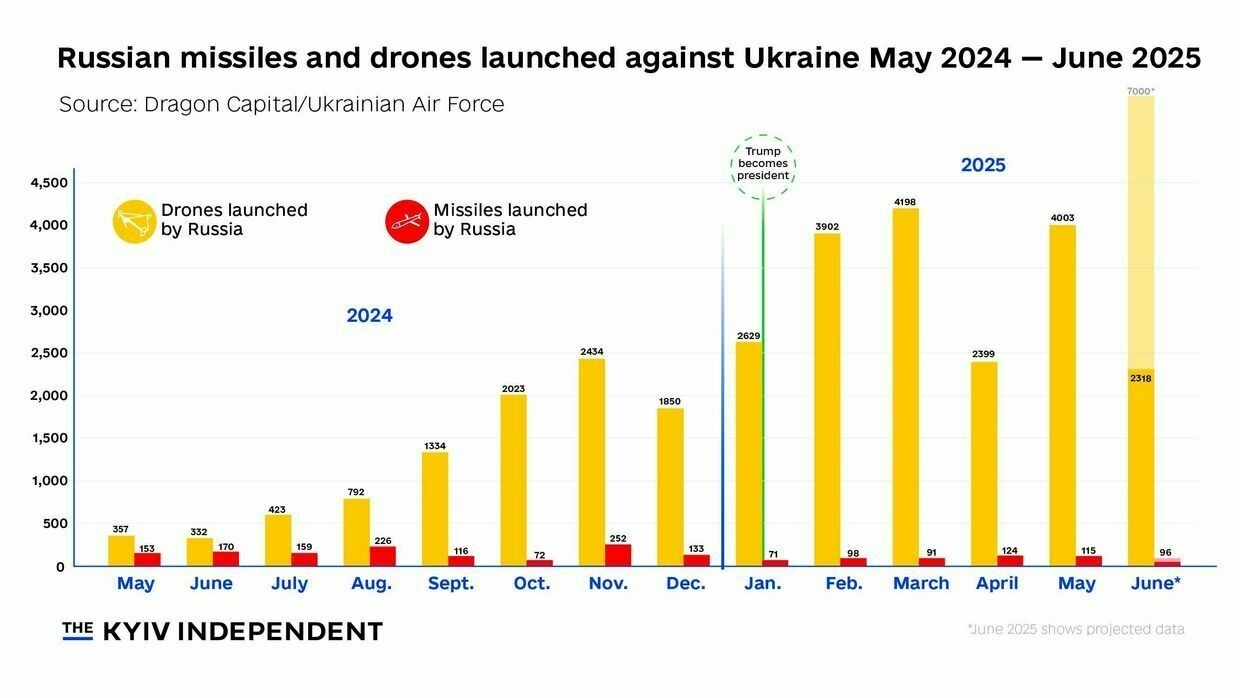
Russian missiles and drones launched against Ukraine May 2024-June 2025. (Nizar al-Rifai/The Kyiv Independent) “This is terrorism against the civilian population aimed to create a sense of doom, war-weariness, and to put pressure on the (Ukrainian) authorities,” Rodion Rozhkovskiy, co-founder of Liveuamap, told the Kyiv Independent.
Despite previously hinting at the imposition of new sanctions against Russia if the Kremlin doesn’t show a desire to end the war, Trump has so far taken no action against the ongoing escalation of violence by Moscow’s forces.
“Lately, every attack instills a huge fear that does not disappear until the air alarm is over.”
Instead, Trump on June 6 excused Russia's escalating attacks, saying Ukraine's Operation Spiderweb, an attack on Russian bomber aircraft, "gave Putin a reason to go in and bomb the hell out of them."
Operation Spiderweb was a clinical strike against legitimate military targets. Russia's drone strikes indiscriminately target civilians, illegal under international law.
On June 12, for the first time since the launch of the full-scale invasion, U.S. Secretary of State Marco Rubio released a statement to mark Russia Day.
"On behalf of the American people, I want to congratulate the Russian people on Russia Day," Rubio said.
"The United States remains committed to supporting the Russian people as they continue to build on their aspirations for a brighter future."
Meanwhile in Ukraine, a brighter future for those living in cities under near-nightly bombardment by the Russian people seems far out of reach.
"Lately, every attack instills a huge fear that does not disappear until the air alarm is over," Kyiv resident Oleksandra Pshenychna, 20, told the Kyiv Independent.
"The worst feeling that comes is despair accompanied by a sense of emptiness, inevitability, and hatred for those people who are behind the launch of Russian drones and missiles into residential buildings, cultural monuments, and crowds of people," she added.

Ukrainian civilians injured in Russian attacks May 2024-May 2025. (Nizar al-Rifai/The Kyiv Independent) 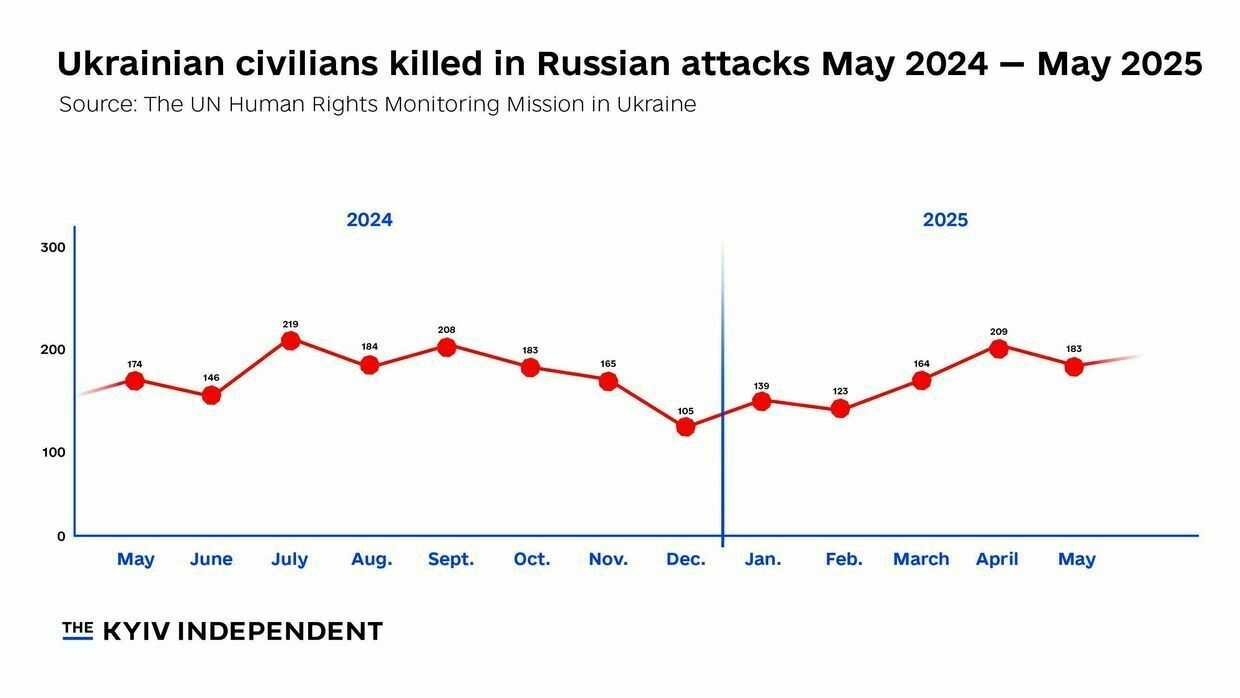
Ukrainian civilians killed in Russian attacks May 2024-May 2025. (Nizar al-Rifai/The Kyiv Independent) Russia's disregard for Trump's statements and threats long predates his two week deadline — data on Russian drone strikes clearly indicate that despite the U.S.-led peace process initiated after Trump took office, Moscow has launched larger drone attacks on civilians than it did during the presidency of Joe Biden.
This is despite Trump's multiple promises to end the war in 24 hours, which then turned into 100 days. Trump has now been in office for 144 days.
His search for a peace deal has seen a flurry of diplomatic meetings around the globe, severe and sustained pressure on Ukraine, and a reluctance to force any concessions from Russia.
During this time, Russia has continued to attack Ukraine on a daily basis. Ahead of the second round of direct peace talks held in Istanbul on June 2, Russia killed 9 civilians and injured 49 others.
"They [russians] are using all they can use — if they could use more, they would use more."
Kharkiv resident Mykola Zhydkov told the Kyiv Independent that he has noticed that particularly heavy bombardments often actually coincide with peace process-related events that the White House portrays as positive steps towards a potential ceasefire.
"On June 10, POWs were swapped. On the same night, Kharkiv suffered a major attack," Zhydkov said.
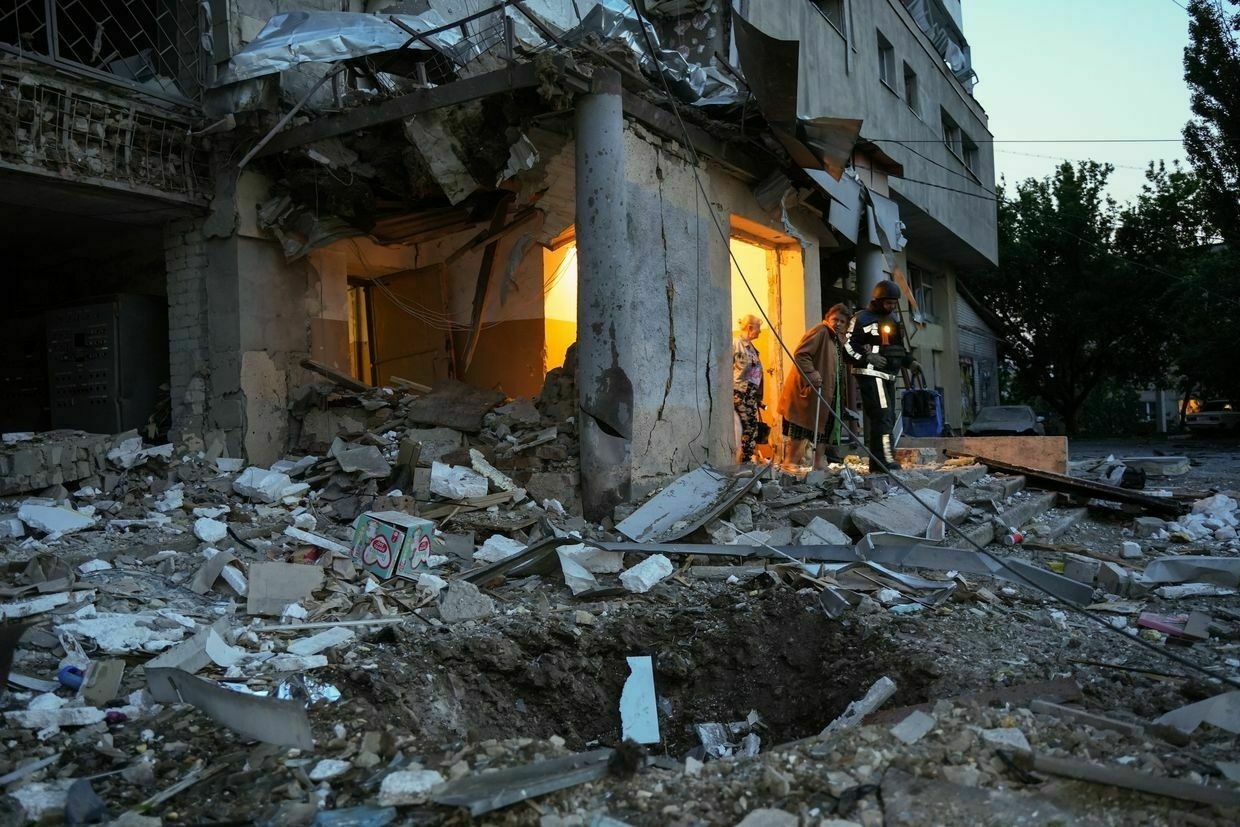
An elderly woman walks with the help of a rescuer amid rubble from a damaged residential building after a Russian drone attack in Kharkiv, Ukraine, on June 12, 2025. (Viacheslav Mavrychev / Suspilne Ukraine / Global Images Ukraine via Getty Images) With Trump so far failing to respond to Russia's escalating drone strikes, the Kremlin has little incentive to stop. All signs point to Moscow's defense industry only increasing its ability to launch ever-larger mass attacks.
According to Rozhkovskiy, the only limiting factor in how many drones Russian can launch in any given attack is how many its factories can produce.
"They are using all they can use — if they could use more, they would use more," he said.
The Russian production surge is being facilitated by imports of components from China and the recruitment of low-skilled labor from foreign countries, including from those in Africa.
Russia is also building new launch sites and will soon be able to deploy more than 500 long-range drones a night to attack Ukraine, a source in Ukraine's military intelligence (HUR) told the Kyiv Independent last week.
Israel-Iran war could provide economic boost Russia needs to continue fight against UkraineIsrael’s “preemptive” strikes against Iran targeting the country’s nuclear program and killing top military officials could have far-reaching implications for Ukraine and could boost Russia’s ability to continue its full-scale invasion, experts have told the Kyiv Independent. Iran has been one of Russia’s staunchest allies throughout the war, providing thousandsThe Kyiv IndependentChris York
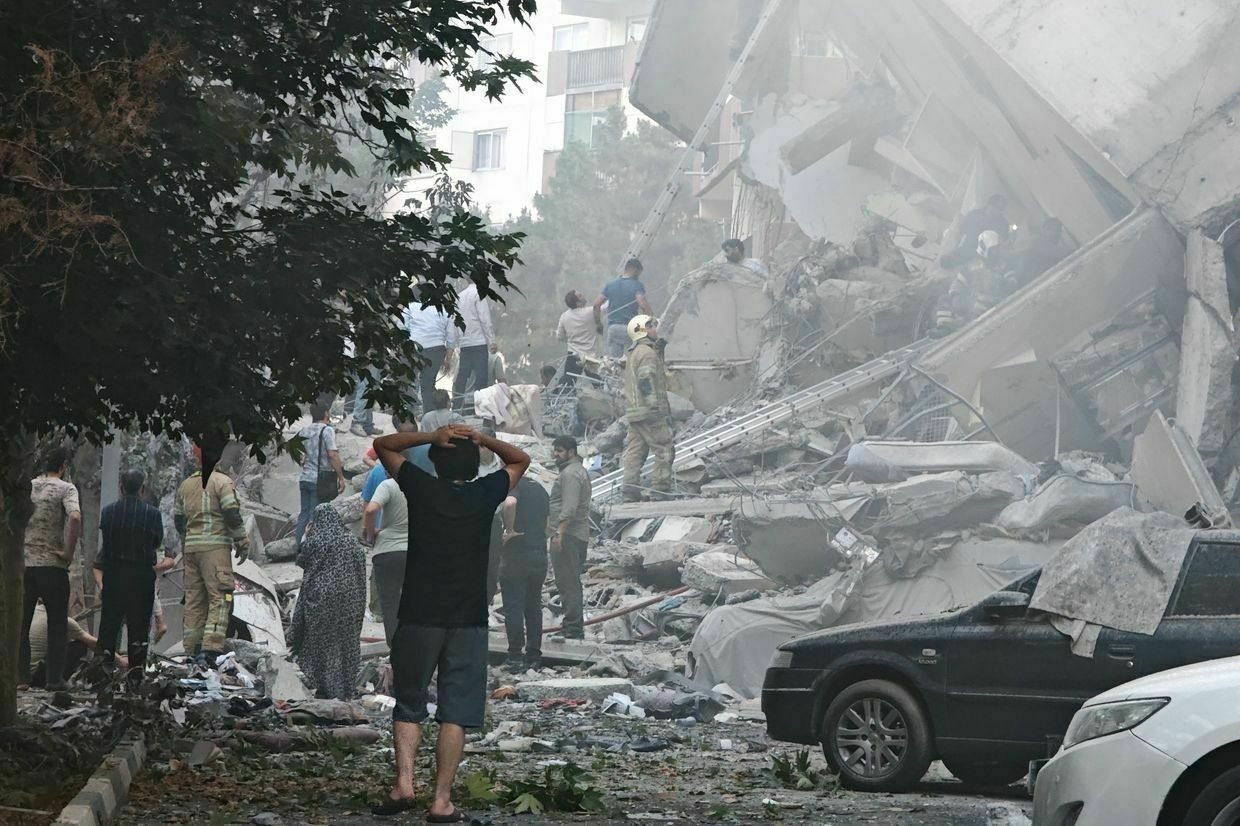
-
Ukraine repatriates bodies of 1,200 citizens in latest swap with Russia

Editor’s note: This is a developing story and is being updated.
Ukraine has recovered the bodies of 1,200 fallen citizens, including military personnel, in the latest round of repatriation efforts coordinated with Russia under agreements reached during talks in Istanbul, Ukrainian officials said on June 14.
The Coordination Headquarters for Prisoners of War said the bodies, which Russian authorities claim belong to Ukrainian nationals, were returned as part of an ongoing phased exchange process.
“The remains will now undergo forensic examination and identification procedures conducted by law enforcement investigators in cooperation with expert institutions under the Interior Ministry,” the Coordination Headquarters said in a statement.
Zelensky plans to meet Trump at G7 summit — key takeaways from closed-door briefing“Both teams are working to ensure we meet,” President Volodymyr Zelensky said.The Kyiv IndependentAnna Fratsyvir
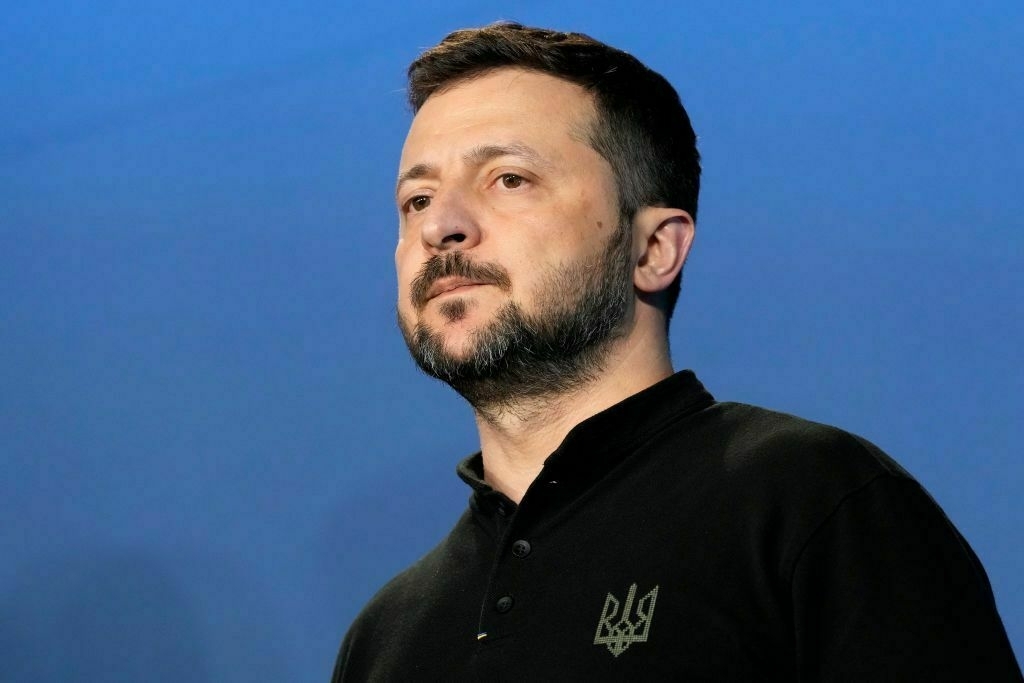
-
Zelensky plans to meet Trump at G7 summit — key takeaways from closed-door briefing
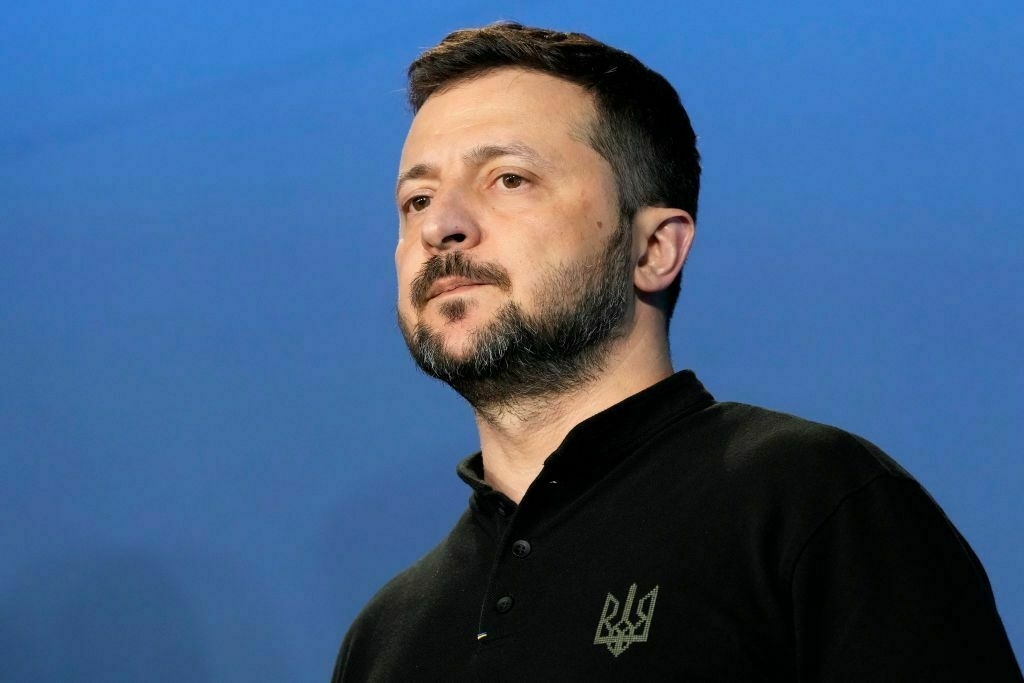
President Volodymyr Zelensky’s office has confirmed plans for a high-stakes meeting with U.S. President Donald Trump at the upcoming G7 summit on June 17, according to the Kyiv Independent journalist who attended a closed-door briefing with Zelensky on June 13.
“Both teams are working to ensure we meet,” Zelensky said.
The meeting would mark the third in-person encounter between the two leaders during Trump’s second term in the White House. Their most recent meeting took place on April 26 at St. Peter’s Basilica in the Vatican, where they spoke privately on the sidelines of Pope Francis' funeral. Both sides described the meeting as productive and constructive, though details remained sparse.
Earlier in February, Zelensky met Trump and Vice President JD Vance in the White House when the infamous tense Oval Office exchange erupted, with Trump criticizing Kyiv’s perceived lack of gratitude for U.S. support
Zelensky said his priority is to discuss with Trump sanctions against Russia, peace talks, weapons purchase, and U.S.-Ukraine economic cooperation.
“The United States communicates with the EU on sanctions at the level of senators and congressmen. But I want to raise this issue personally with President Trump,” Zelensky said.
“There are steps forward we can take — but we need the political will of the U.S. president, if he wants."
He added that Ukraine has long prepared a “strong” weapons package to purchase from Washington. “Only at the presidential level can we finalize it,” Zelensky said ahead of the G7 summit.
Russian offensives in Sumy, Dnipropetrovsk oblastsZelensky said that heavy fighting is ongoing along Ukraine’s northeastern border. Russian forces have concentrated around 53,000 troops in the Sumy sector, pushing into multiple settlements such as Andriivka, Kindrativka, and Oleksiivka.
According to the open-source monitoring group DeepState, Russian troops have been advancing along the border in Sumy Oblast, with the current front line lying just about 20 kilometers away from the regional capital of Sumy.
According to media reports, Russia exploited a thinning of Ukraine’s front-line forces, which were later replaced by newer, under-equipped formations.
Zelensky said that Russia only pushed seven kilometers deep into Sumy, adding that the Russian army “has been stopped there."
Zelensky added that Ukrainian forces had successfully struck Russian positions in the neighboring Russian Kursk Oblast, near Tyotkino, to stall Russian momentum and split their offensive groups.
In Dnipropetrovsk Oblast, Zelensky confirmed that small Russian reconnaissance groups had briefly crossed into Ukrainian territory — likely for propaganda purposes. One six-man unit was reportedly eliminated one kilometer from the administrative border.
“For them (Russia), it’s an important story, to take a photo, video,” Zelensky said. “That’s why they are launching small working groups to do just that."
Earlier, the Kremlin has claimed the operations in Dnipropetrovsk are part of an effort to create a so-called “buffer zone.” Ukrainian officials have rejected these claims as disinformation.
As Russian losses in Ukraine hit 1 million, Putin’s war economy heads toward breaking pointRussian losses in Ukraine hit a massive, and grim milestone on June 12 — 1 million Russian soldiers killed or wounded during the 39-month-long full-scale war, according to figures from Kyiv. Although hugely symbolic, the number is unlikely to prompt a change in tactics from Moscow as it gears up forThe Kyiv IndependentChris York

Israel-Iran war hits Ukraine’s defensesWhen speaking about the recent escalation between Israel and Iran in the Middle East, Zelensky said that the subsequent regional tension had driven up oil prices, enhancing Russia’s war financing through energy exports.
“This factor clearly doesn’t help us,” he said, adding that Ukraine will urge Washington to implement stricter price caps on Russian oil at the G7.
He further revealed that U.S. weapons previously allocated to Ukraine, including 20,000 air-defense interceptors used to counter Iranian-designed Shahed drones, were redirected to support Israel ahead of its recent strikes on Iran.
“That was a serious blow… We were counting on these missiles,” Zelensky said.
Zelensky warned that Ukraine must not become “a bargaining chip” in larger geopolitical negotiations involving the U.S., Russia, and the Middle East. Russia and Iran have deepened their cooperation since 2022, with Iran supplying weapons and technology to boost Moscow’s war machine.
“I was constantly afraid that we could become a bargaining chip, just one factor in the negotiations between the United States and the Russians. So, along with the situation with Iran, the situation with Ukraine was also a factor. They are really dependent on each other,” he said.
Join our communitySupport independent journalism in Ukraine. Join us in this fight.Support usEurope's indecisivenessZelensky voiced concerns about a slowdown in Western diplomatic momentum, particularly around the "coalition of the willing" initiative led by France and the UK.
Earlier, media reported that the "coalition of the willing," aimed at offering post-ceasefire security guarantees to Ukraine, has faced delays due to the absence of U.S. commitment.
"Europe hasn't yet decided what to do if America steps back," he said. "Their energy depended on U.S. resolve. Without it, things slow down."
Still, Zelensky made clear that Ukraine would not accept any ultimatums from Moscow amid the uncertainty of Western support. He described the latest Russian ceasefire proposals as capitulation.
"They pretend to be ready for talks, but all they offer is an ultimatum," Zelensky said. "We won't go along with that. Not now, not ever."
Zelesnky also expressed optimism that the European Union's 18th sanctions package would pass later this month and said he would personally push for closer U.S.-EU coordination at the G7.
Israel-Iran war could provide economic boost Russia needs to continue fight against UkraineIsrael’s “preemptive” strikes against Iran targeting the country’s nuclear program and killing top military officials could have far-reaching implications for Ukraine and could boost Russia’s ability to continue its full-scale invasion, experts have told the Kyiv Independent. Iran has been one of Russia’s staunchest allies throughout the war, providing thousandsThe Kyiv IndependentChris York
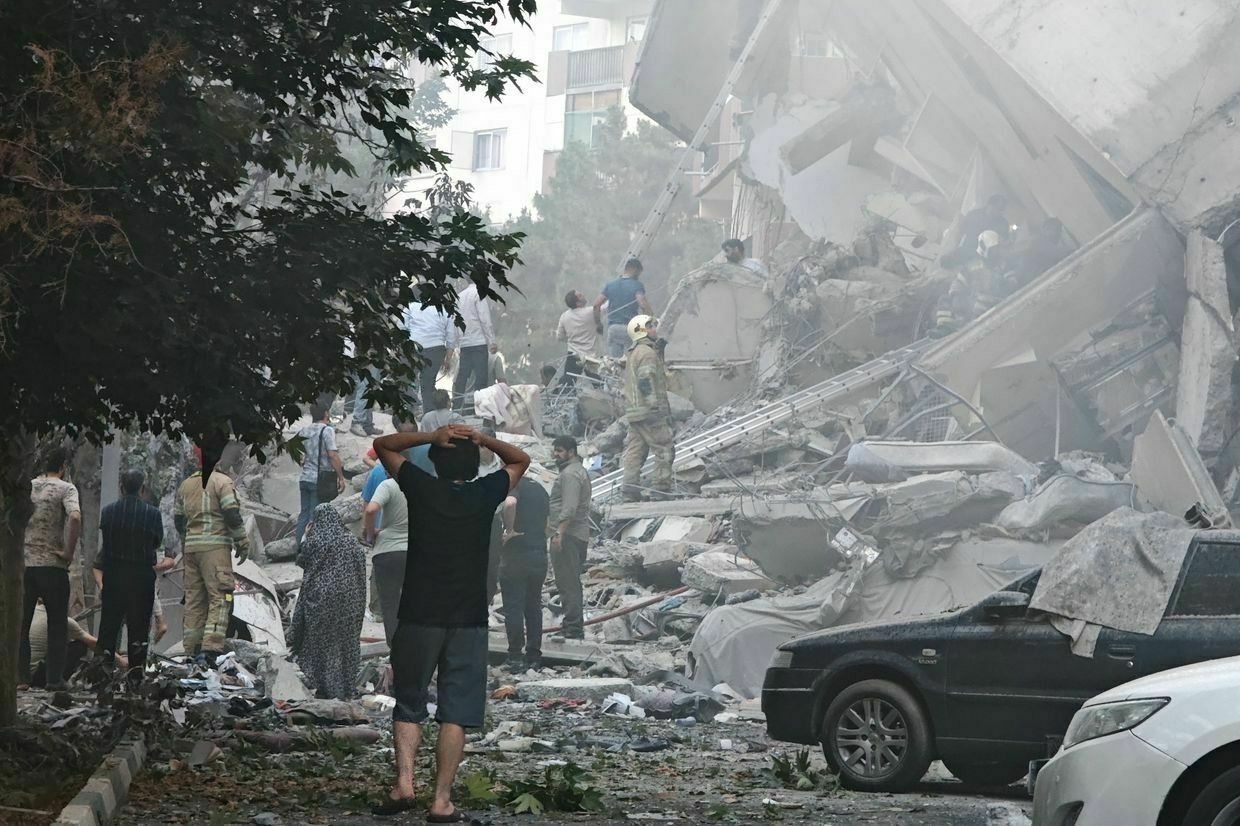
Prisoner exchanges and prospects for talksZelensky confirmed that prisoner exchanges with Russia are continuing and that another round of direct peace talks with Moscow may take place soon after.
"We expect that they (prisoner swaps) can be completed on the 20th or 21st (of June)," he said.
Over the week, Ukraine and Russia held a series of exchanges under an agreement reached during peace talks in Istanbul. Most recently, on June 12, Ukraine brought home another group of severely wounded and seriously ill service members.
The June 12 operation followed a similar swap two days earlier, both conducted without immediate disclosure of the number of released prisoners.
The June exchanges are part of a phased prisoner swap arrangement agreed during the second round of direct talks between Ukrainian and Russian delegations in Istanbul on June 2. While no political breakthroughs emerged from the discussions, both sides agreed to continue exchanging POWs and repatriating the remains of fallen soldiers.
-
Iran retaliates by launching 'hundreds' of missiles towards Israel, injuring at least 7
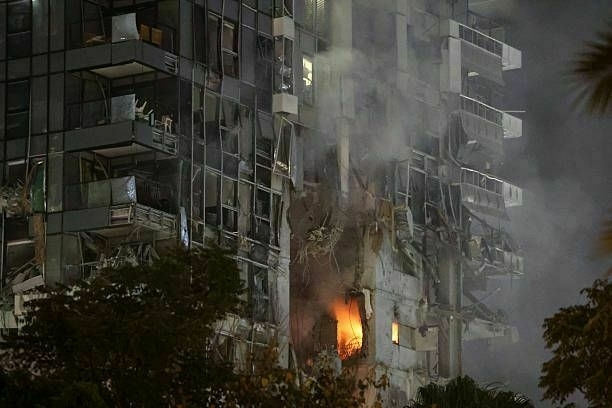
Editor’s note: This is a breaking story and is being updated.
Iran launched ‘hundreds’ of ballistic missiles towards Israel late on June 13, Iranian state media reported, as Tehran continues it retaliatory attacks in response to Israel’s strikes on Iran’s nuclear program.
At least seven people were injured near the city Tel Aviv as a result of the attack.
The drone attack follows heavy air strikes launched by Israel against Iran, targeting the country’s nuclear program and reportedly killing Hossein Salami, the commander-in-chief of the Islamic Revolutionary Guard Corps (IRGC), and other top officials.
Earlier in the day, Iran launched over 100 drones against Israel, all of which were intercepted outside of Israeli airspace, Ynet News reported on June 13, citing an Israeli military spokesperson.
U.S. President Donald Trump said earlier in the day that the U.S. military is on high alert and watching for any kind of retaliation, adding that the U.S. will respond to defend itself or Israel if Iran strikes back.
Before the attacks, Trump emphasized that despite tensions, he is committed to avoiding conflict and prefers a diplomatic solution to Iran’s nuclear aspirations. “I want to have an agreement with Iran,” Trump said, referring to ongoing Iran-U.S. nuclear talks in Oman.
Iran insists its nuclear program is for peaceful purposes and has expressed willingness to accept limited restrictions in exchange for the lifting of sanctions.
Beyond the Middle East, Iran has emerged as a key ally of Russia in its war against Ukraine, supplying Moscow with drones used in attacks on Ukrainian cities. Iran’s Islamic Revolutionary Guard Corps (IRGC) confirmed on June 13 that its aerospace commander, Amir Ali Hajizadeh, who led Iran’s Shahed drone supply to Russia, was killed in the strike on June 13.
Just hours after Russia launched its own missile and drone assault on Ukraine, Russian President Vladimir Putin decried the “numerous civilian casualties” in Iran and condemned Israel’s actions as violations of the UN Charter and international law.
Following the inital strikes by Israel, Kyiv expressed concern over the security situation in the Middle East after Israeli air strikes against Iran, but stressed that Tehran remains a “source of problems” in the region “and beyond."
Israel-Iran war could provide economic boost Russia needs to continue fight against UkraineIsrael’s “preemptive” strikes against Iran targeting the country’s nuclear program and killing top military officials could have far-reaching implications for Ukraine and could boost Russia’s ability to continue its full-scale invasion, experts have told the Kyiv Independent. Iran has been one of Russia’s staunchest allies throughout the war, providing thousandsThe Kyiv IndependentChris York
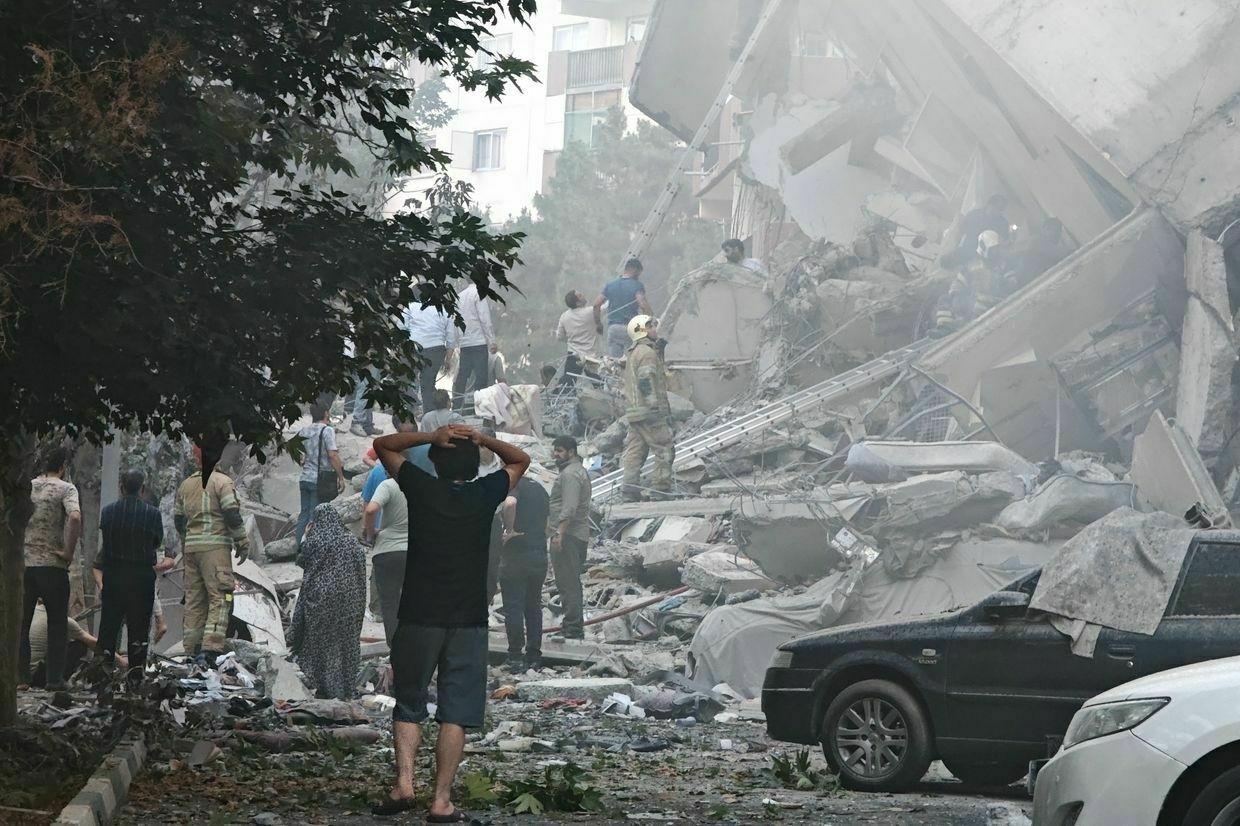
-
Ukraine war latest: Ukrainian MiG-29 strikes Russian drone hub, ammo depot in Zaporizhzhia direction, releases video
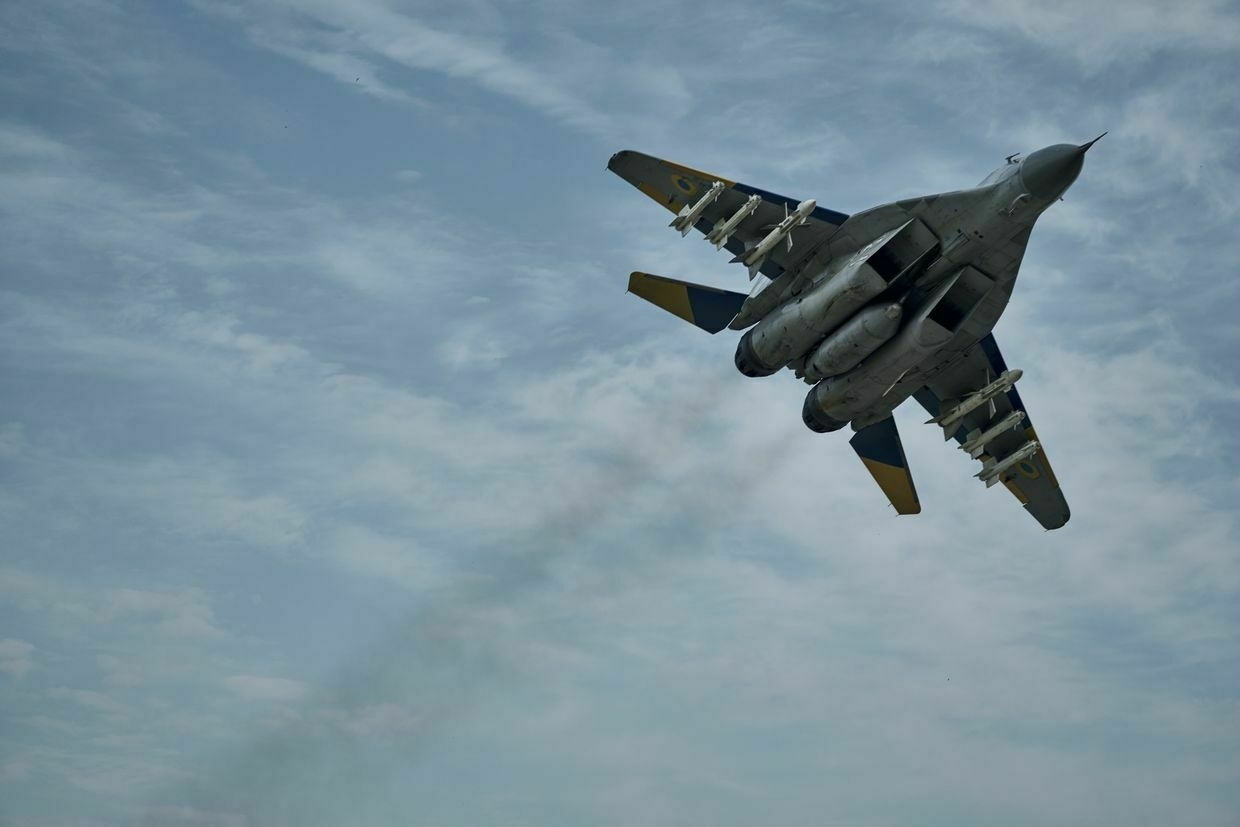
Key developments on June 13:
- Ukrainian MiG-29 strikes Russian drone hub, ammo depot in Zaporizhzhia direction, releases video
- Ukrainian military denies NYT claims about Russian presence in Dnipropetrovsk Oblast
- Russia preparing strategic reserves for conflicts beyond Ukraine, Ukraine warns
- Ukraine repatriates bodies of 1,200 citizens, soldiers under Istanbul deal with Russia
- Russian military equipment reportedly hit in Ukrainian drone attack against Crimea
A Ukrainian MiG-29 fighter jet carried out a precision strike on Russian positions in the Zaporizhzhia direction, targeting a command post for drone operators and a combined ammunition and fuel depot, Ukraine’s Air Force reported on June 13.
The Air Force did not disclose the exact location of the strike but thanked international partners for providing the guided munitions used in the attack.
“We thank our partners for their highly accurate and effective ‘arguments’,” the service wrote.
0:00/A Ukrainian MiG-29 fighter jet carried out a precision strike on Russian positions in the Zaporizhzhia area of southern Ukraine on June 13, 2025. (Ukraine’s Air Force / Telegram) The MiG-29, a Soviet-designed multirole fighter jet, remains a front-line platform in Ukraine’s air force and has been adapted to carry Western-supplied precision-guided weapons.
Zaporizhzhia Oblast, located in southeastern Ukraine, remains one of the war’s most contested areas. While the city of Zaporizhzhia is under Ukrainian control, southern parts of the region remain occupied by Russian forces.
Commander-in-Chief Oleksandr Syrskyi said on May 31 that Russia has intensified offensive operations across several key areas, including Zaporizhzhia, as part of a broader summer push.
Ukrainian forces have continued to conduct airstrikes and sabotage missions to degrade Russian supply lines and disrupt offensive preparations.
Israel-Iran war could provide economic boost Russia needs to continue fight against UkraineIsrael’s “preemptive” strikes against Iran targeting the country’s nuclear program and killing top military officials could have far-reaching implications for Ukraine and could boost Russia’s ability to continue its full-scale invasion, experts have told the Kyiv Independent. Iran has been one of Russia’s staunchest allies throughout the war, providing thousandsThe Kyiv IndependentChris York

Ukrainian military denies NYT claims about Russian presence in Dnipropetrovsk OblastThere is no confirmed information that Russian troops have entered Ukraine’s Dnipropetrovsk Oblast, spokesperson Victor Tregubov of the Khortytsia group of forces told Ukrainian media outlet Suspilne on June 13, refuting earlier claims published by the New York Times (NYT).
The NYT cited Ukrainian military sources claiming that Russian troops crossed the administrative boundary into Dnipropetrovsk Oblast for the first time since the war began.
The reporting also referenced a map by the Institute for the Study of War (ISW) indicating that Russian forces advancing in the region had allegedly secured a foothold.
Tregubov said the situation remains unchanged as of June 13. He indicated that no information suggests Russian forces have crossed the administrative border, but he noted that updated intelligence may be available later in the day.
Andrii Zadubiny, press officer of the Khortytsia forces, also rejected the claims.
“No enemy incursion into Dnipropetrovsk Oblast has been recorded. We refute this information,” he told Suspilne. He suggested that ISW might be relying on Russian sources.
On June 8, Russia’s Defense Ministry claimed that its forces had entered Dnipropetrovsk Oblast, a claim that has not been substantiated by Ukrainian authorities.
The Ukrainian monitoring group DeepState also reported no evidence of Russian forces entering the oblast. A map depicting Russian-occupied areas of Ukraine indicates that the Russian troops are only a couple of kilometers from the border.
To date, Dnipropetrovsk Oblast — a major industrial region in central Ukraine — has not seen confirmed Russian ground incursions, though it has remained under constant threat from missile and drone attacks.
In late April, Ukrainian authorities began mandatory evacuations of families with children from four front-line villages — Kolona Mezhova, Novopidhorodne, Raipole, and Sukhareva Balka — located just kilometers from Russian positions.
The latest developments come amid growing pressure on Ukrainian defenses across multiple fronts and continued failure of U.S.-mediated negotiations to produce a ceasefire agreement.
Why can’t the West match Russia’s ammunition production?Editor’s Note: This article has been updated to reflect new details of BAE Systems’ new chemical process that the company confirmed to the Kyiv Independent after initial publication. The West is failing to catch up to Russia’s production of the most basic unit of war for the past half-millennium — gunpowder.The Kyiv IndependentKollen Post
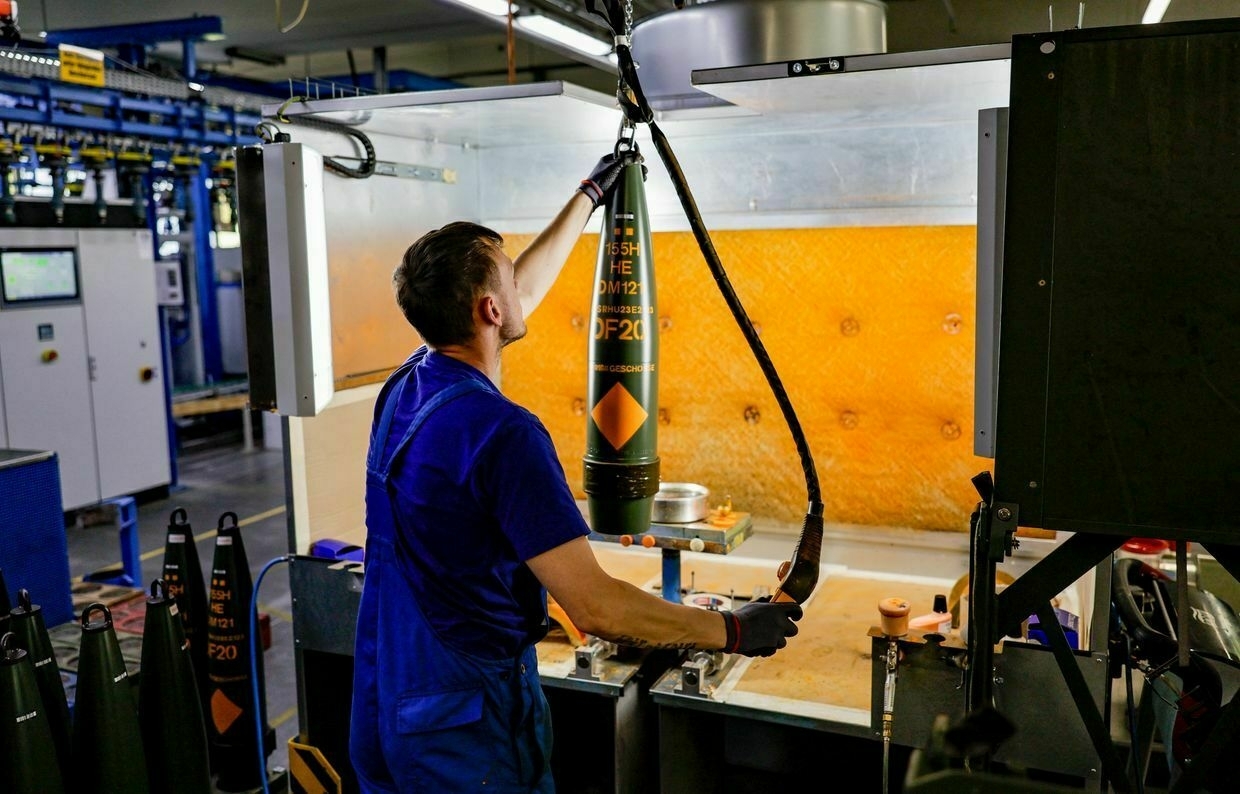
Russia preparing strategic reserves for conflicts beyond Ukraine, Ukraine warnsForeign Minister Andrii Sybiha warned on June 13 that Russia has begun preparing strategic military reserves, signaling plans for military operations that may extend beyond Ukraine.
“According to our intelligence, Russia has started to prepare strategic reserves, which indicates plans for combat operations not only in Ukraine,” Sybiha said during the Globsec conference in Prague, calling for urgent diplomatic and economic pressure.
“Allies need full diplomatic mobilization to stop this war. This is not just a question for Ukraine. (Russian President Vladimir) Putin only understands strength, and right now it’s crucial to apply sanctions in a timely manner, using them as economic weapons to pressure Russia,” Sybiha said.
The comments come as Russia intensifies its military offensives and missile strikes across Ukraine, despite participating in two recent rounds of peace talks in Istanbul. The first talks were held on May 16, followed by a second meeting on June 2. While both rounds produced agreements on prisoner exchanges, they failed to secure a ceasefire.
President Volodymyr Zelensky said in a June 12 interview with Germany’s Bild newspaper that Russia is using the talks to delay tougher U.S. sanctions, while continuing to escalate attacks on Ukrainian cities.
Russia also continues to issue nuclear threats to Western countries. Putin claimed on June 11 that Russia possesses the world’s most advanced nuclear systems, with 95% of its strategic nuclear forces reportedly made up of modern equipment.
Putin emphasized the need to significantly strengthen Russia’s ground forces. Russian defense spending has surged to 6.3% of GDP, the highest level since the Cold War, as Moscow continues to ramp up its military investment amid the ongoing war.
Iranian commander killed in Israeli airstrike oversaw Shahed drone supply to RussiaAmir Ali Hajizadeh was sanctioned by the European Union in 2022 for overseeing Tehran’s supply of Shahed-type drones to Russia.The Kyiv IndependentTim Zadorozhnyy
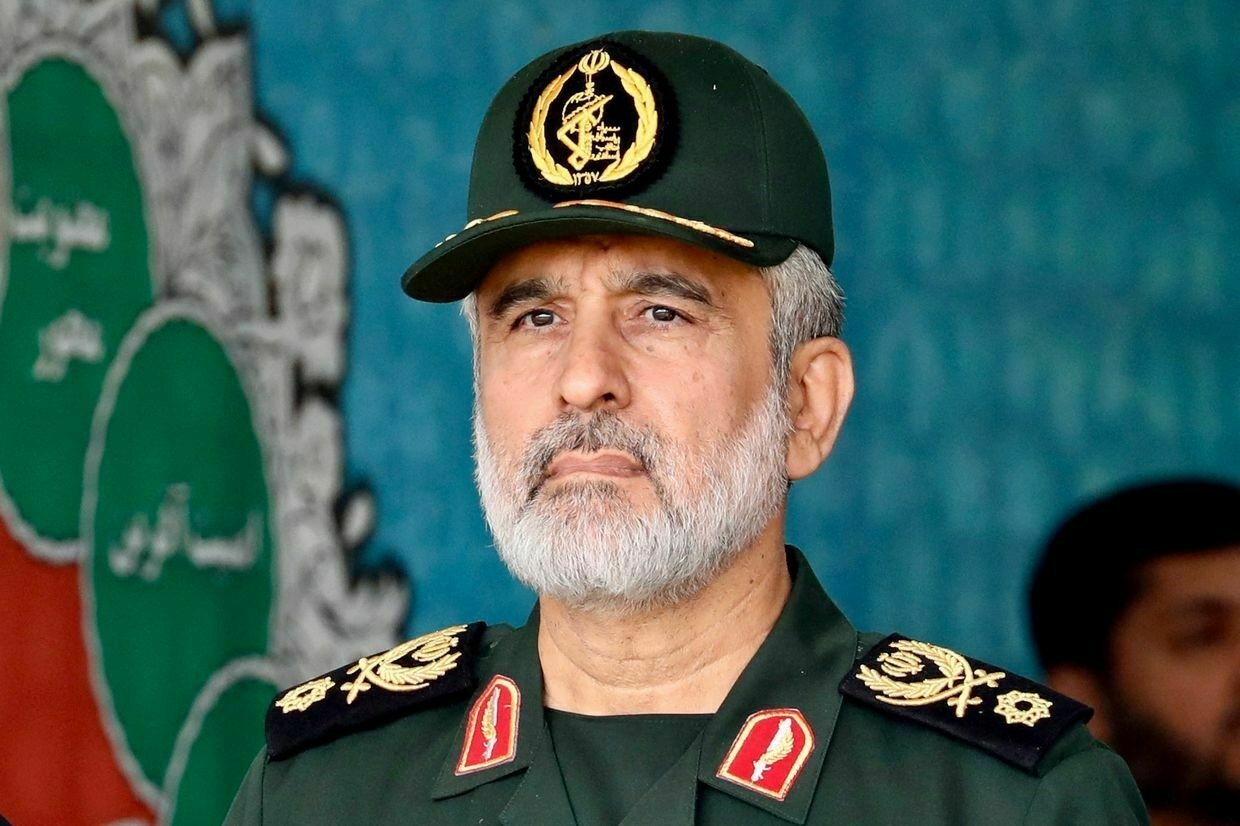
Ukraine repatriates bodies of 1,200 citizens, soldiers under Istanbul deal with RussiaUkraine has brought home the bodies of 1,200 Ukrainian soldiers and citizens as part of an agreement with Russia in Istanbul, the Coordination Headquarters for the Treatment of the Prisoners of War (POWs) announced on June 13.
The repatriation comes after Ukraine brought back the bodies of 1,212 fallen service members earlier this week, with Moscow voicing readiness to release the remains of some 6,000 Ukrainians total during recent peace talks in Istanbul.
The headquarters coordinated the operation with the Security Service of Ukraine (SBU), the Ombudsman’s Office, the military, the Interior Ministry, and other state and defense bodies. The International Committee of the Red Cross has also provided assistance.
It is not immediately clear whether Ukraine released the bodies of Russian soldiers in return. During the previous exchange on June 11, Moscow claimed it had repatriated the bodies of 27 Russian service members.
At the Istanbul meeting on June 2, Russian and Ukrainian delegations agreed on a new exchange of POWs but failed to reach a ceasefire agreement.
The talks led to the most extensive prisoner swap in late May, involving 1,000 captives on each side. The exchanges continued this week, focusing on severely ill and wounded soldiers.
Russia accused Ukraine on June 7 of failing to uphold a proposed prisoner exchange, a charge Kyiv denied. Russian media published footage showing refrigerated containers allegedly holding the bodies of Ukrainian soldiers, suggesting Kyiv had rejected their return.
POW Coordination Headquarters deputy head Andrii Yusov told Ukrainian Pravda that the footage had been filmed inside Russia and not at a designated exchange site.
Kyiv has repeatedly urged Moscow to adopt an “all-for-all” prisoner exchange formula. While over 5,000 Ukrainians have been returned from Russian captivity since March 2022, Russia continues to resist a comprehensive swap.
Amid Moscow’s war in Ukraine, Trump wonders why ‘everybody hates’ Russia“He (Russian President Vladimir Putin) fought with us in World War II… and now everybody hates Russia and loves Germany and Japan. It’s a strange world,” U.S. President Donald Trump said.The Kyiv IndependentAnna Fratsyvir
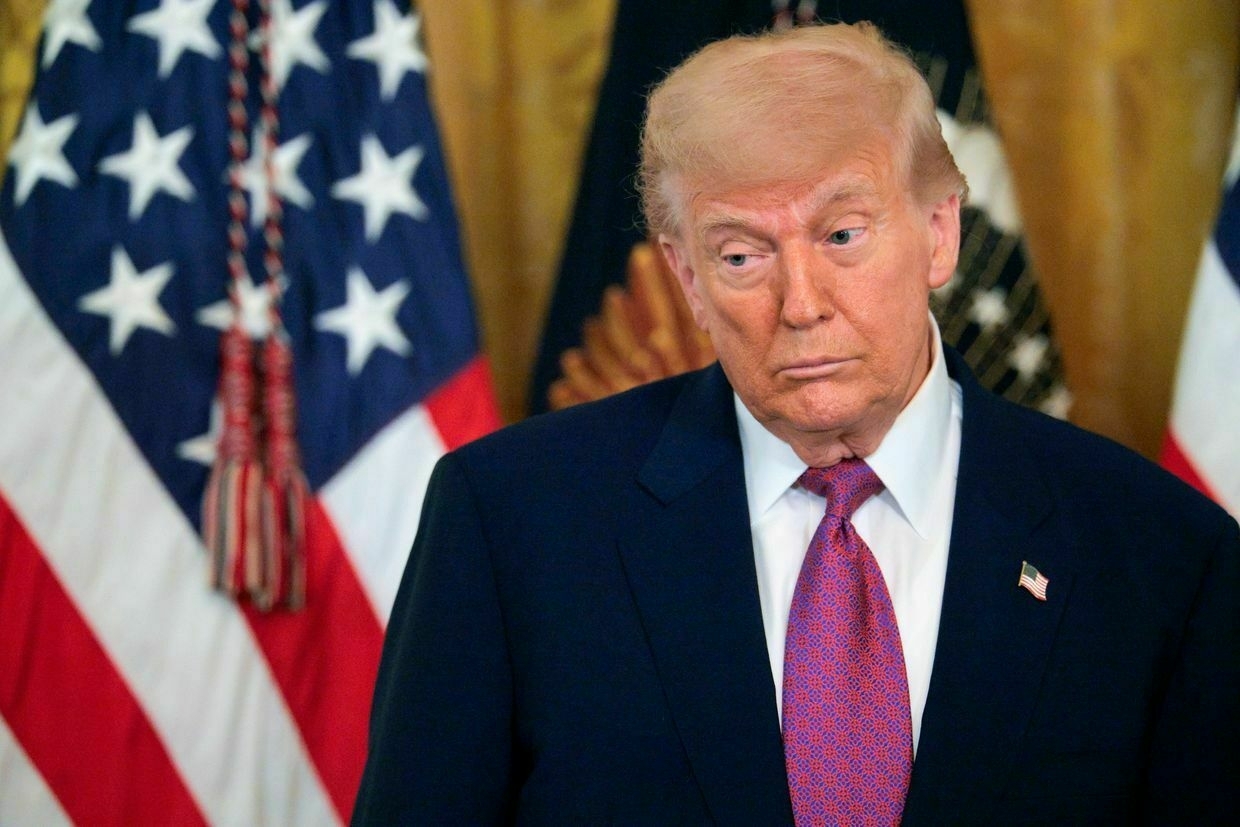
Russian military equipment reportedly hit in Ukrainian drone attack against CrimeaExplosions could be heard across Crimea early on June 13, including in Sevastopol and Simferopol, the Crimean Wind Telegram channel reported amid Russian claims of Ukrainian drone attacks.
Atesh partisans reported “precise hits” against Russian military facilities near Simferopol.
“Our agents report that due to the negligence of the (Russian) command, valuable equipment was damaged, probably an air defense missile system,” the group said on Telegram.
“There are also losses among the troops,” Atesh said, adding that the exact numbers are difficult to establish.
The pro-Ukrainian Crimean Wind Telegram channel reported a hit in Simferopol, Crimea’s capital, sharing a photo of a plume of smoke rising in the vicinity of a local power station and of the village of Perevalne. Blasts in Yevpatoriia, Saki, Fedosia, and elsewhere were also reported.
Russia’s Defense Ministry claimed its air defenses shot down 125 Ukrainian drones overnight on June 13, including 70 over Crimea and seven over the Black Sea. Russian officials did not comment on possible damage.
The Kyiv Independent could not verify the claims. Ukraine has not commented on the alleged attacks.
Russia has illegally occupied Crimea since 2014, transforming the peninsula into a heavily militarized stronghold to support its war against Ukraine.
Ukrainian forces have repeatedly targeted the peninsula with missiles and drones since the outbreak of the full-scale war in 2022. Most recently, Ukrainian drones attacked an ammunition depot used by Russia’s 126th Coastal Defense Brigade near the village of Perevalne.
Note from the author:
Ukraine War Latest is put together by the Kyiv Independent news desk team, who keep you informed 24 hours a day, seven days a week. If you value our work and want to ensure we have the resources to continue, join the Kyiv Independent community.
-
How an Israel-Iran war could help Russia's economy — and deprive Ukraine of weapons
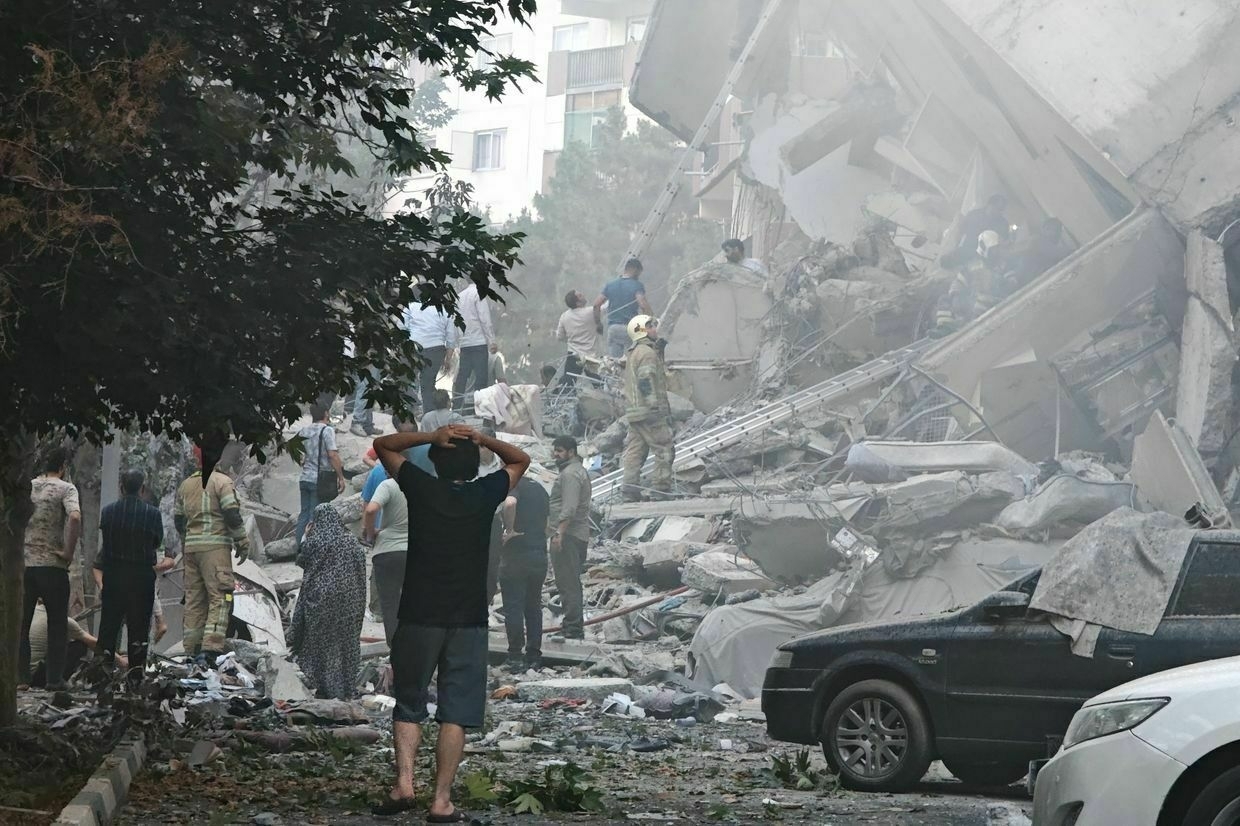
Israel’s “preemptive” strikes against Iran targeting the country’s nuclear program and killing top military officials could have far-reaching implications for Ukraine and could boost Russia’s ability to continue its full-scale invasion, experts have told the Kyiv Independent.
Iran has been one of Russia’s staunchest allies throughout the war, providing thousands of Shahed strike drones and short-range ballistic missiles.
Meanwhile, the U.S. has long been Israel’s strongest backer and any escalation of the conflict will likely cause further shifts in the White House’s geopolitical priorities.
“It will be more difficult for Ukraine to acquire weapons from the U.S. because Washington is expected to boost military aid to Israel,” Serhii Danylov, an expert at Ukraine’s Association of Middle East Studies, told the Kyiv Independent.
And this is just one of multiple factors that Israel’s attacks on Iran have already had, and which a wider war in the region would only likely exacerbate.
Oil prices and Russia’s economyIsrael’s attack on Iran could be a godsend for Russia’s ailing oil sector, which fell last month to its lowest price in over two years.
In anticipation of Iran’s retaliation, Brent crude prices, the global benchmark, jumped from $69.36 to $74.5 to $75 per barrel — levels not seen since February — with some oil forecasters warning prices could skyrocket to $80 per barrel.
It’s a jolt that’s shocked the oil sector, which has seen declining prices, particularly after Saudi Arabia spearheaded a production hike and U.S. President Donald Trump’s “Liberation Day” tariffs sparked fears of an economic slowdown.
For Russia, this could be the adrenaline shot needed to recover its anemic Ural crude prices, which have dropped 14% year-on-year from January to May, David Fyfe, chief economist at Argus Media, a market analyst group, told the Kyiv Independent.
Russia’s energy sector made up 35-40% of its budget revenues pre-full-scale invasion and is powering its war machine.
Western sanctions on Russian energy and the G7’s Russian oil price cap of $60 per barrel have hampered its profits, with Russia losing more than $150 billion over the last three years, but have yet to deal a crippling blow.
Until the Israeli attacks, the future wasn’t looking so bright for Russian crude. Europe is planning its 18th sanctions package hitting Russia’s energy sector, and the G7 is pushing for a $45 price cap.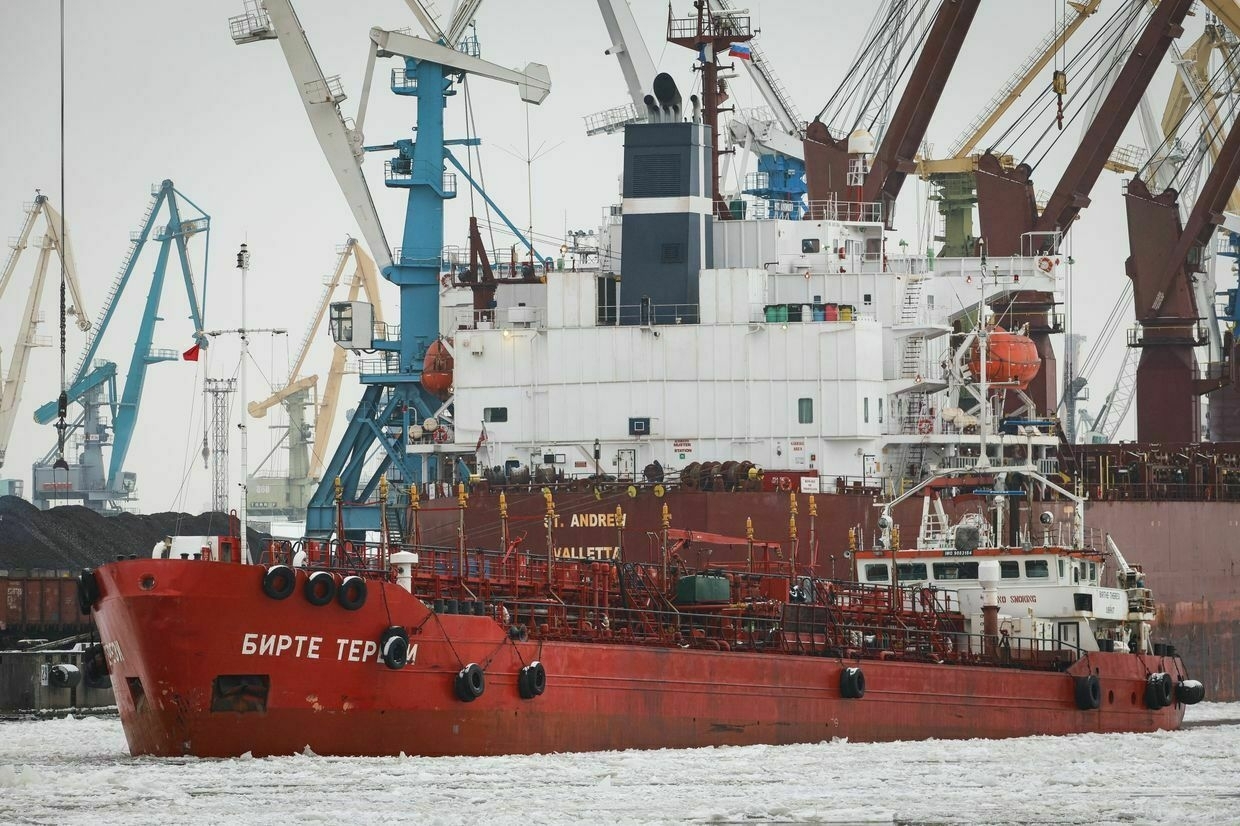
The oil and chemical tanker Birthe Theresi sails along the Sea Canal of the Big Port in St. Petersburg, Russia, on Feb. 12, 2025. (Artem Priakhin/SOPA Images/LightRocket via Getty Images) If Brent prices continue to rise, it will likely drag up Ural prices too, potentially funneling more money into Moscow’s coffers, said Fyfe.
Ural crude, which is of a similar quality to the potentially at-risk Middle East crude, is an attractive replacement over Brent Crude.
“It’s also possible that the threat posed (however hypothetically) to Middle East oil supplies forces G7 nations to pause their current attempts to lower the price cap for Russian crude exports from $60 to $45,” said Fyfe.
“Shelving that proposal would also be welcomed by the regime in Moscow."
This is not the first time oil prices have risen due to tensions in the region. Iran’s missile attacks on Israel on Oct. 1 caused oil prices to spike by nearly $10 a barrel as forecasters braced for Israel’s retaliation. Experts predicted that a wider conflict in the region would be a gold rush for Moscow.“It is an open question if Russia is capable of a greater military effort than the one it is already making against Ukraine.”
The situation now is closer to the edge than in October. Back then, Israel said it wouldn’t target Iran’s nuclear and oil facilities. But this time, Israel said it hit the “heart” of Iran’s nuclear program.
According to Fyfe, the main concern that would affect oil prices even more significantly would be Iran blocking the Strait of Hormuz, which could block one-fifth of global oil demand.This would also mean Iran blocks its own oil exports too, so it would only be a last resort from Tehran, said Fyfe. Even so, just the fear of this hypothetical has been enough to drive up energy prices.
Diplomatic shiftsAn Israeli-Iranian war is likely to shift attention from Ukraine to the Middle East — similarly to the Gaza war, which started after Hamas militants attacked Israel in October 2023.
"I suspect the main impact on Russia and Ukraine will be the removal of the international media's spotlight and its refocusing on the Middle East, and the same with the attention of the Trump administration," Jenny Mathers, a lecturer in international politics at the U.K.'s Aberystwyth University, told the Kyiv Independent.
"Any pressure on Russia for a ceasefire or a peace agreement will drop away."
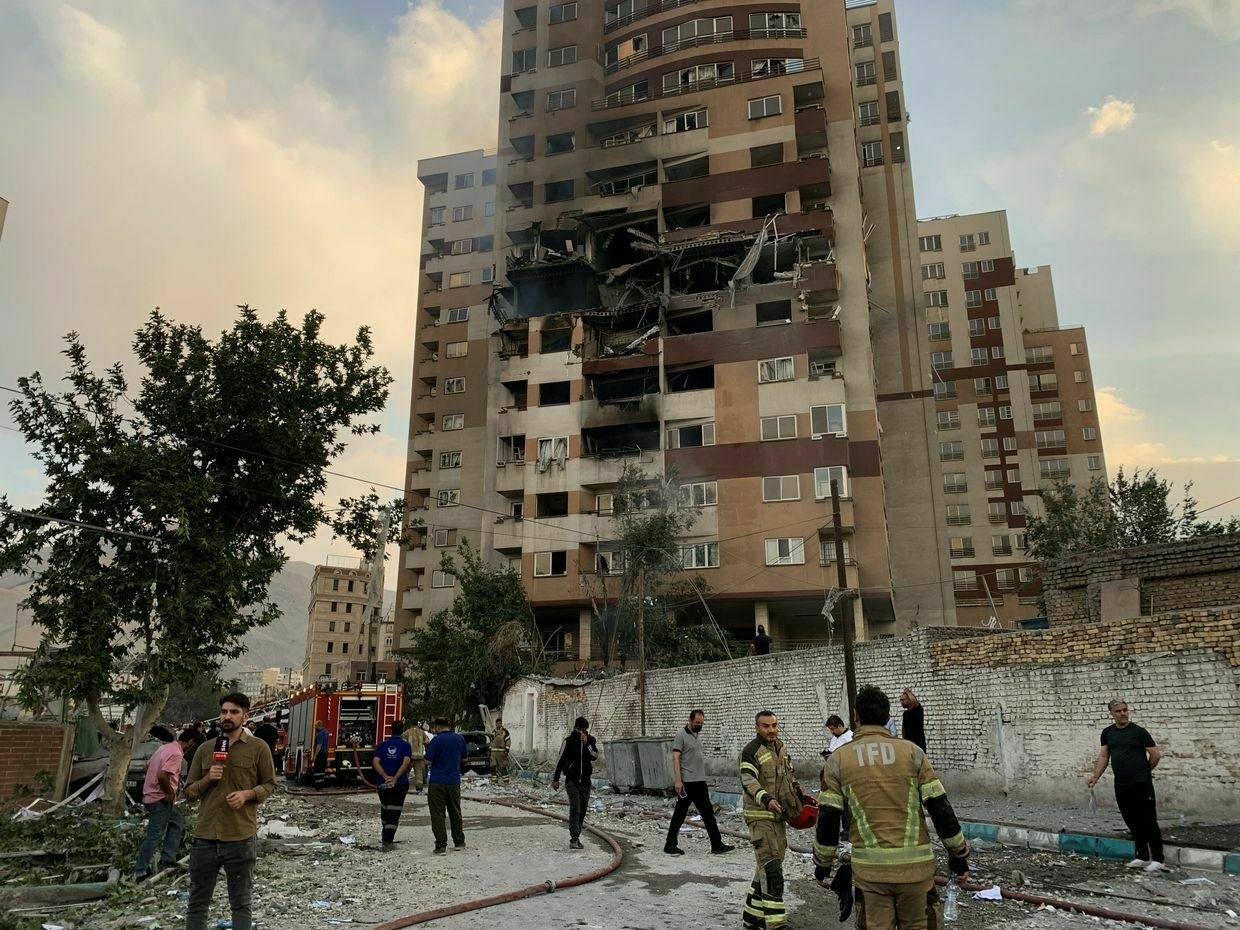
A damaged building in Tehran, Iran, after an Israeli strike on June 13, 2025. (Fatemeh Bahrami/Anadolu via Getty Images) Russia may see this as an opportunity to redouble its offensive, according to James Shea, a defense and security expert at Chatham House.
"But it is an open question if Russia is capable of a greater military effort than the one it is already making against Ukraine," he said.
Support for IranRussia has historically supported Iran and its regional allies, such as Lebanon's Hezbollah Islamist group and Syrian ex-President Bashar al-Assad's regime, which was toppled in 2024. In exchange, Iran has supplied its Shahed kamikaze drones to Russia.
Russia's Foreign Ministry condemned the Israeli attacks on June 13, saying that they "threatened stability and security" in the Middle East.
The Kremlin will likely back Iran in its war with Israel politically and diplomatically and through intelligence sharing, according to Danylov.
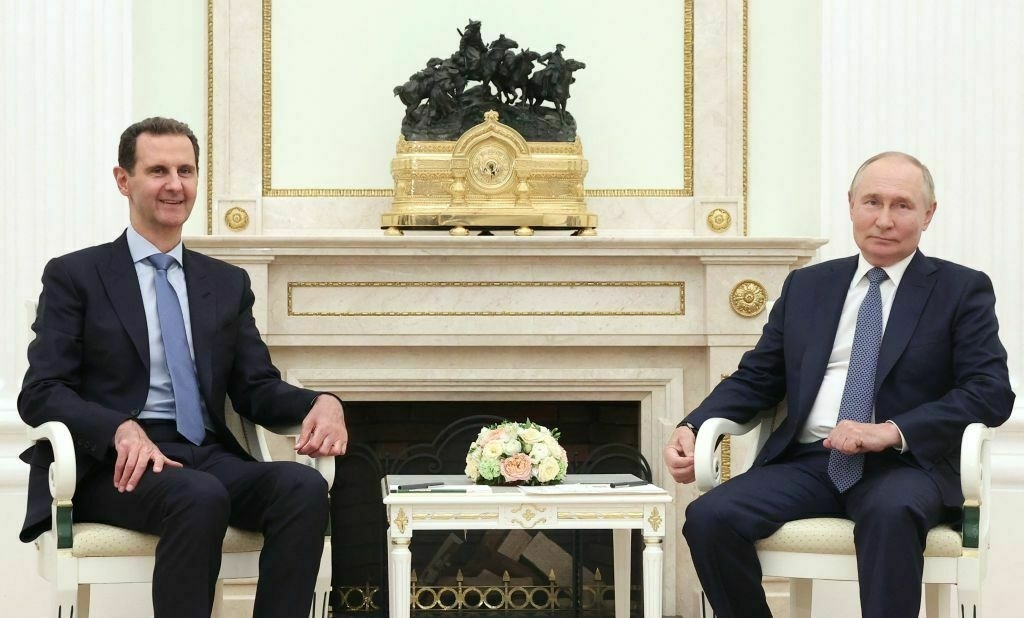
Russia’s President Vladimir Putin meets with Syria’s then-President Bashar al-Assad at the Kremlin in Moscow on July 24, 2024. (Valery Sharifulib/POOL/AFP via Getty Images) But Russia has previously opposed Iran's nuclear program, and it might also be afraid of backing Tehran because it would lead to a confrontation with the U.S., Michael Sahlin, a Middle East specialist at the Stockholm International Peace Research Institute, told the Kyiv Independent.
The Kremlin might also try to present itself as a mediator between Israel and Iran, analysts say.
"Putin is well placed to play the magnanimous peacemaker role alongside Trump and try to arrange a ceasefire and de-escalation," Shea said.
"He will use this to score points with Trump as a reliable partner and use this to persuade Trump to go easy on him in Ukraine and not to impose new sanctions on Moscow."
Trump's peace effortsThe escalation of the war also highlights the failure of Trump's efforts to negotiate peace deals in both the Middle East and Ukraine.
Trump's team has been unsuccessfully trying to broker peace between Israel and Hamas, an Iranian ally in the Gaza Strip, as well as an agreement on ending Tehran's nuclear arms program.
Despite Trump's promise "to stop all wars," those in both Ukraine and the Middle East are now escalating.
As Russian losses in Ukraine hit 1 million, Putin’s war economy heads toward breaking pointRussian losses in Ukraine hit a massive, and grim milestone on June 12 — 1 million Russian soldiers killed or wounded during the 39-month-long full-scale war, according to figures from Kyiv. Although hugely symbolic, the number is unlikely to prompt a change in tactics from Moscow as it gears up forThe Kyiv IndependentChris York
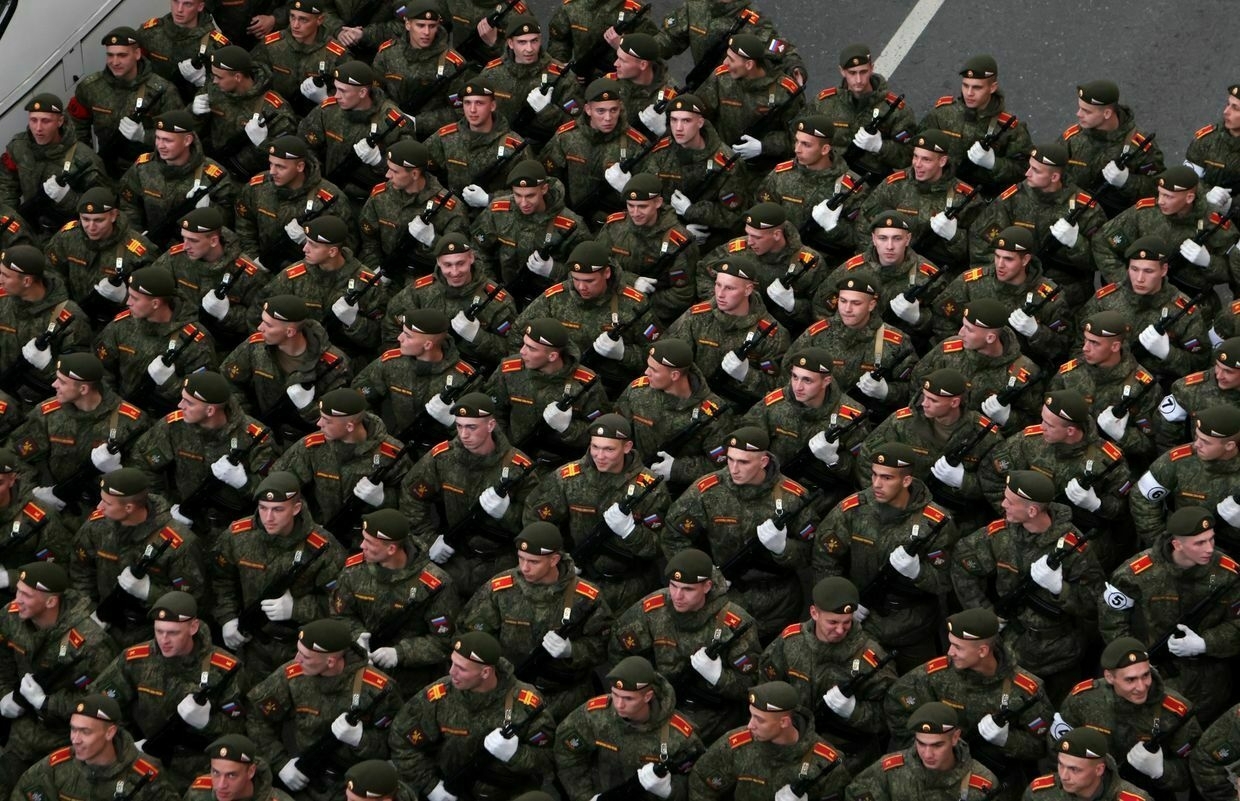
The military implicationsIran has been one of Russia's key allies during the course of the full-scale invasion, second only to that of North Korea.
Russia's default weapon for its near-nightly barrages of Ukrainian cities are variations of the Iranian-designed Shahed drone, imported versions of which first appeared in Ukraine's skies in October 2022.
Since then, attacks have only escalated and recent mass strikes have seen nearly 500 Shahed-type drones launched per night.
Shea told the Kyiv Independent that events in Iran are unlikely to have an effect on Russia's ability to launch mass drone strikes.
"Russia has set up factories on its own territory to produce Iranian Shahed drones under license," he said.
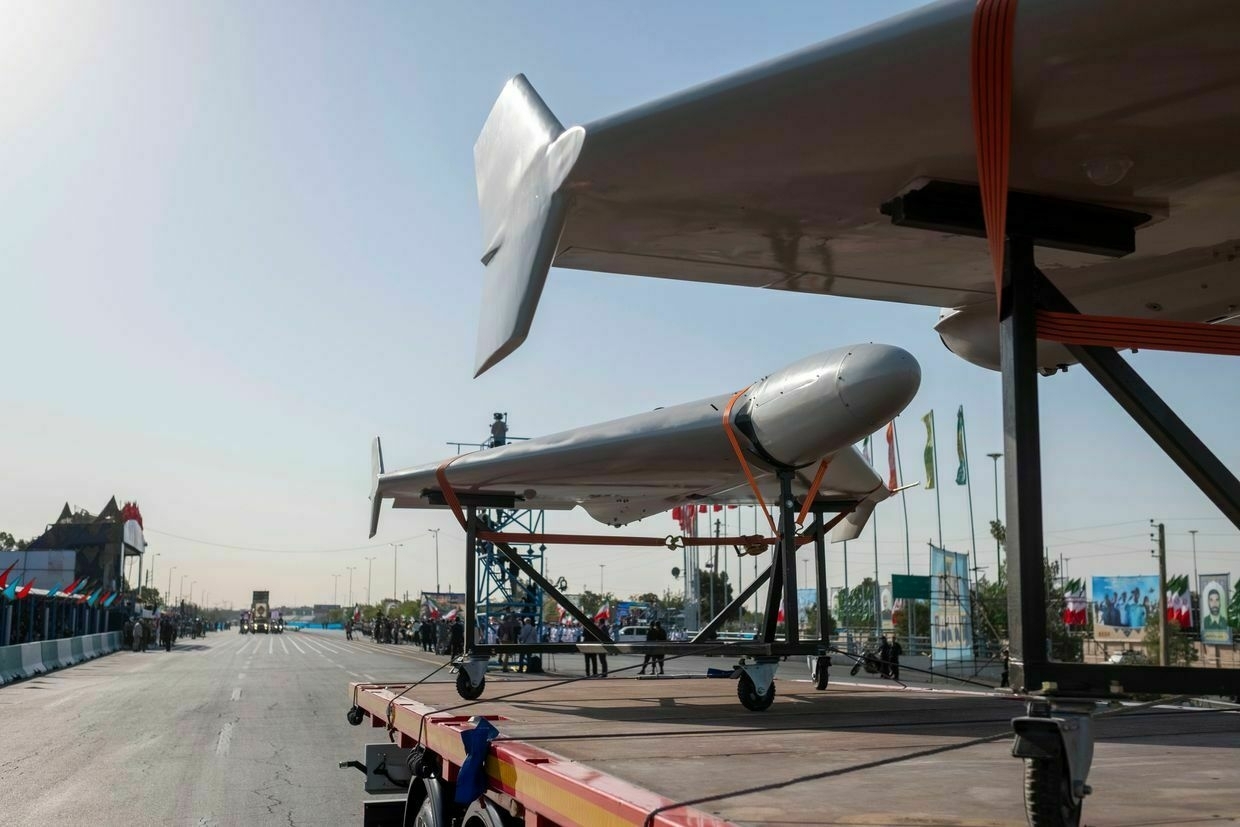
Shahed-136s, an Iranian-made unmanned aerial vehicle (UAV), in the south of Tehran, Iran, on Sept. 21, 2024. (Morteza Nikoubazl/NurPhoto via Getty Images) "It also gets drones from China which it converts to military use and has rapidly developed its domestic drone manufacturing since its full-scale invasion of Ukraine."
Samuel Bendett, a senior fellow at the Center for a New American Security, said most if not all Shahed-type drones used by Russia are now domestically produced, "so the Israeli attack on Iran is not going to disrupt whatever flows used to exist."
But Shea does point out that Russia may have difficulty obtaining newer versions of the Shahed that it doesn't yet mass produce domestically, such as the Shahed 238 (Geran 3) which is a turbojet powered model that can fly much faster than previous versions.
A more unknown quantity are the Iranian ballistic missiles reportedly delivered to Russia late last year.
Despite multiple Western governments confirming deliveries, and the U.S., U.K., France, and Germany placing further sanctions on Iran as a result, to date there have been no reports of their use against Ukraine, Danylov said.
But while Russia's offensive capabilities may remain largely unchanged by Israel's attack on Iran, Ukraine's defensive capabilities — much of which has been supplied by the U.S. — could suffer as a result.
"The U.S. may need to provide greater assistance to Israel in the aftermath for one reason or another, which could ultimately hurt Ukraine," Fabian Hoffmann, a defense expert and doctoral research fellow at the University of Oslo, told the Kyiv Independent.
Why can’t the West match Russia’s ammunition production?Editor’s Note: This article has been updated to reflect new details of BAE Systems’ new chemical process that the company confirmed to the Kyiv Independent after initial publication. The West is failing to catch up to Russia’s production of the most basic unit of war for the past half-millennium — gunpowder.The Kyiv IndependentKollen Post
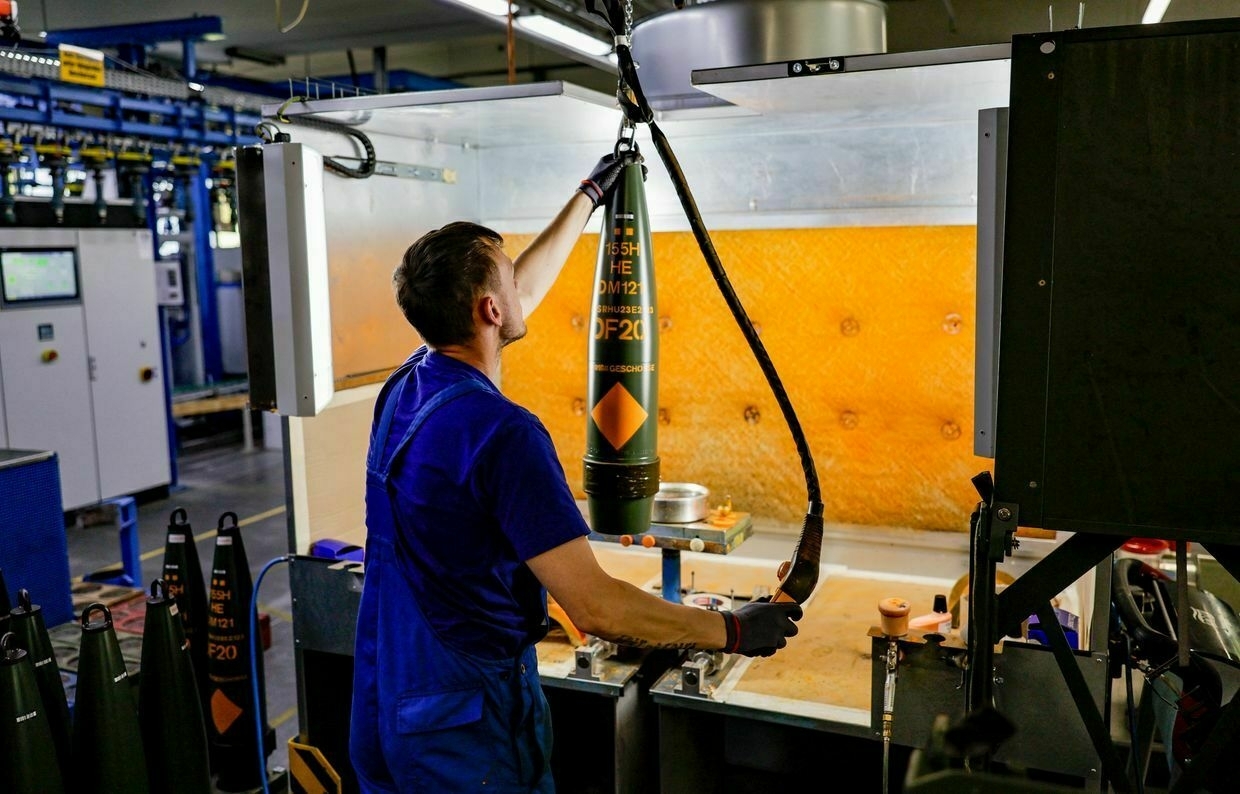
-
Ukrainian Foreign Minister sees Trump as key player in achieving peace
Ukrainian Foreign Minister Andriy Sybiha expressed hope that U.S. President Donald Trump could bring an end to the full-scale war in Ukraine. Speaking at the GLOBSEC-2025 forum on Friday, June 13, Sybiha highlighted the critical role of the U.S. leader in achieving a lasting and comprehensive peace.
Sybiha dreams of a future where Ukraine will no longer be a subject of discussion at forums worldwide, indicating long-term peace has been achieved.
"We, therefore, welcome President Trump's efforts... We want to end the war this year, and we truly have a chance to accelerate our peace efforts," remarked Sybiha. He affirmed the importance of the U.S. leader in reaching a peace agreement.
The foreign minister pointed out that next week will mark 100 days since Ukraine agreed to a complete unconditional ceasefire, an initiative spearheaded by the U.S. Yet, he emphasized that Western pressure on Russia is crucial for achieving this goal.
"After that, we will have a chance to expedite our peace initiatives and begin talks on a broader peace deal or agreements," Sybiha added.
President Trump previously expressed his dissatisfaction with both Russia and Ukraine's inability to reach a peace agreement.
In contrast, Ukrainian President Volodymyr Zelensky has suggested that the U.S. does not currently appear to be a strong mediator in the peace process.
-
Europe must prepare for US scaling down support for Ukraine, Pistorius says
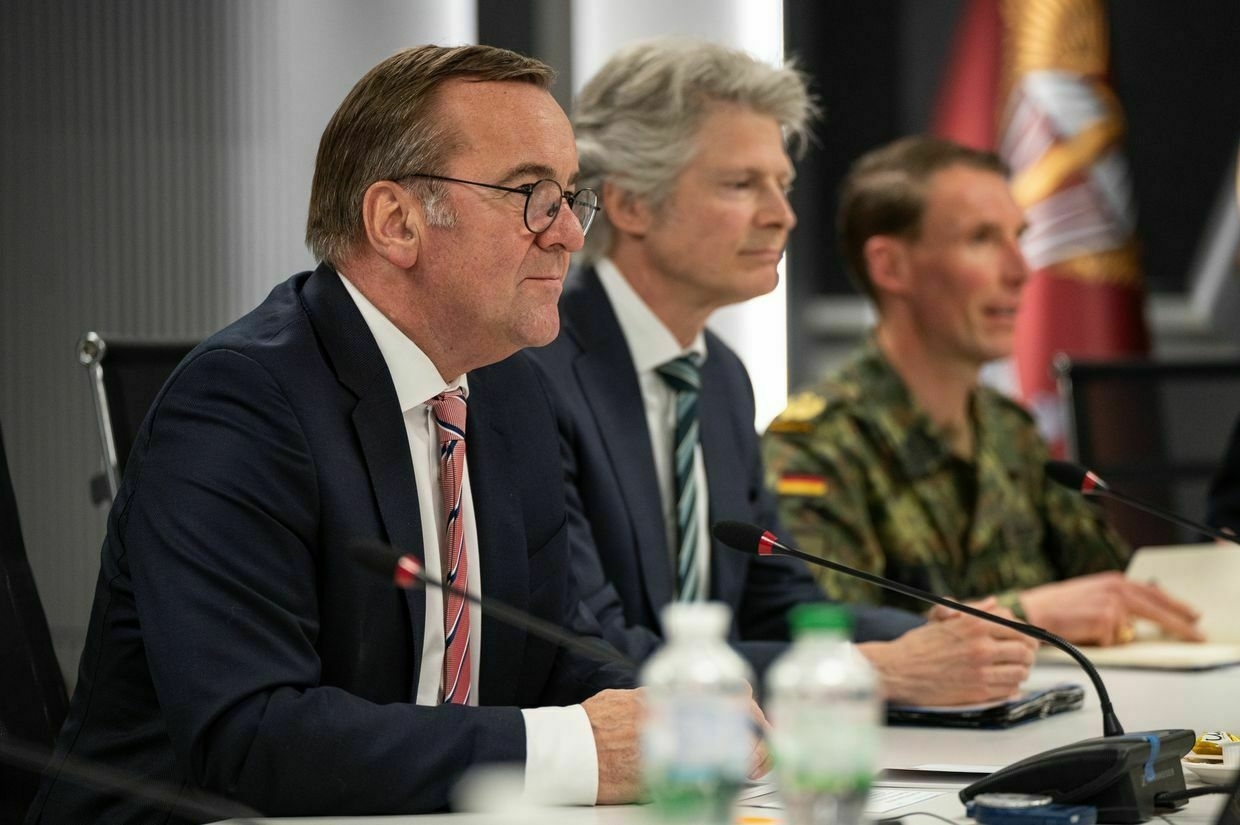
German Defense Minister Boris Pistorius said Europe must begin preparing for a gradual reduction in U.S. military support for both the continent and Ukraine, Tagesschau reported on June 13.
“Yes, that’s right. That would be so, and we have to deal with that,” Pistorius told journalists in response to a question about the U.S. potentially scaling down its support. He noted that the discussions focus on a reduction in U.S. backing rather than a full halt.
The comments come after U.S. Defense Secretary Pete Hegseth announced that Washington would reduce the assistance allocated to Ukraine in the next year’s federal budget.
“We now have to look at how much support drops and whether Europeans can compensate for it,” Pistorius added.
While the U.S. has been Ukraine’s leading military backer under former President Joe Biden, the Trump administration has yet to approve any aid packages and has become increasingly disengaged from peace talks.
Pistorius’s comments come amid increasing uncertainty in transatlantic relations. U.S. Ambassador to NATO Matthew Whitaker confirmed on May 16 that the United States plans to begin discussions with European allies later this year about reducing its military presence on the continent.
Speaking at a security conference in Estonia, Whitaker said the talks would begin after the NATO summit in The Hague in June.
“Nothing has been determined,” Whitaker said, according to Reuters. “But as soon as we do, we are going to have these conversations in the structure of NATO."
Whitaker emphasized that any drawdown would be closely coordinated to avoid creating security gaps. Still, he reiterated U.S. President Donald Trump’s position that long-standing U.S. efforts to reduce its European military footprint must now be implemented.
“This is going to be orderly, but we are not going to have any more patience for foot-dragging in this situation,” he said.
In February, Hegseth reportedly told NATO allies that “stark strategic realities” prevent the United States from being primarily focused on Europe’s security. Leaks reported by the Atlantic in March revealed that both Hegseth and Vice President JD Vance privately criticized European defense spending, with Hegseth allegedly expressing his “loathing of European free-loading."
Trump called on NATO member states to increase defense spending up to 5% of GDP. Ahead of the upcoming NATO summit in The Hague on June 24–25, U.S. Secretary of State Marco Rubio said that member states will have agreed to a new goal of increasing defense spending.
“We are headed for a summit in six weeks in which virtually every member of NATO will be at or above 2%, but more importantly, many of them will be over 4%, and all will have agreed on a goal of reaching 5% over the next decade,” Rubio told Fox News on May 15.
Such a move would mark a historic shift, with NATO partners collectively accounting for more than half of the alliance’s military capacity, according to Rubio.
Since the beginning of Russia’s full-scale war against Ukraine in 2022, NATO members have significantly increased their defense spending, with countries like Poland and the Baltic nations aiming to reach the 5% target in the coming years.
Ukraine bracing for ‘painful’ reduction in US military aid after Hegseth announces cutsEditor’s note: For security reasons, the real names of the soldiers mentioned in this story have not been used. A reduction in U.S. military aid to Ukraine would be “painful” and could have potentially “dire consequences” for the global order, Ukrainian lawmakers and soldiers have told the Kyiv Independent.The Kyiv IndependentKateryna Hodunova
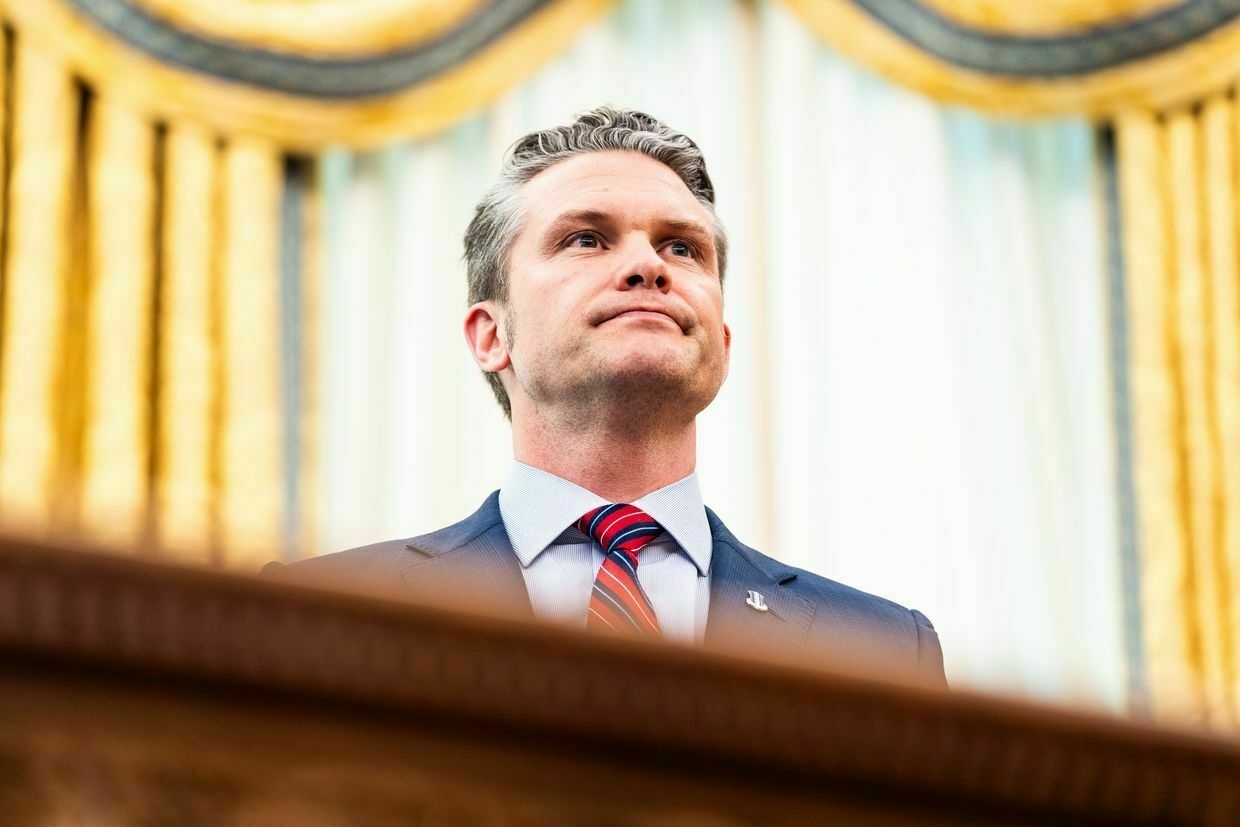
-
'At a critical time' — Zelensky appoints new head of Ukraine's mission to NATO
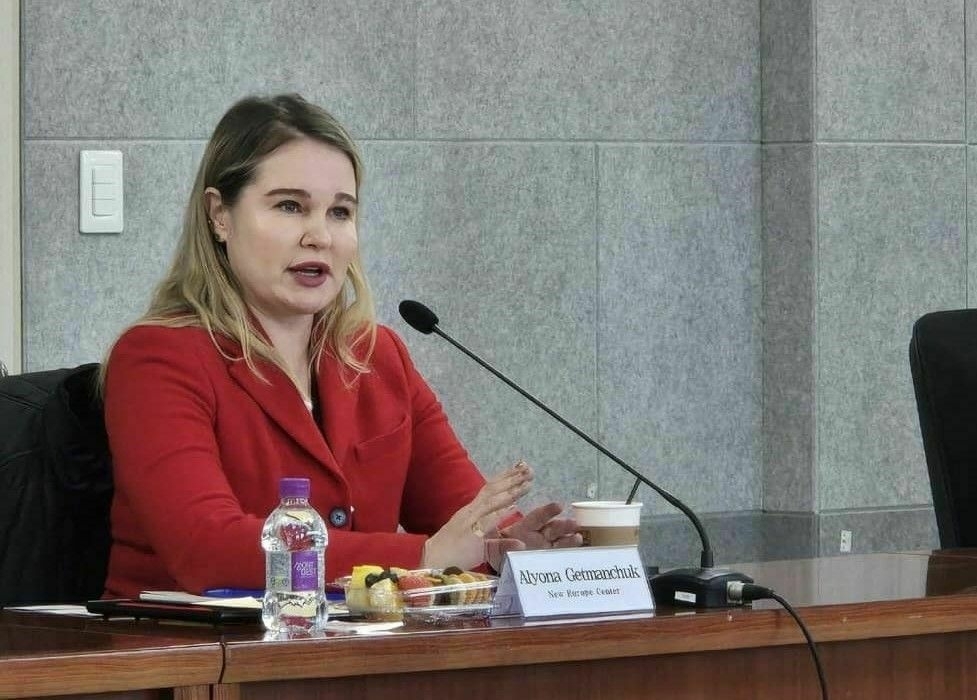
President Volodymyr Zelensky on June 13 appointed Aliona Hetmanchuk as the head of Ukraine’s mission to NATO, replacing Nataliia Halibarenko.
The appointment came “at a critical time for the future of Ukraine, for the future of NATO itself, and, of course, for Ukraine’s future in NATO. I realize the responsibility,” Hetmanchuk said on her Facebook page on June 13.
“As for this moment, we will be fully immersed in preparations for the summit in The Hague,” she added, referring to the upcoming NATO summit that will take place in the Netherlands on June 24 and 25, with Ukraine participating.
Hetmanchuk is a leading Ukrainian foreign policy expert with a background in journalism. She is the founder and director of the New Europe Center and a nonresident senior fellow at the Atlantic Council’s Eurasia Center.
Previously, Hetmanchuk co-founded and directed the Institute of World Policy and has advised the Presidential Consultation Committee between Ukraine and Poland since 2016.
Ukraine applied for alliance membership in September 2022, several months after Russia launched its full-scale invasion. While NATO has repeatedly affirmed that Kyiv will eventually join, it has yet to extend a formal invitation.
NATO Secretary General Mark Rutte said on June 9 that the political commitment to Ukraine’s future membership in NATO remains unchanged, even if it is not explicitly mentioned in the final communique of the upcoming summit in The Hague.
“The irreversible path of Ukraine into NATO is there, and it is my assumption that it is still there after the summit,” Rutte said at Chatham House in London.
Rutte’s comments follow reporting that this year’s summit communique, set for release after the June 24–25 meeting, may exclude references to Ukraine. This would mark a notable departure from previous gatherings, where Kyiv’s future in NATO took center stage.
Amid Moscow’s war in Ukraine, Trump wonders why ‘everybody hates’ Russia“He (Russian President Vladimir Putin) fought with us in World War II… and now everybody hates Russia and loves Germany and Japan. It’s a strange world,” U.S. President Donald Trump said.The Kyiv IndependentAnna Fratsyvir
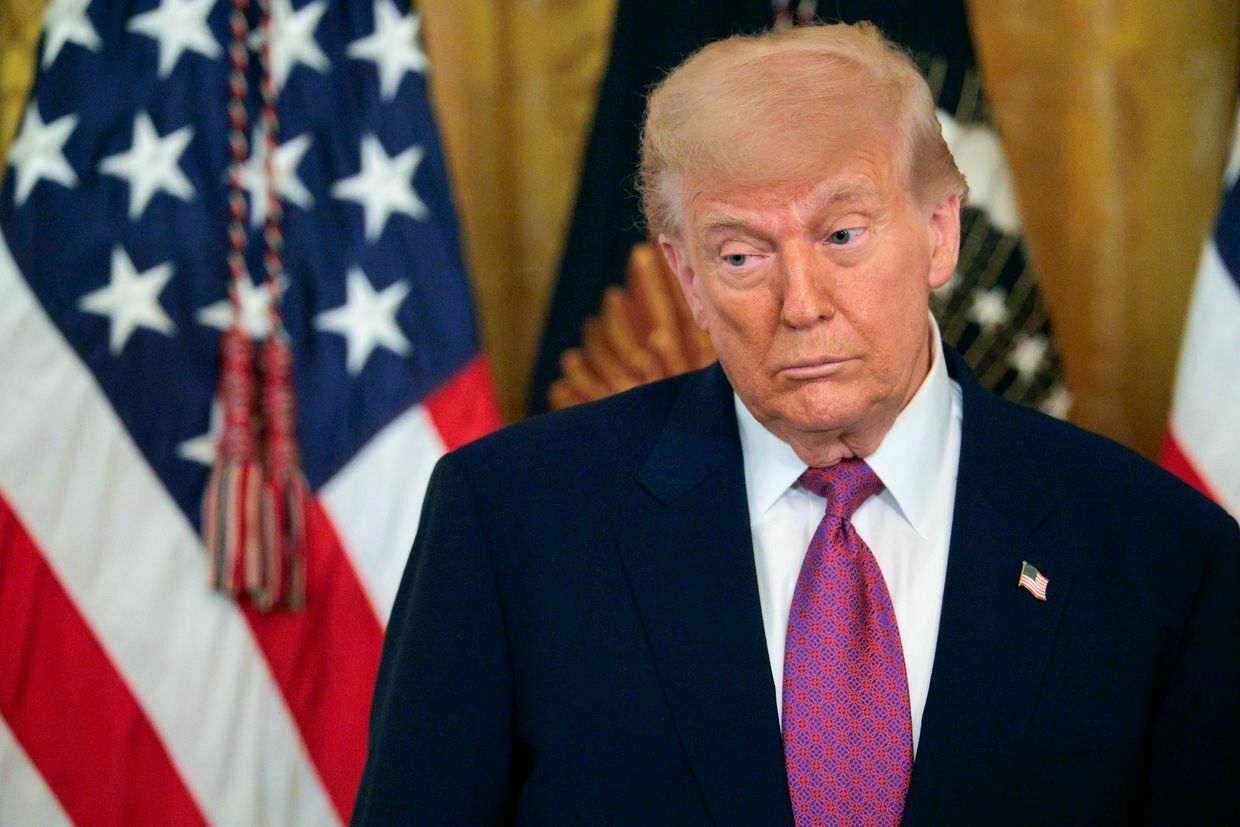
-
After Israel's strikes, Ukraine says Iran 'source of problems' but warns against destabilization
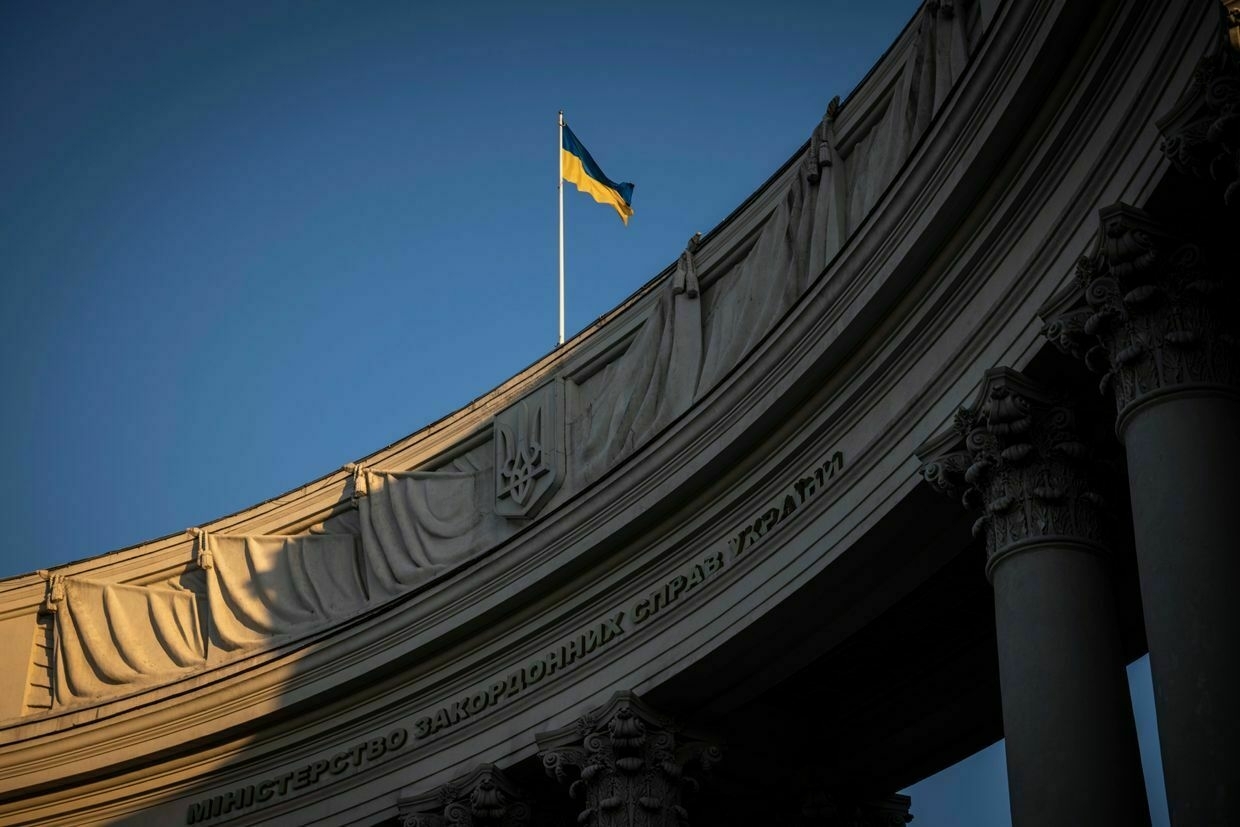
Kyiv on June 13 expressed concern over the security situation in the Middle East after Israeli air strikes against Iran, but stressed that Tehran remains a “source of problems” in the region “and beyond."
The statement follows what Israel called a “preemptive” strike against Iran overnight on June 13, targeting the country’s nuclear program and reportedly killing top military officials.
“We would like to remind you that the Iranian regime supports Russia in its illegal war of aggression against Ukraine and provides Moscow with weapons to kill Ukrainians,” the Ukrainian Foreign Ministry said in a statement.
Along with North Korea, Iran has been a key ally to Russia during its full-scale war against Ukraine, providing thousands of Shahed strike drones and short-range ballistic missiles.
Ukraine has called upon the international community “to take joint and decisive action” and deter a “group of aggressive regimes — Russia, Iran, and North Korea."
Kyiv nevertheless also warned that further hostilities could destabilize the region with “negative consequences for international security and global financial stability, especially in oil markets."
Israeli strikes were quickly followed by a surge in oil prices, Russia’s key export commodity, with Brent and Nymex crude prices jumping by more than 10%.
“We are convinced that restoring peace and stability in the Middle East will serve the interests not only of the region but also of the entire international community,” the Ukrainian Foreign Ministry said.
Iran has pledged a response to Israeli air strikes and accused the United States of “also being responsible for the dangerous consequences of this reckless escalation.” The Trump administration has acknowledged it knew about the operation in advance but denied any involvement.
According to the Israel Defense Forces (IDF), Tehran has already launched over 100 drones against Israel in response.
The attacks took place amid escalating tensions in the Middle East and U.S. President Donald Trump’s push to find a diplomatic solution to Iran’s nuclear aspirations. A round of indirect U.S.-Iranian negotiations in Oman was scheduled for June 15.
Russia has condemned Israel’s attacks as “unprovoked aggression” and a violation of the U.N. Charter.
Israel launches ‘preemptive’ air strikes on Iran’s nuclear program, IRGC chief killed in attackIsraeli forces launched “preemptive strikes” on Iran overnight on June 13, tarting Iran’s nuclear program, Prime Minister Benjamin Netanyahu said in an overnight address.The Kyiv IndependentLucy Pakhnyuk
